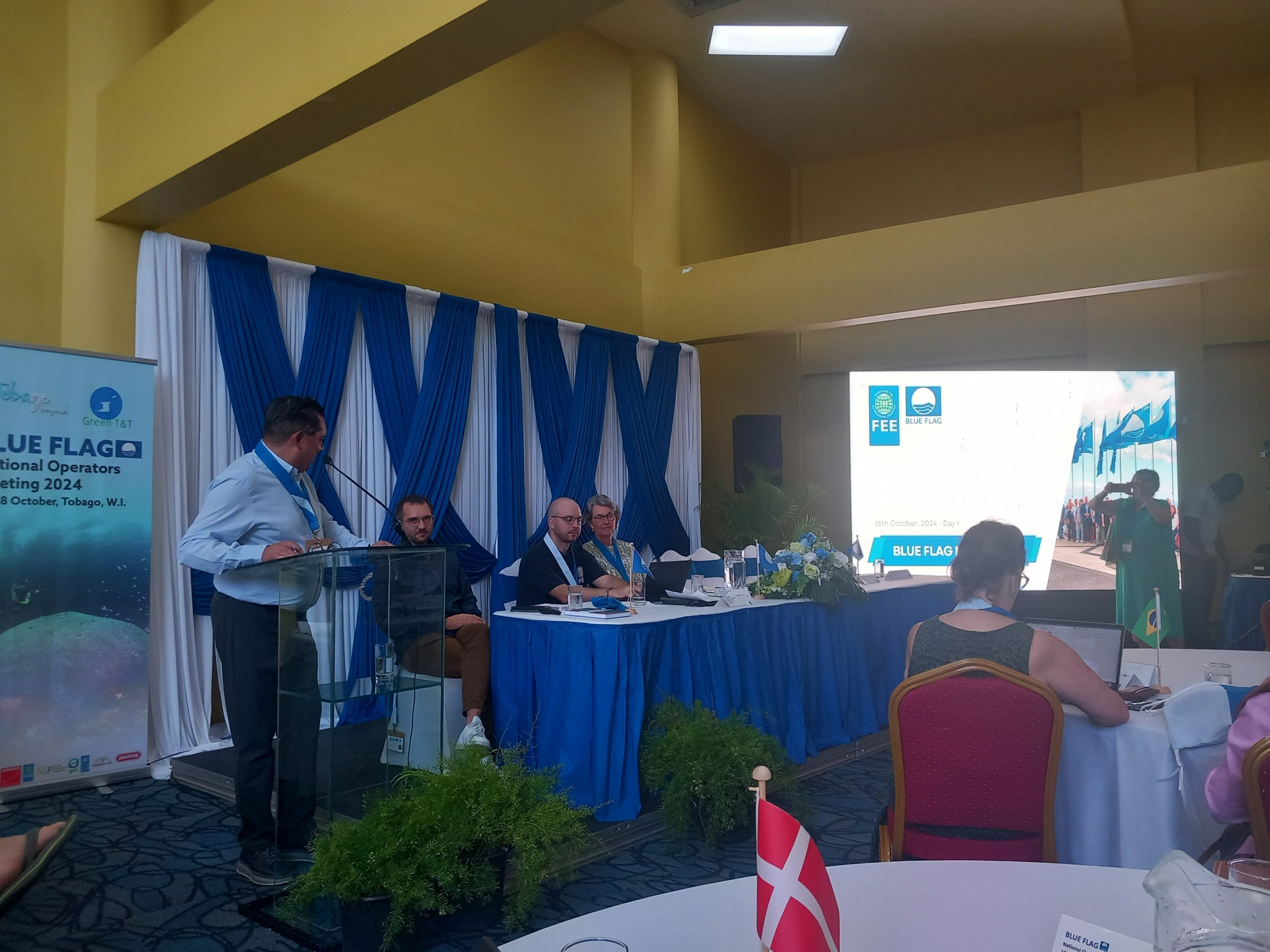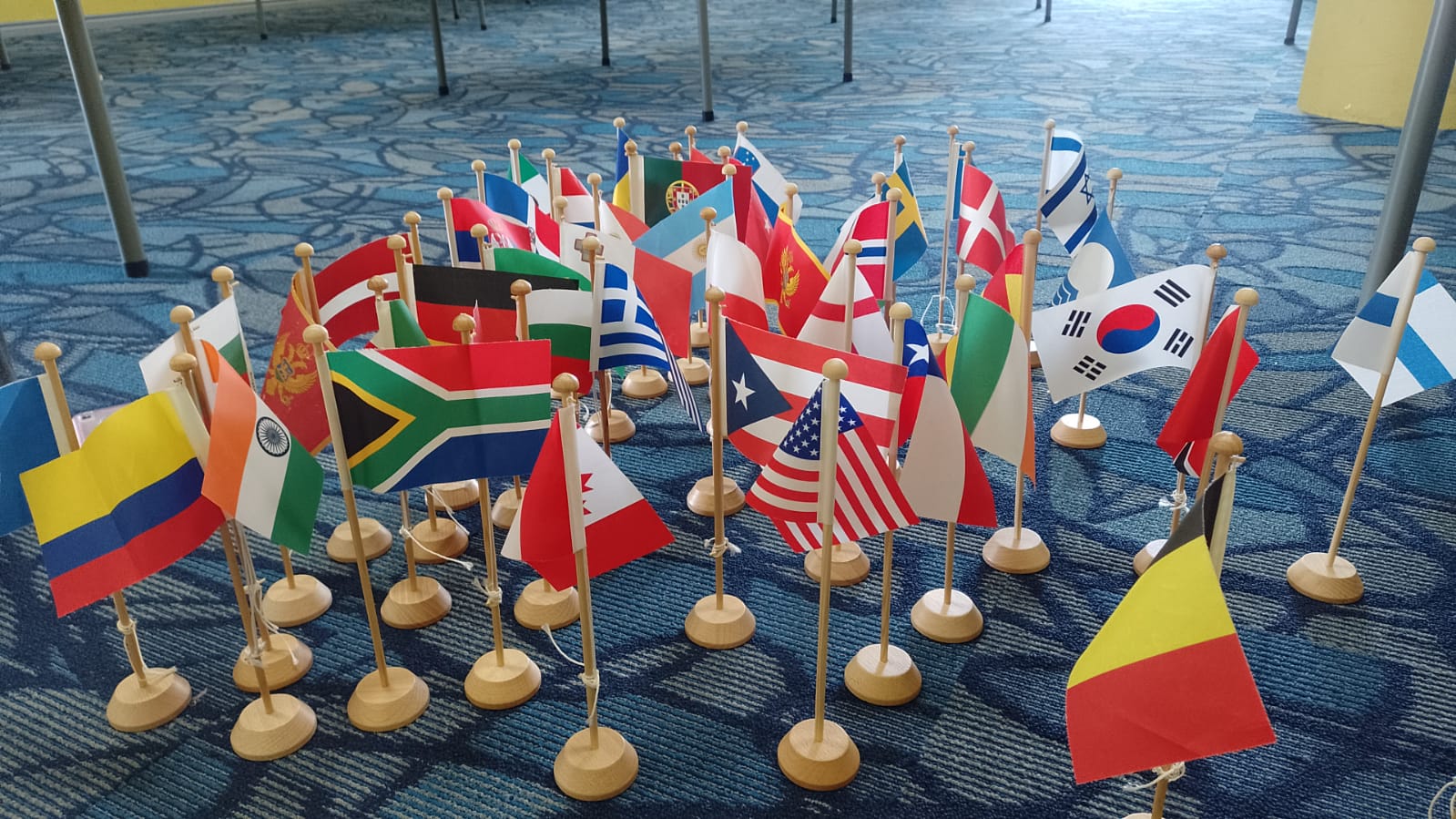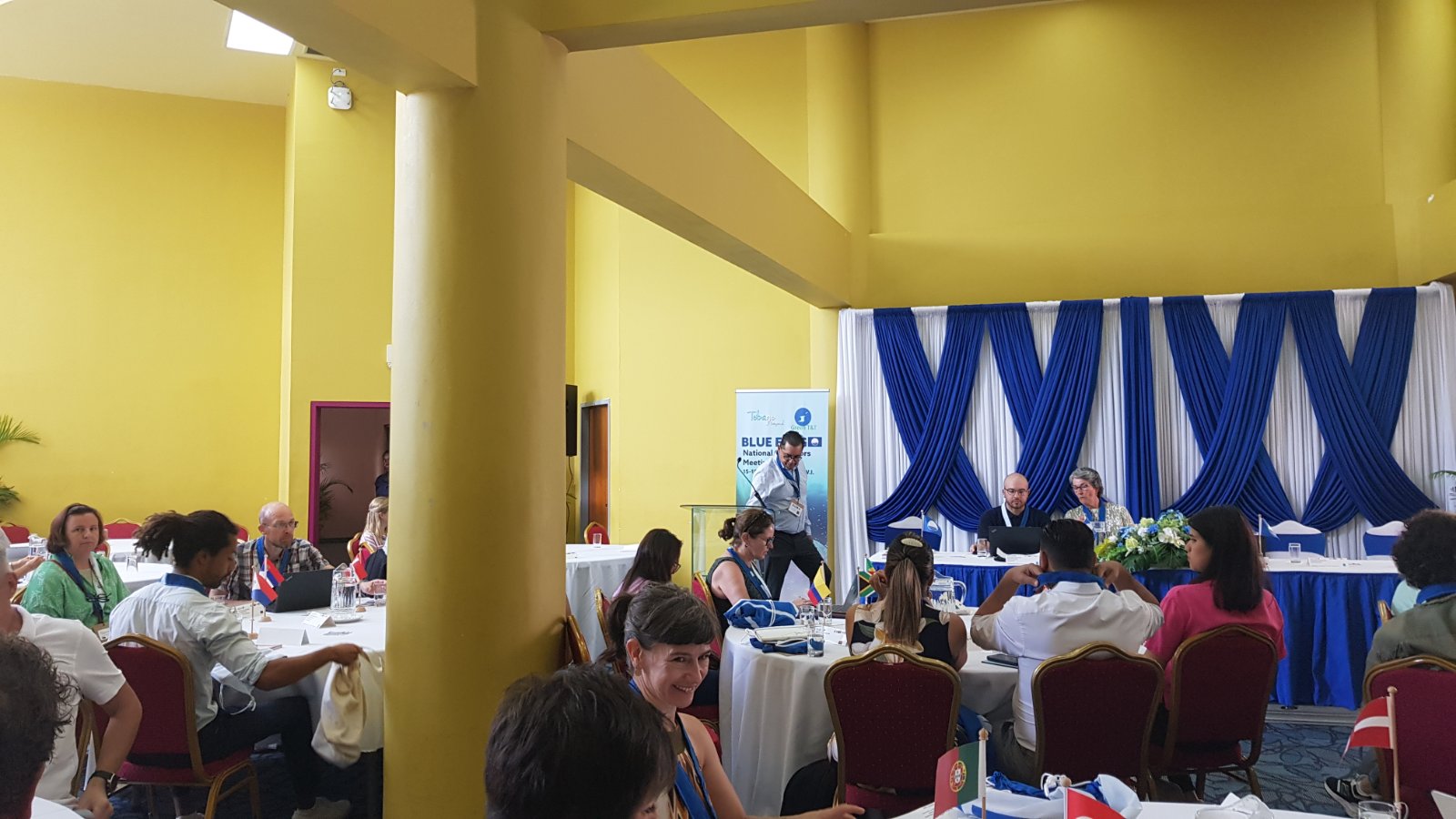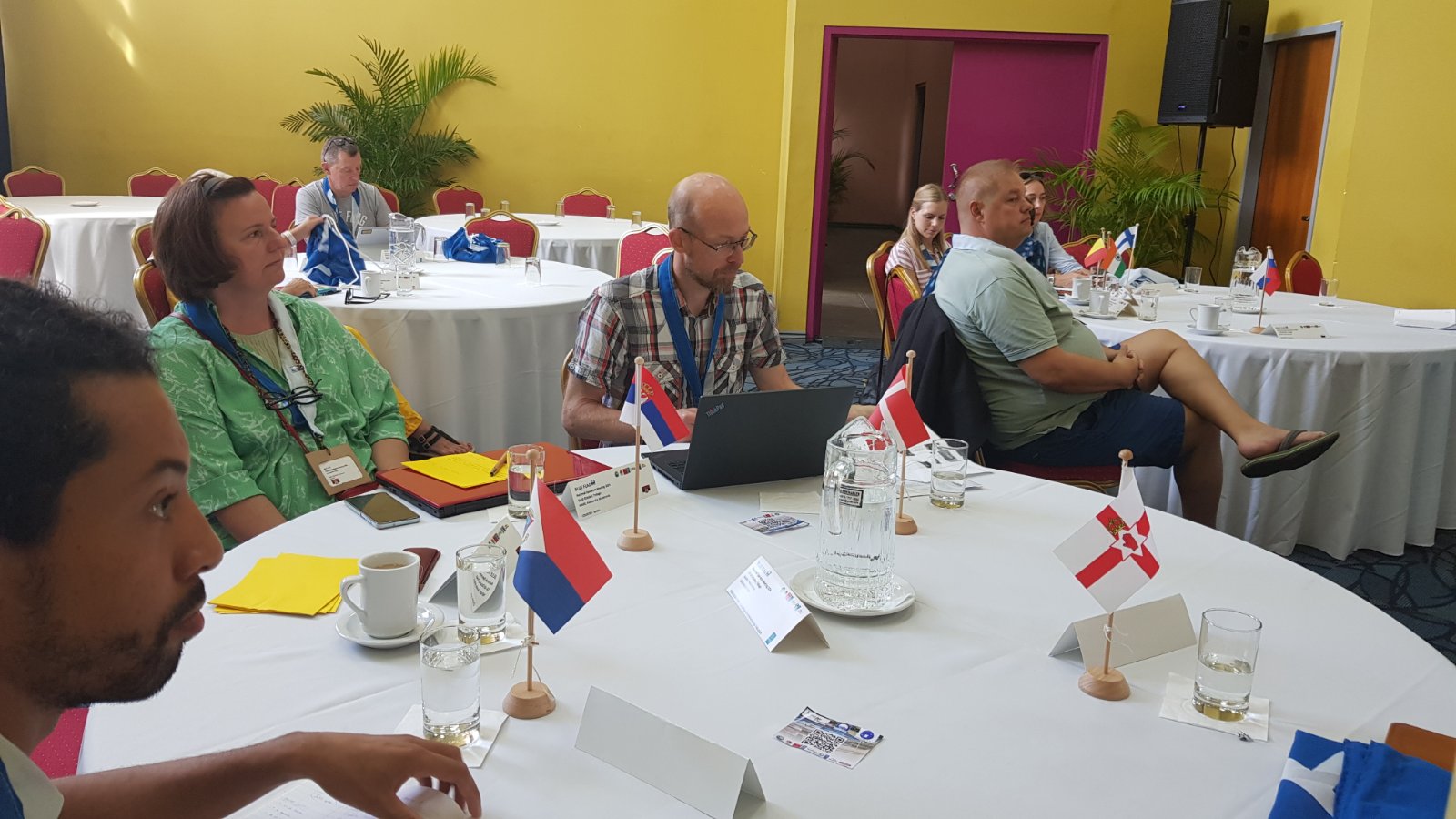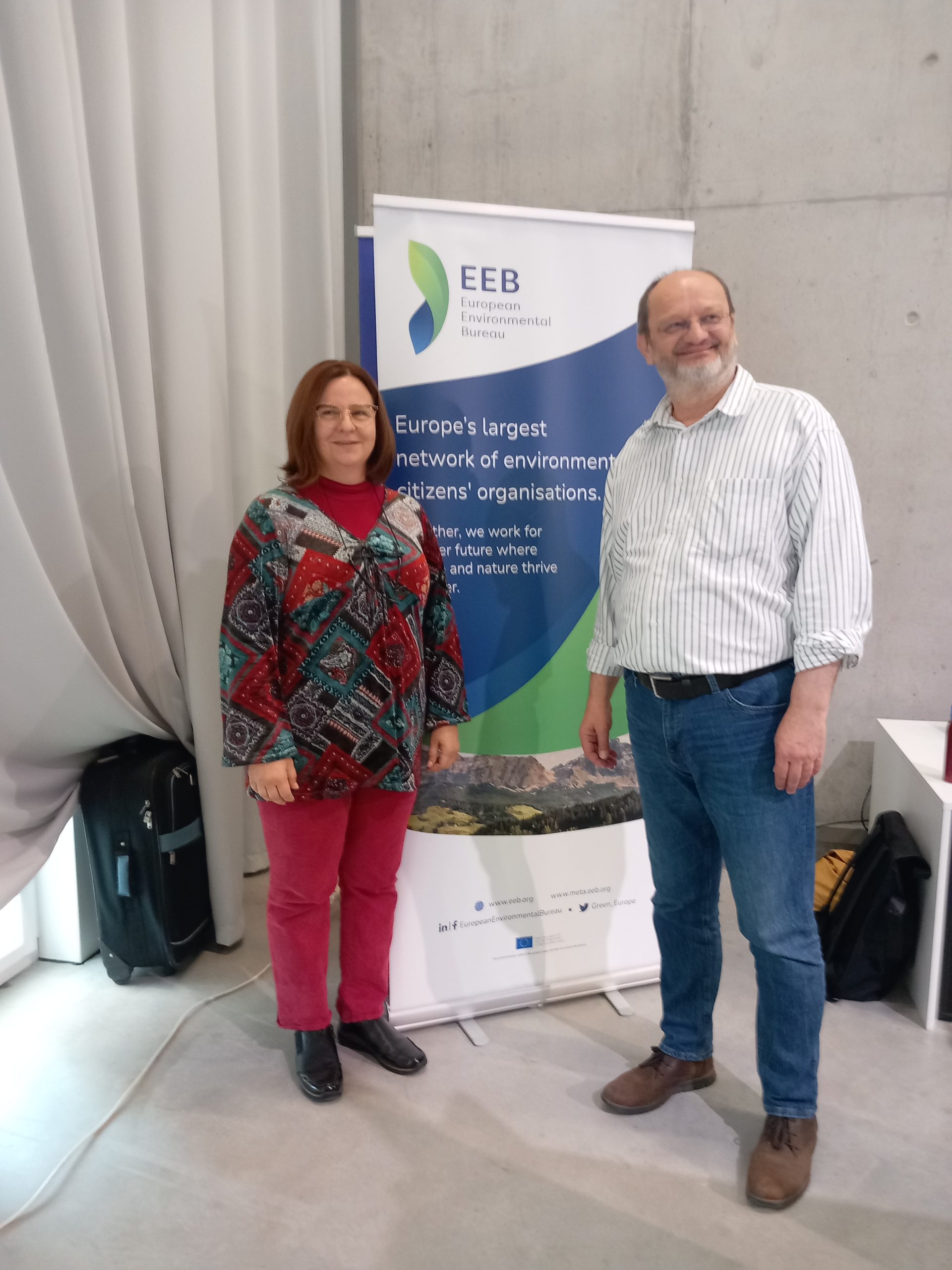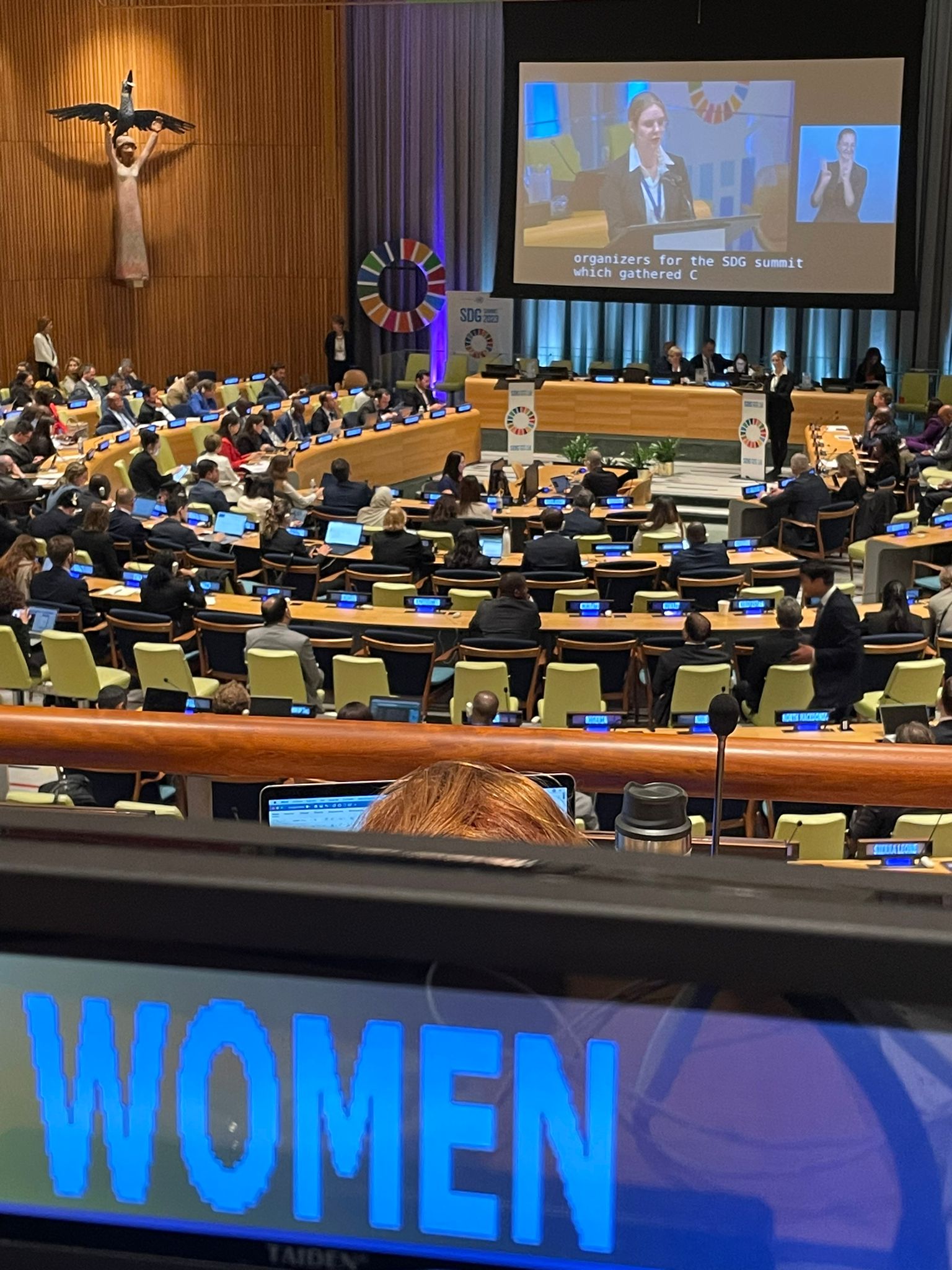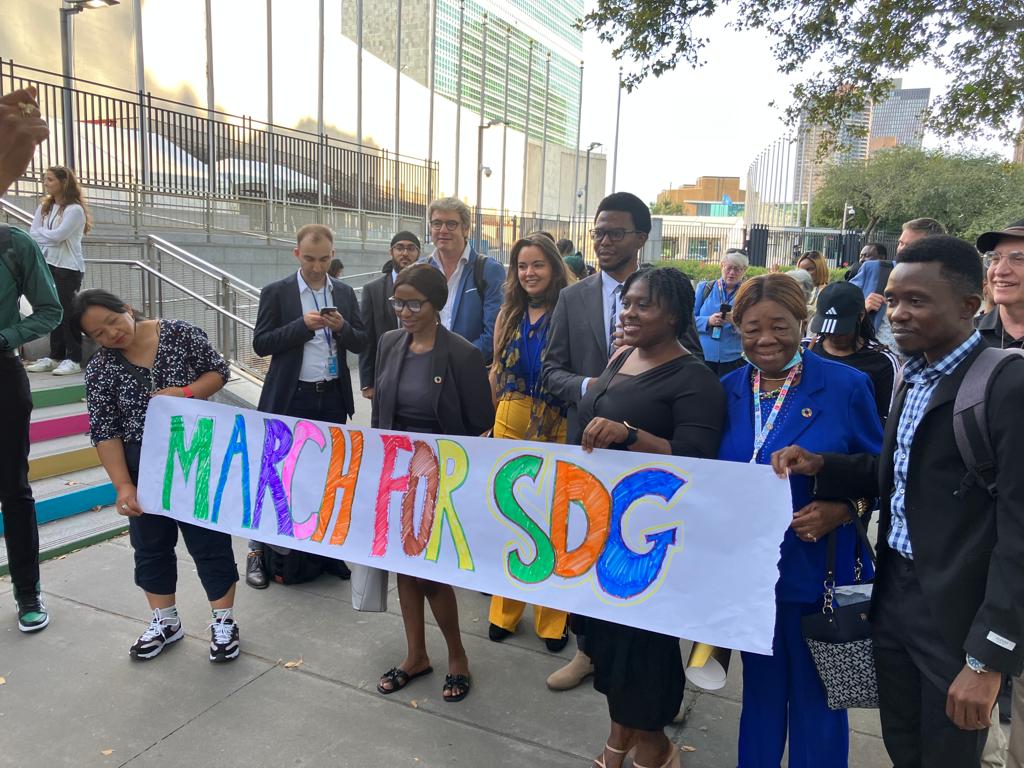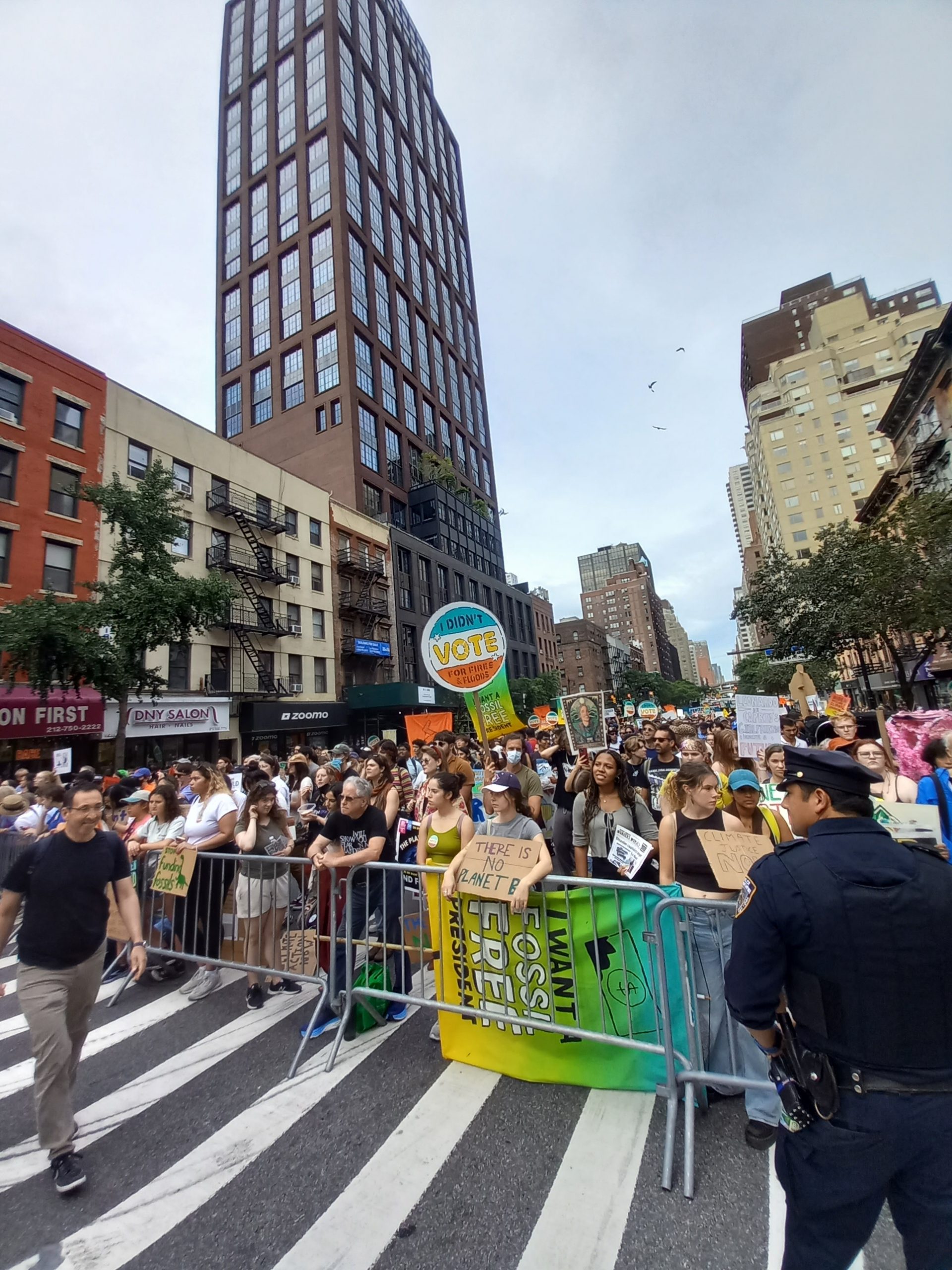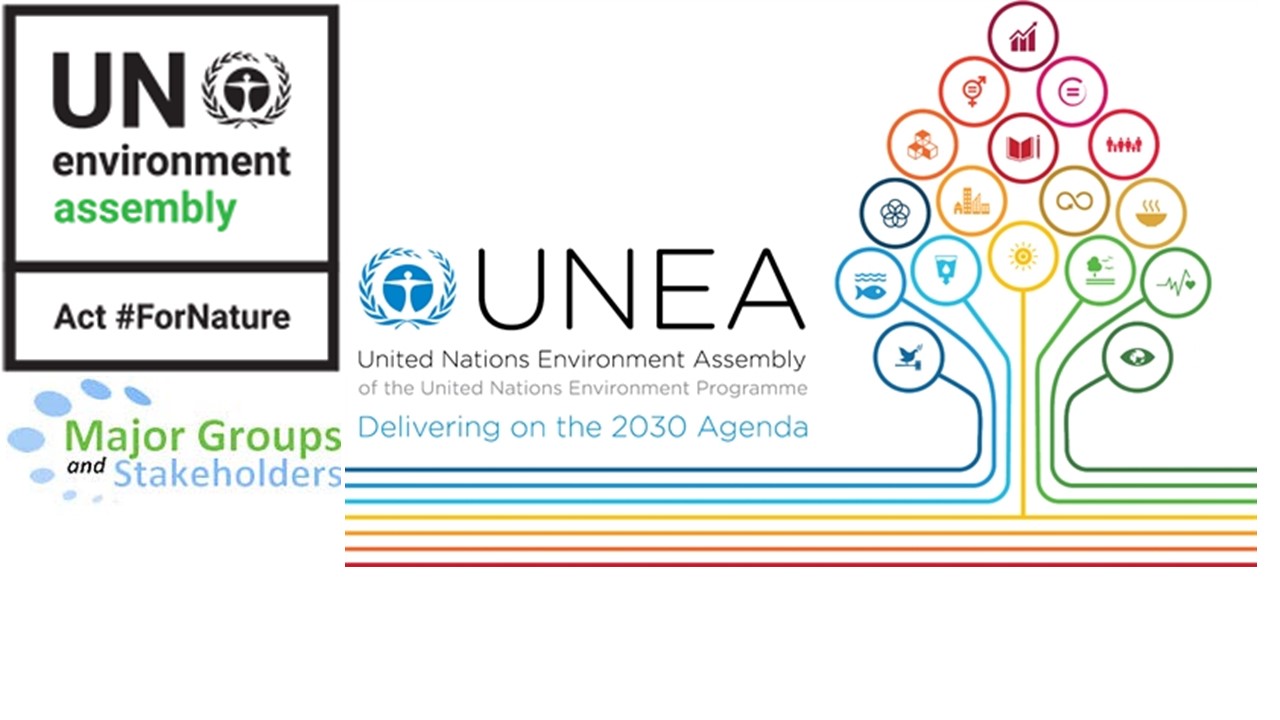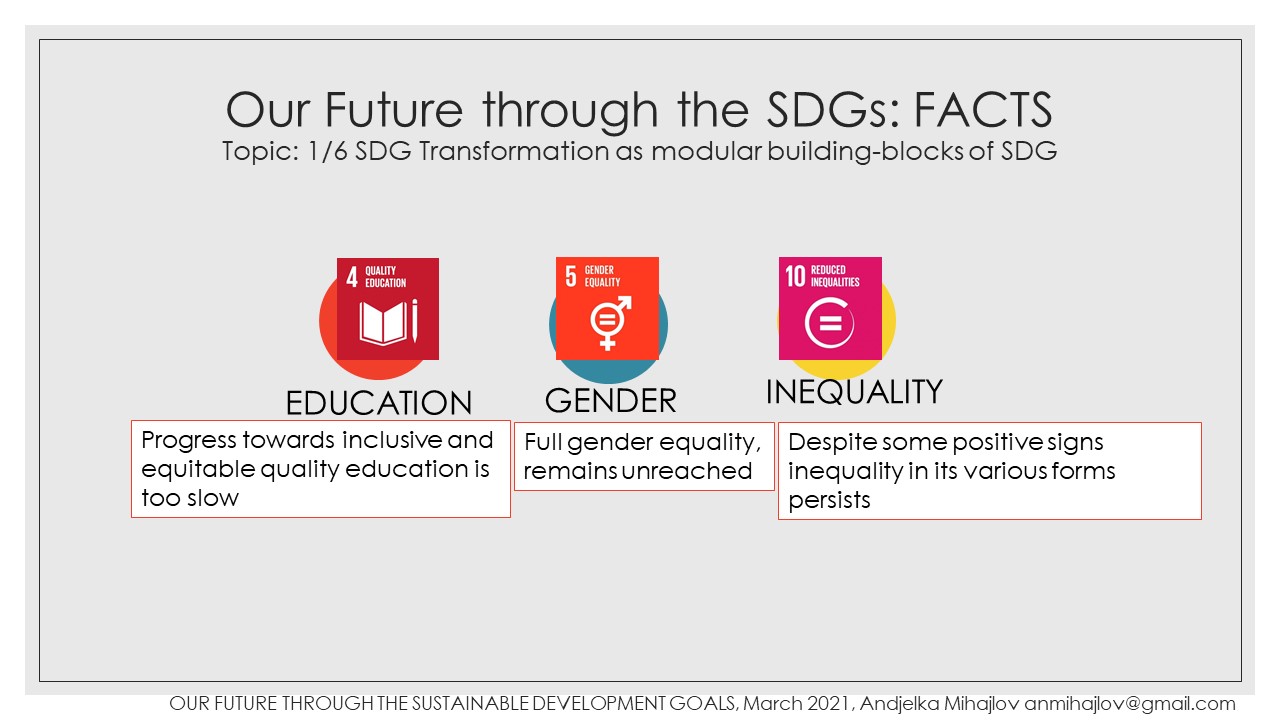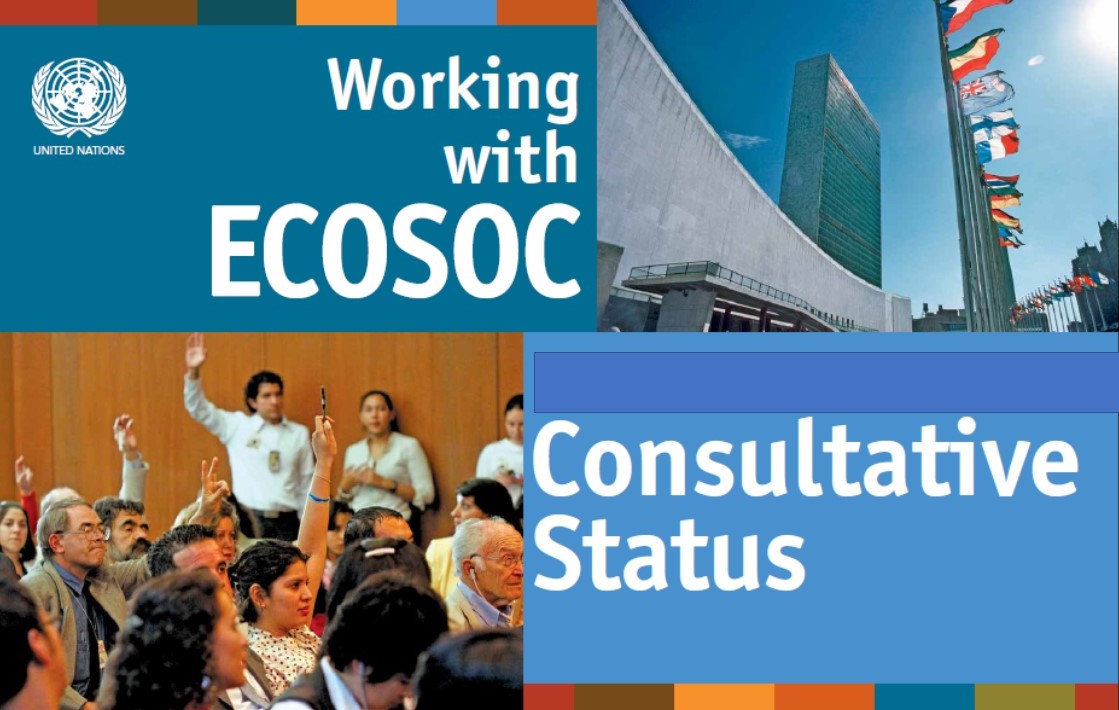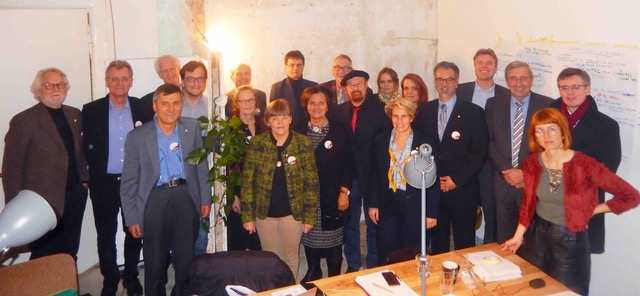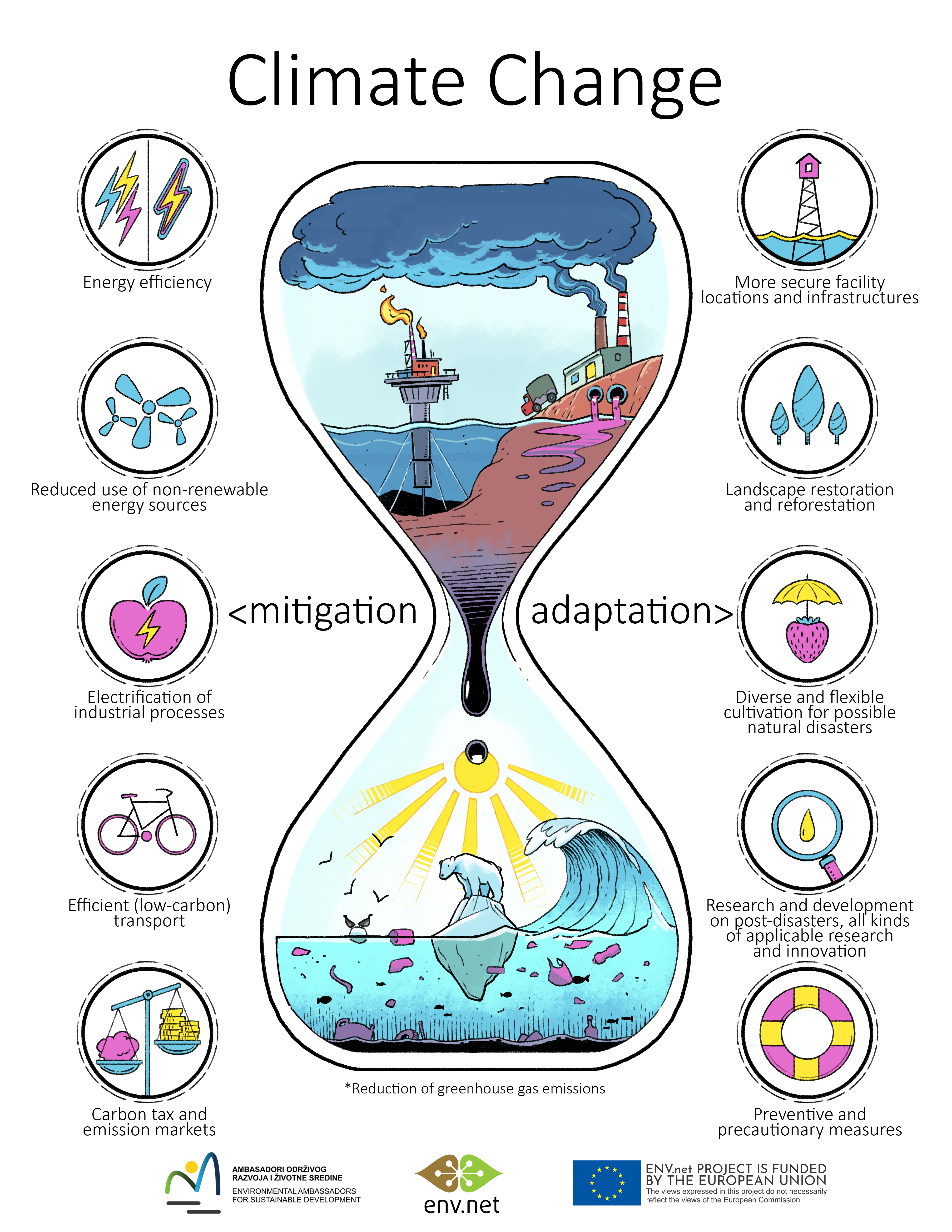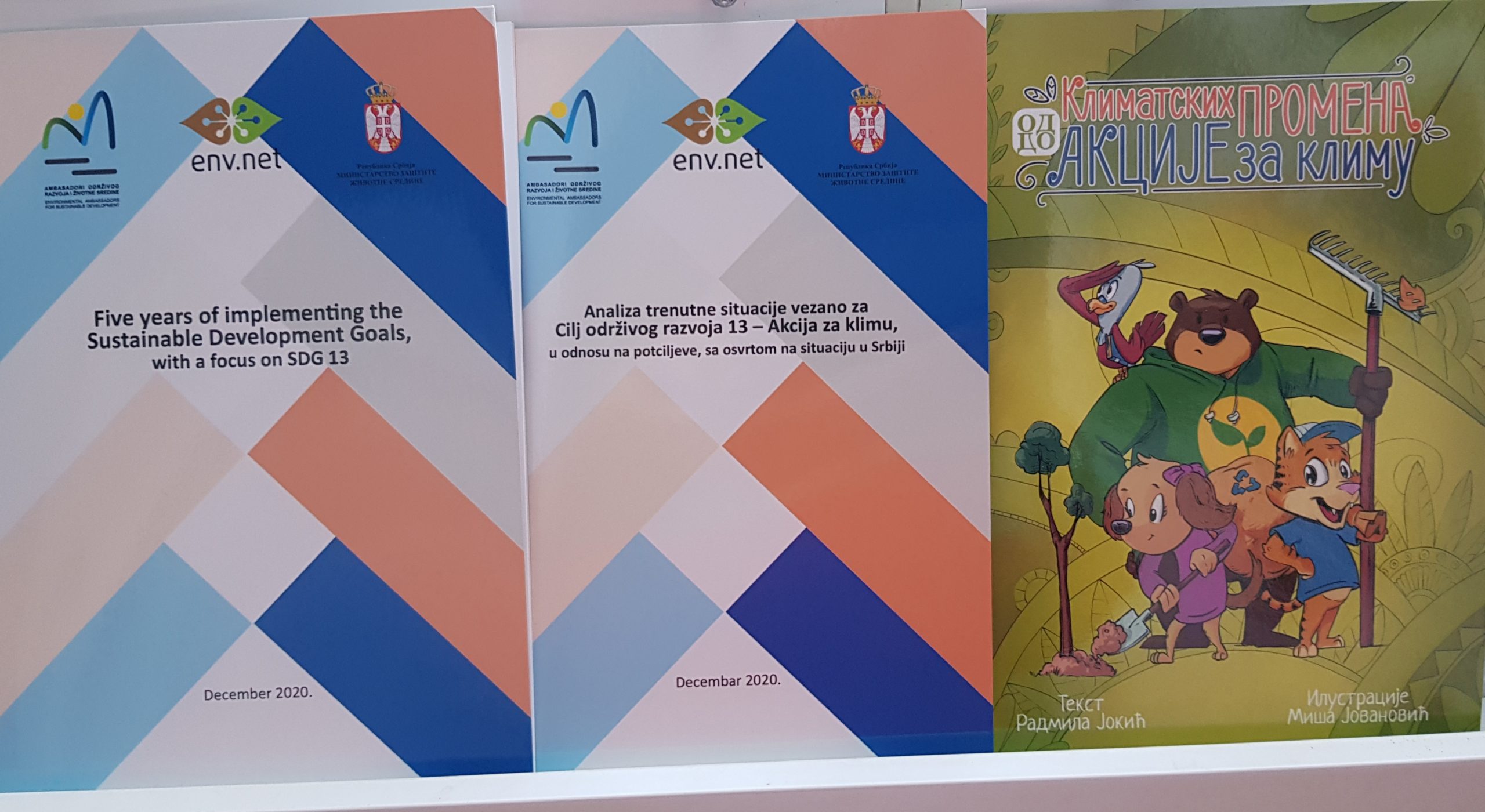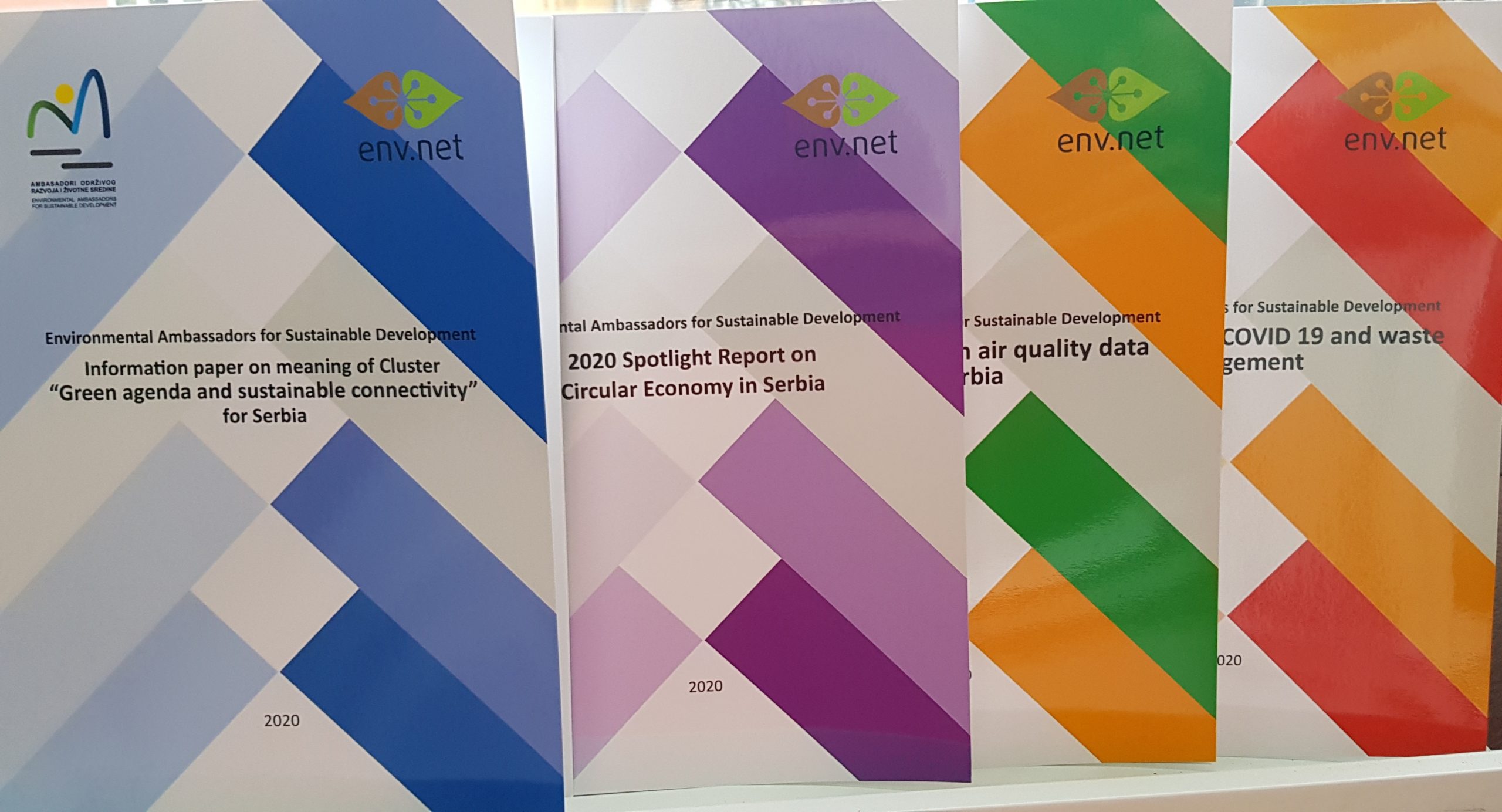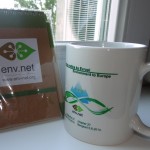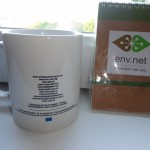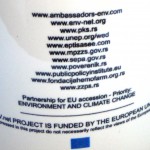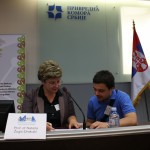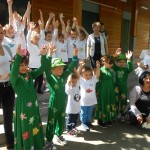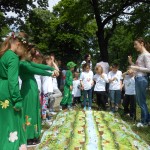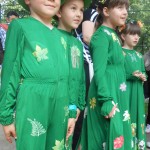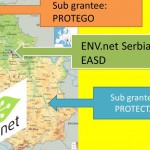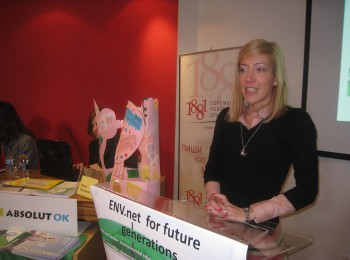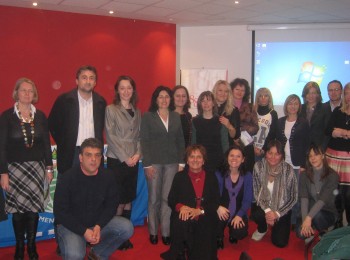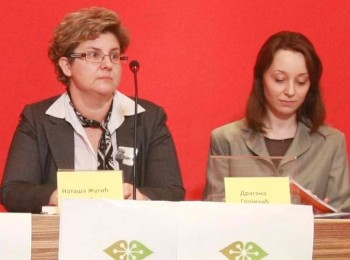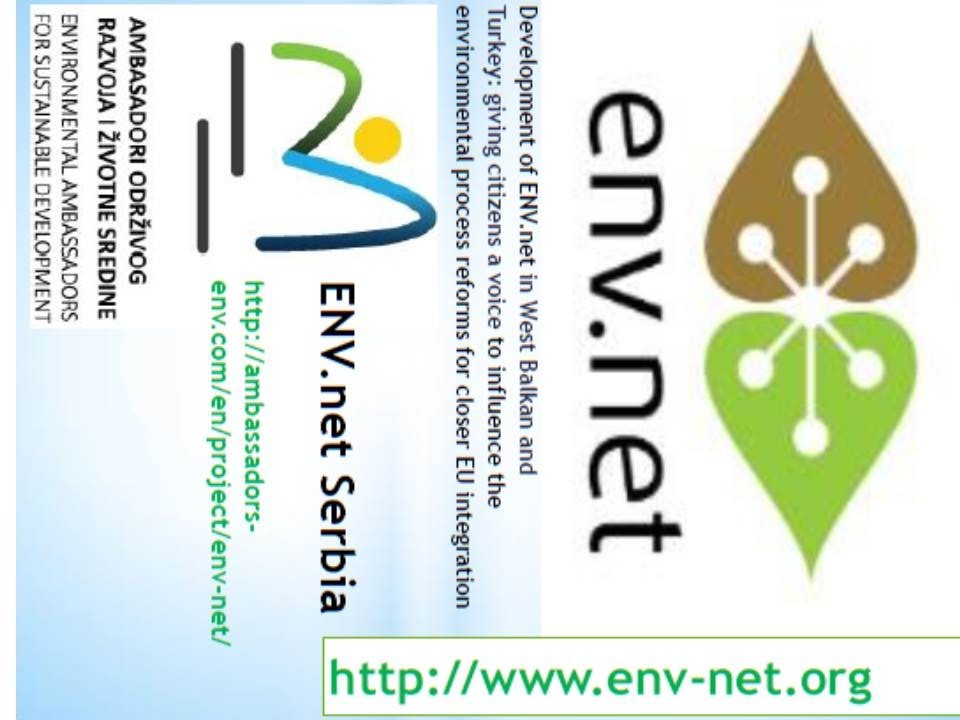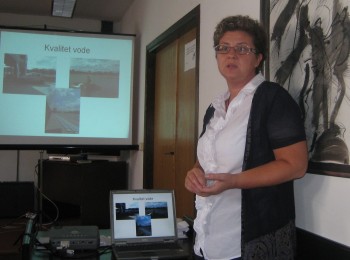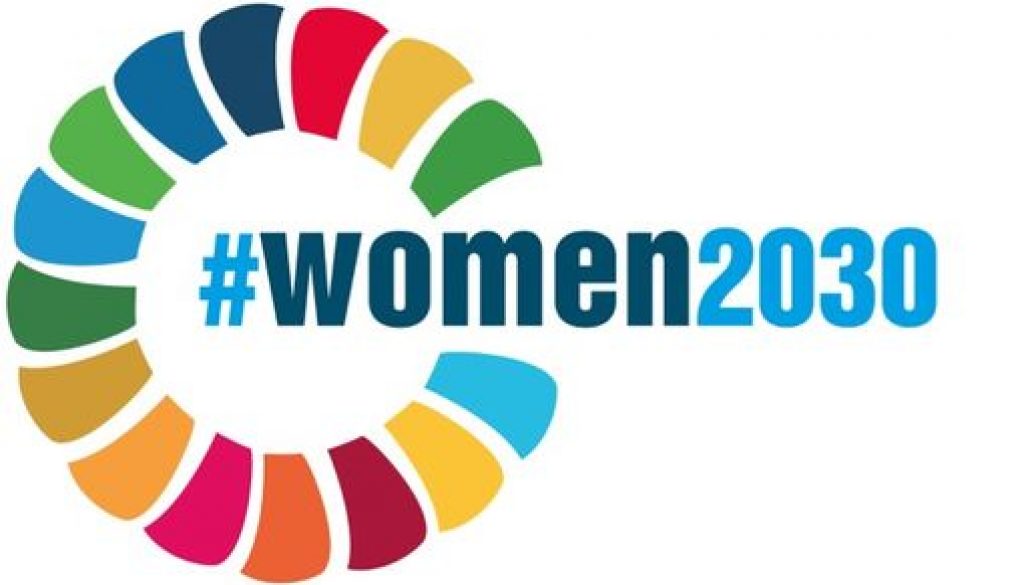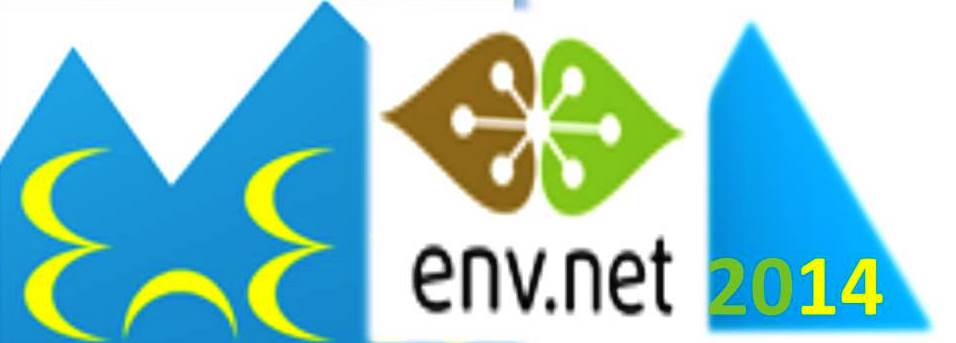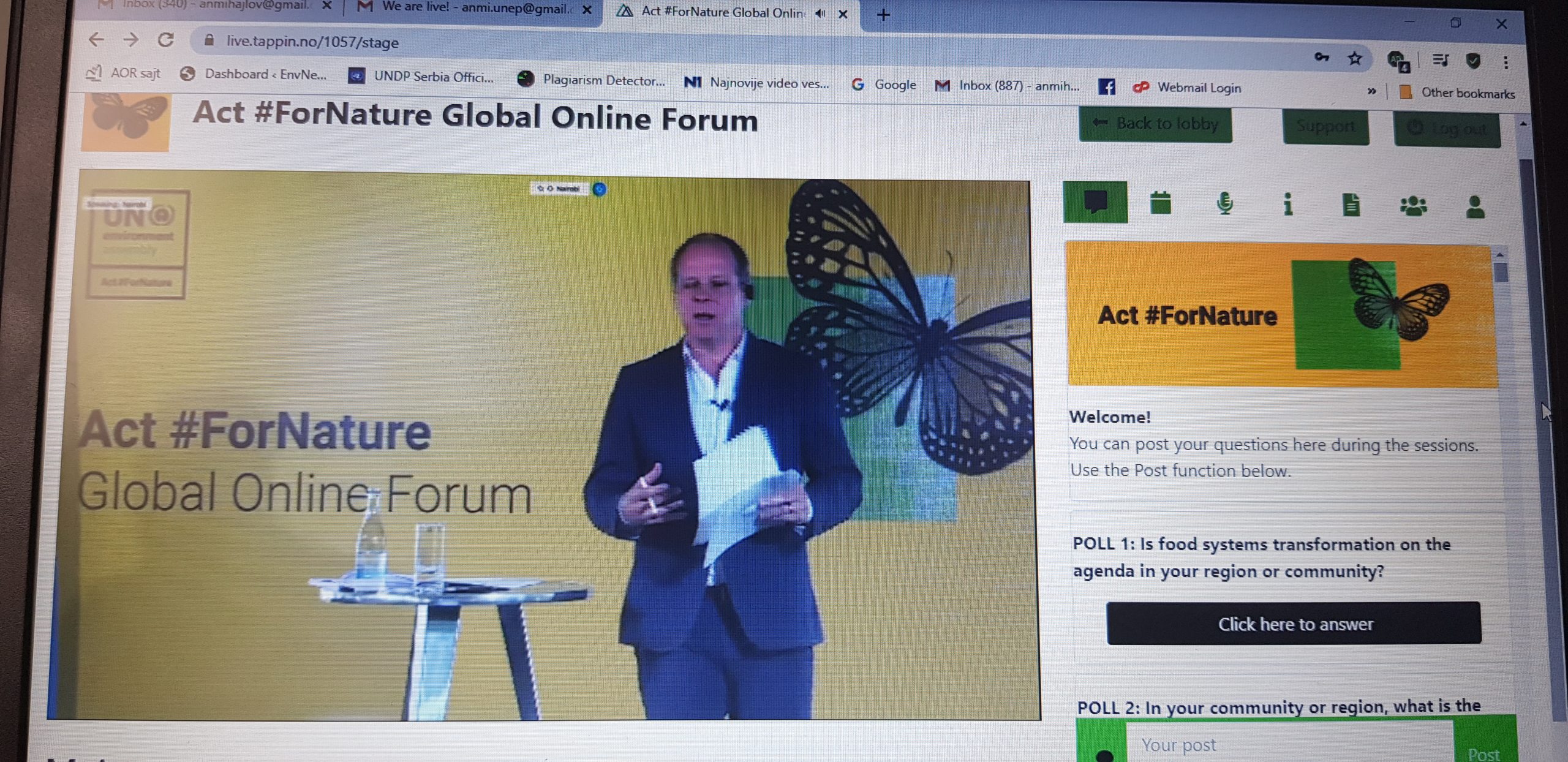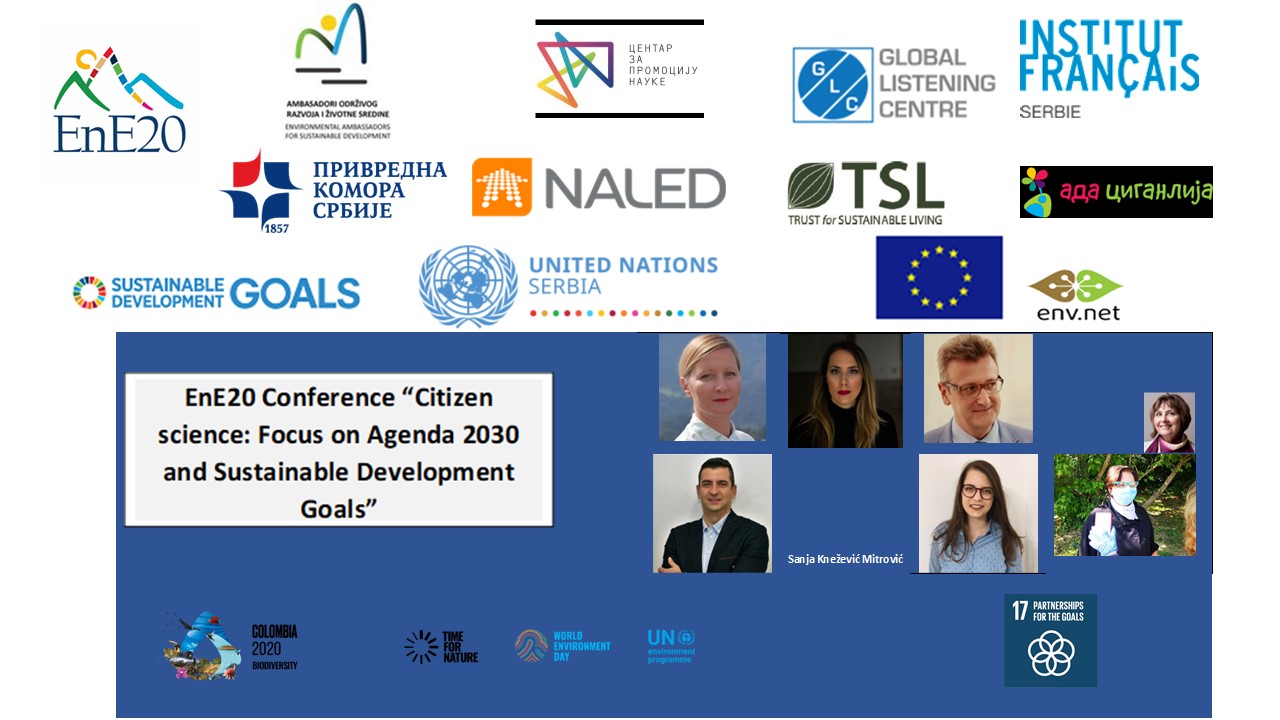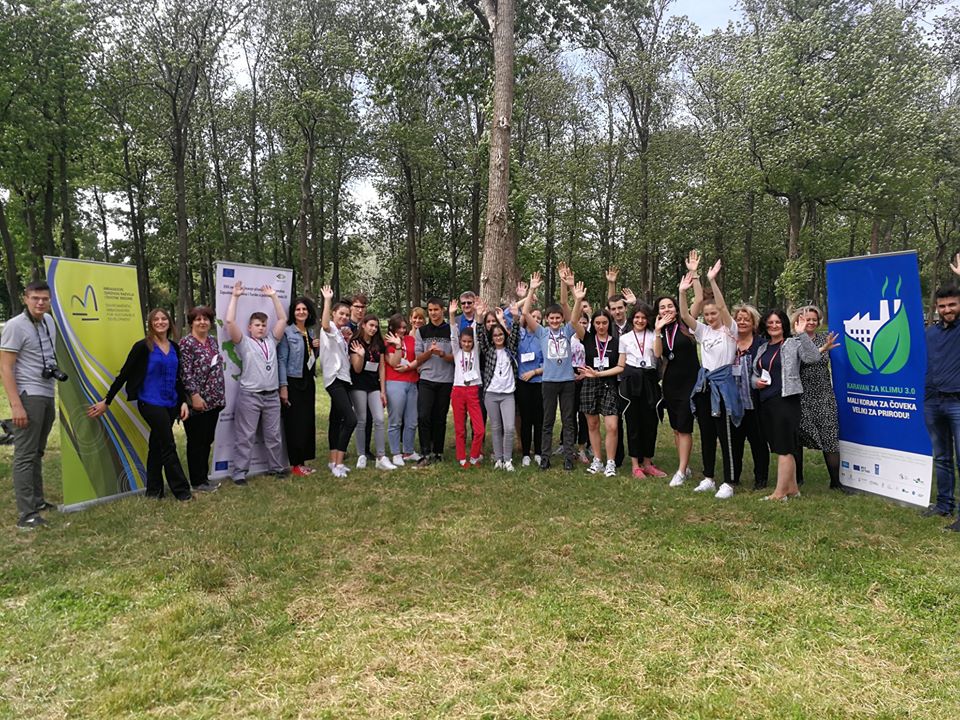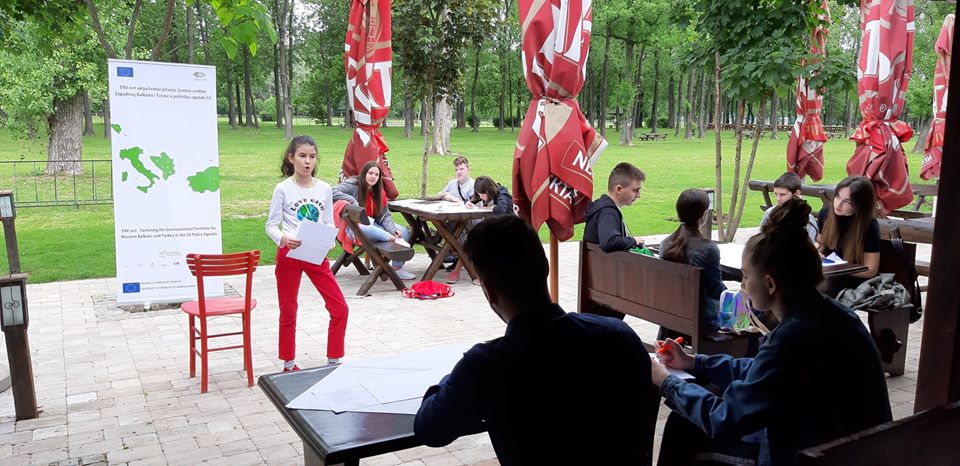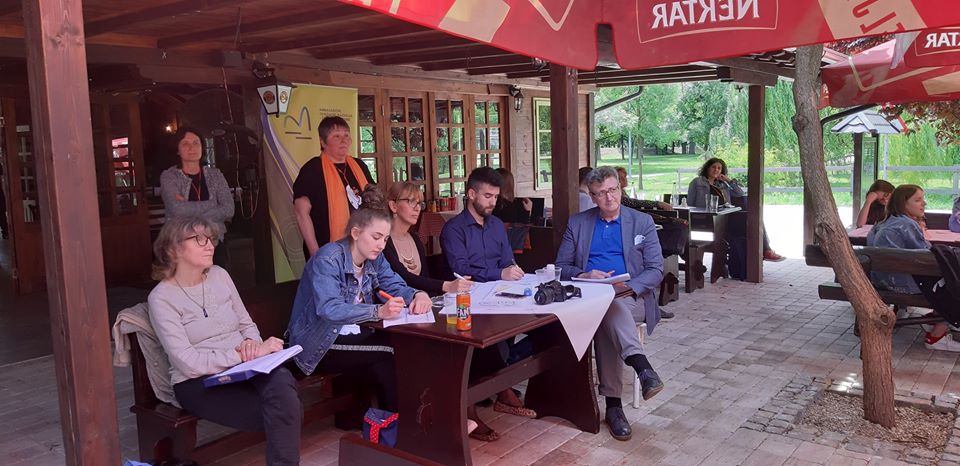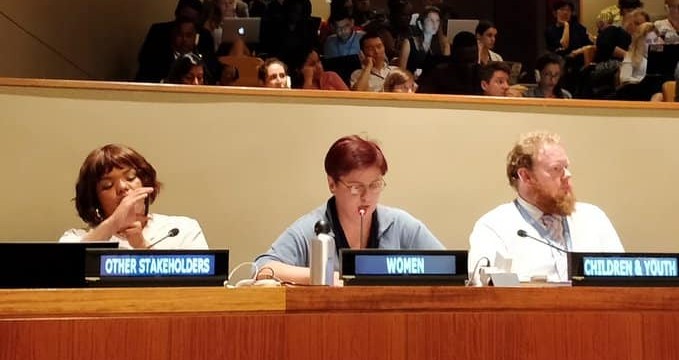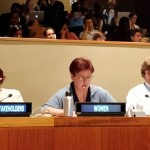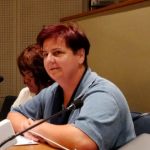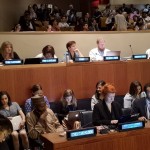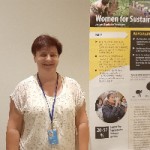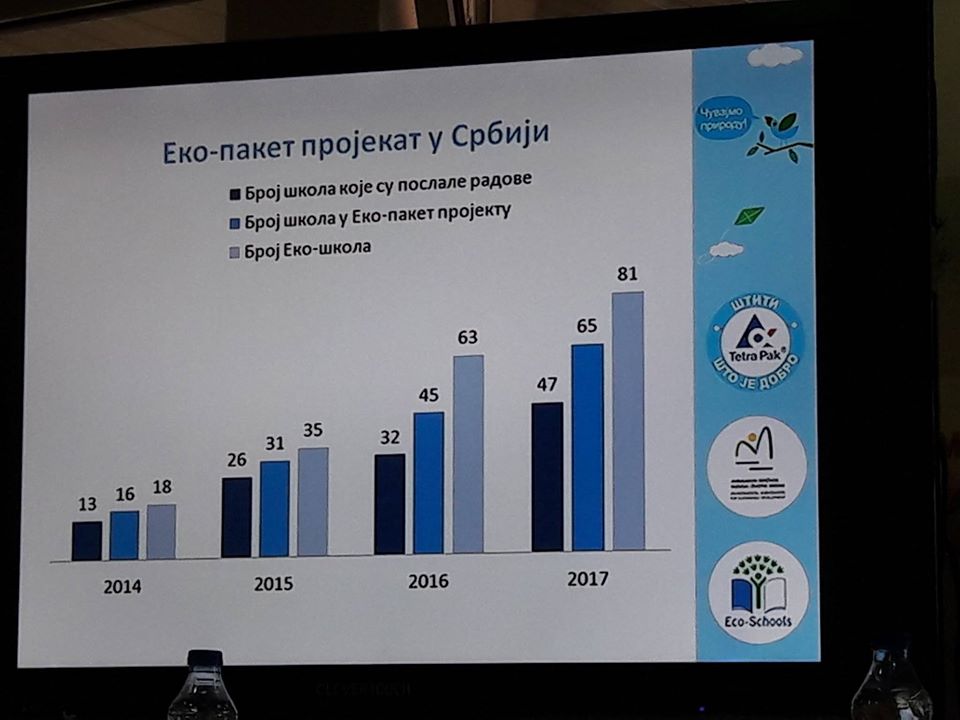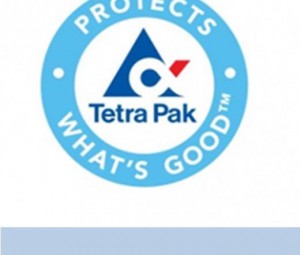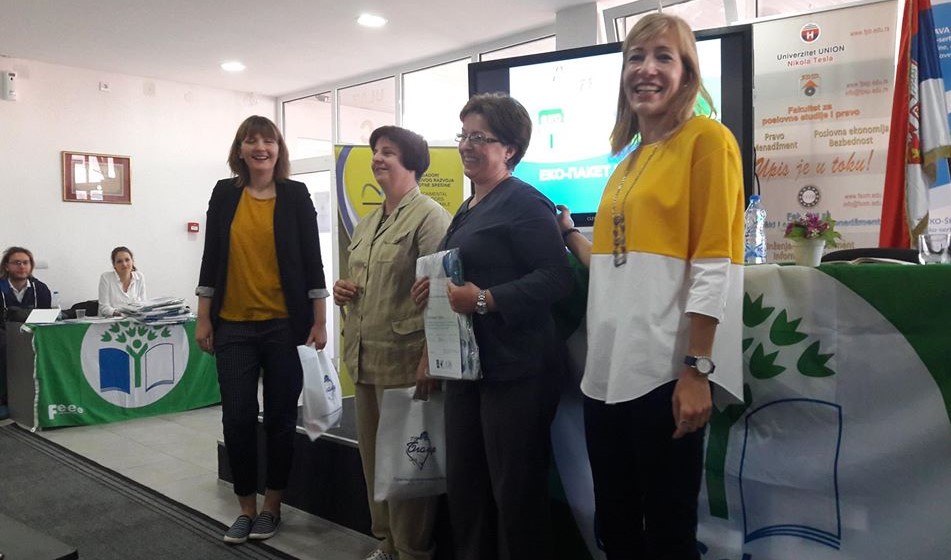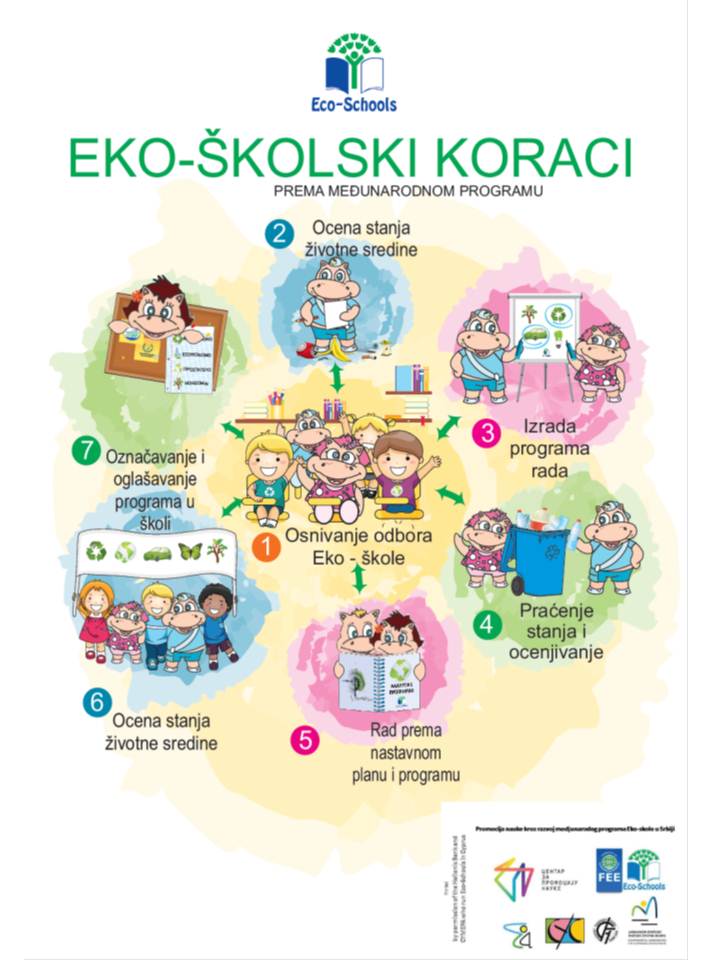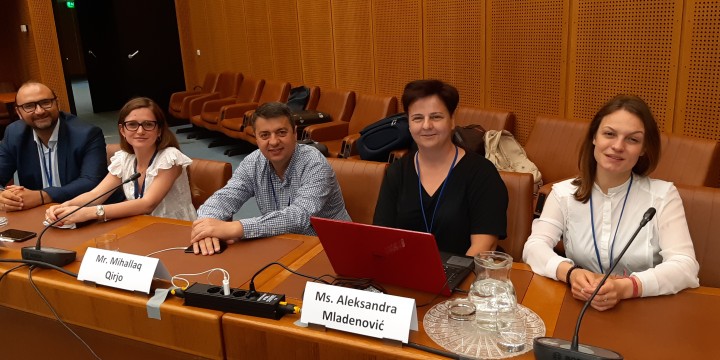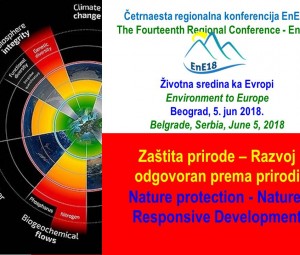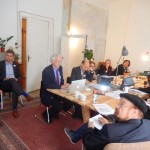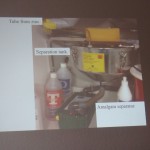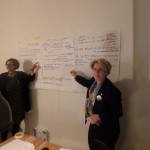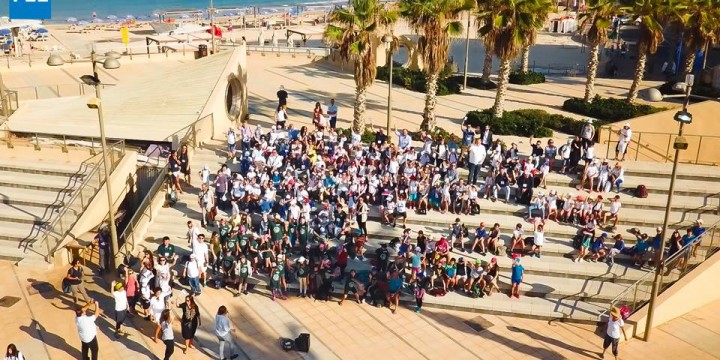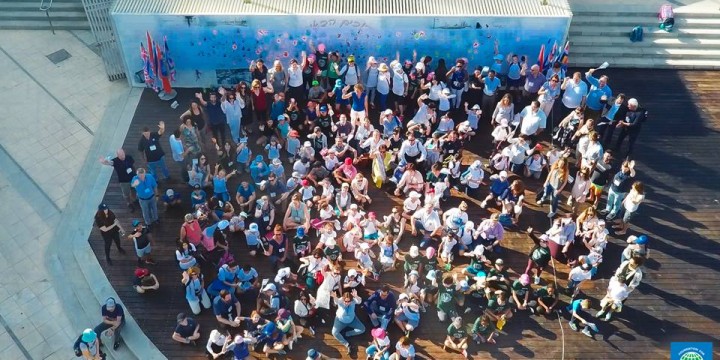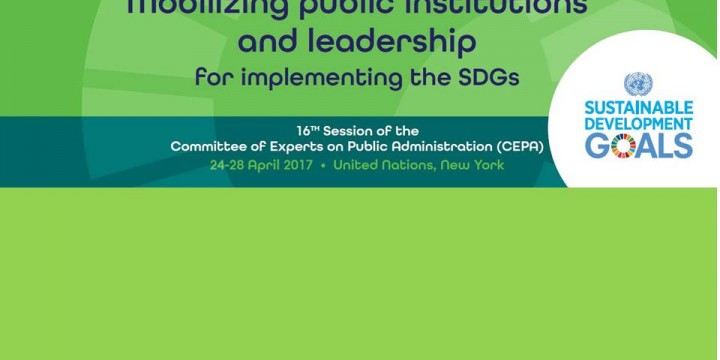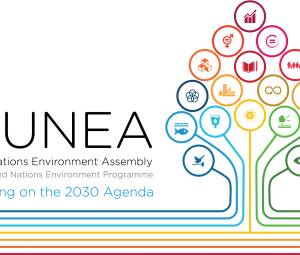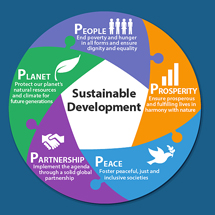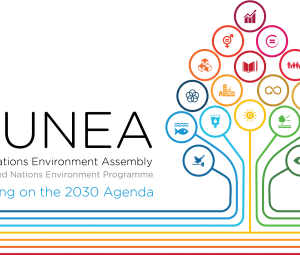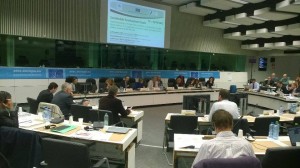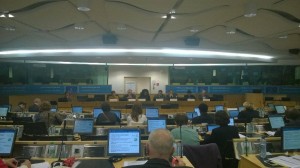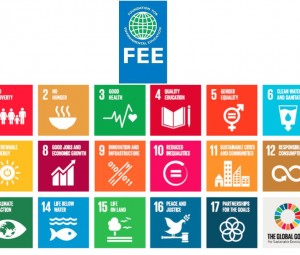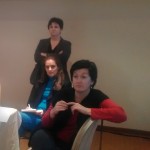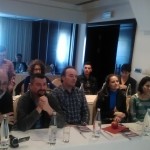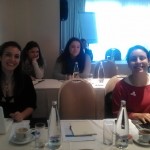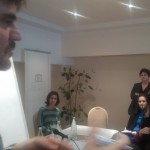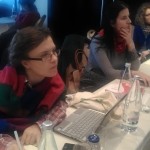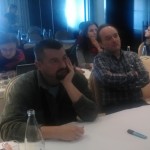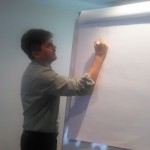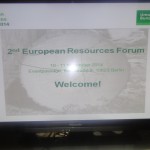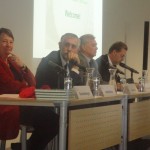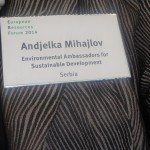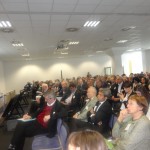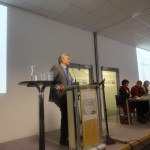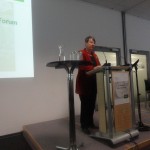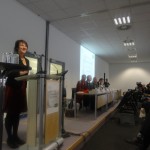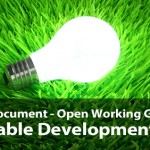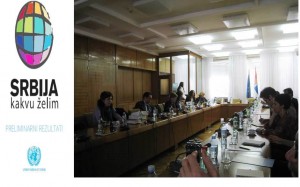Blue Flag NOM 2024 October 15-18, Tobago
The Blue Flag NOM was held in Scarborough, Tobago, from 15 to 18 October 2024. That was a great opportunity for BF operators around the world to meet and exchange the latest progress in implementing the BF program in their own countries. In total 45 participants, national operators of the program, from around 40 countries around the world, FEE Global representatives, and a hosting organization from Trinidad & Tobago number more than 60 participants, who had the opportunity to hear about updates from FEE, done by Lesley Jones, President of FEE; Past Year´s Highlights From Blue Flag International; the Blue Flag Action Plan 2024-2025 and among other, the big picture: Blue Flag upcoming challenges towards certification requirements: Green Claims, Ecolabels, and Substantiation. Discussion was open for further development on the detailed picture: ECGT Directive, Accreditation, and Process Review, what does it mean for the Blue Flag program? The discussion was also launched on draft new beach criteria and draft new sail training vessels criteria.
Communication and advocacy workshop in relation to the Blue Flag certification requirements was done, as well as a presentation of “Semaphore”, a historical partner to the BF program and another partner “Pick A Pier”.
Presentations were done by colleagues from Latvia: EU Beach SOS Project, Colombia: Alignment With National Public Beach Programme and India: Blue Flag as an enabling programme for Local Communities
The presentation was prepared by the Secondary Schools Tourism Club.
A stakeholder Knowledge Sharing Session was facilitated where the CSO-Government-Private Sector Policy Knowledge Fair presented how to amplify and improve global and national policy engagement regarding environmental sustainability and promote cooperative decision-making
CLIMATE CHANGE – Session one
BIODIVERSITY – Session two
POLLUTION- Session three
Blue Flag SIDS Strategic Meeting at the National Level was organized. The THA, Private Sector and Civil Society Organization (CSO) counterparts have reached a consensus on advancing the Blue Flag program in Tobago that aligns seamlessly with THA’s existing policies, contributes towards achieving Sustainable Development Goals (SDG), fortifies the blue economy and is in full accord with FEE’s GAIA 20:30 Strategy.
Desired Output: Preliminary Blue Flag implementation framework recommendations for future collaboration that synergize with THA’s policy direction and uphold solidarity with SDG targets, contributing to the region’s blue economy and embodying principles consistent with FEE’s GAIA 20:30 Strategy.
FEE Regional Development in the Caribbean/Americas Region, Panel Discussion, facilitated by FEE.
The FEE’t for Purpose process, initiated in October 2023, aims to enhance FEE’s effectiveness and align it with strategic goals. Six working groups were formed to address topics related to FEE membership and financial systems. In early 2024, multiple sessions focused on membership structure, programme quality standards, and financial systems. By mid-2024, further meetings refined these discussions, with agreed outcomes such as voting rights. Future focus areas include developing criteria for full members running one programme, managing programmes across countries, consortium membership, affiliate membership, standardizing membership agreements, and streamlining the membership application process. These efforts aim to ensure clarity and consistency in FEE’s membership structures and standards.
Additionally, and as part of this process, FEE is researching ways to expand its impact through its programmes in Caribbean countries without a resident NGO capable of running the programme. It would like to do so by leveraging the combined expertise and established networks of FEE. Building on the knowledge and recommendations of regional actors and partners, such as the Caribbean Tourism Organisation (CTO) and Caribbean Alliance for Sustainable Tourism (CAST), the Association of Caribbean States (ACS), the Caribbean Energy Chamber and the University of the West Indies (UWI) – it would ensure a future robust framework and necessary buy-in for successful implementation. Some countries of interest are Dominica, Grenada, Saint Lucia, Saint Vincent and the Grenadines, and Suriname.
Desired Outputs: Recommendations from the partners for a preliminary FEE Greater Caribbean implementation framework for future collaboration that synergizes with its Caribbean counterparts and aligns with FEE’s GAIA 20:30 Strategy.
Annual Assembly of the European Environment Bureau, Brussels, 14 May 2024
The Annual Assembly of the European Environment Bureau (EEB) was held in Brussels, where the achievements and results in the period between the two Assemblies 2023-2024 and the plans for the next period were discussed, taking into account the upcoming EU elections in June 2024. Attention is focused on the next composition of the EU Parliament, with the hope that support for environmental and climate change issues will continue into the next post-election period.
Proposed by the Environmental Ambassadors for Sustainable Development (EASD), a new President of the EEB – Tony Vidan, a longtime friend and supporter of the EASD, was elected. Providing a short speech, Toni emphasized the importance of joint work in achieving the common goals of all EEB members from the EU, but also from countries that are in the process of joining the EU.
During the Annual Assembly, members of the EEB were invited to sign THE EUROPEAN PACT FOR THE FUTURE – A GREEN AND SOCIAL DEAL FOR A ONE-PLANET ECONOMY, fostering hope and courage, opening up opportunities, creating well-being for all, catalyzing competitiveness through sustainability and driving the necessary transformative system change for a sustainable future. More about the European Pact at the following link: https://euelections.eeb.org/?_gl=1*1mv6x55*_ga*MjAyMDIwMDA3MS4xNzE1Njc1MzQ5*_ga_1EW8HFF60C*MTcxNTY3NTM0OC4xLjAuMTcxNTY3NTM0OC4wLjAuMA..
SDG Summit 2023, UN HQ, New York
In the period back to back to the UN General Assembly in New York, the Summit on Sustainable Development Goals was held on September 18 and 19, 2023. Before the Summit, during the weekend of September 16 and 17, the SDG “Action Weekend” was held, as an opportunity for various interested stakeholders, representatives of the UN and member states to meet at the headquarters of the United Nations and present specific commitments and contributions to initiate the transformation of the Sustainable Development Goals from now until 2030.
The activities were divided into two days: “Mobilization Day” on September 16 and Acceleration Day on September 17. During the Mobilization Day, stakeholders from different sectors had the opportunity to gather at the United Nations headquarters and mobilize for the ambitious Sustainable Development Goals Summit and the UN General Assembly’s High-Level Week. “Acceleration Day” focused on high-impact UN initiatives.
Civil society, the private sector, youth, scientists, local and regional governments, feminists and other actors have a key role in the implementation of the Sustainable Development Goals. Their participation, contributions and catalytic mobilization are recognized as essential during the achievement of the Sustainable Development Goals.
The President of the Environmental Ambassadors for Sustainable Development Aleksandra Mladenović, attended the SDG Action Weekend and SDG Summit as a representative of an organization that has ECOSOC consultative status and as one of the representatives of the Women’s Main Group at the UN.
The focus of the Sustainable Development Goals Summit was on the fulfillment of the Goals. According to official data, at the global level, only 15% of the goals have been met so far, and we are halfway to the set deadline (2015-2030). It is obvious that, despite the frequent rhetorical glorification of the importance of the Sustainable Development Goals, there is no strong political will to fulfill the Goals, especially of the major world powers, which “hide” behind the success of smaller countries, who care, because the Goals are directly related on their progress, such as reducing poverty, ending hunger, accessing clean water and addressing climate change. The need to change the global “financial architecture” is increasingly being heard, bearing in mind that developing countries are increasingly stagnating, affected by large debts, which often amount to more than investments in key areas, such as education or health in those countries. Young people also raised their voices, because they are beginning to understand that adults are putting a “hot potato” in their hands, under the pretext that their future is already ruined by the present. The youth made it clear that without defined financial means for the Sustainable Development Goals individually, little or nothing will be able to be done in terms of their fulfillment. More at the link: https://www.un.org/en/conferences/SDGSummit2023/SDG-Action-Weekend
As part of the activities of the interested parties, there was also a two-day session of the “Global People Assembly”, where activists from 145 countries gathered and sent a Declaration demanding urgent action from decision-makers in the field of economic and financial justice, climate change, and the environment. social justice and gender equality, protection of civil society, and human rights. More at the link: https://www.peoplesassembly.global/en/
And last but not least, the Summit on the Sustainable Development Goals was held, and a political Declaration was adopted, covering the different and complementary functions of both sessions of the forum under the auspices of the General Assembly – the Summit and the forum under the auspices of the Economic and Social Council (ECOSOC ). It seems that this Declaration, as well as the Summit itself, have become only a satisfactory form and “first companion” to the main event in the United Nations, which is the General Assembly. More about the Sustainable Development Goals Summit: https://www.un.org/en/conferences/SDGSummit2023/political-declaration
4th Meeting of the Intersessional Process for Considering SAICM and the Sound Management of Chemicals and Waste Beyond 2020, Bucharest 2022
EASD is participating at the fourth session of the Intersessional Process for Considering the Strategic Approach to International Chemicals Management (SAICM) and the Sound Management of Chemicals and Waste Beyond 2020 (IP4) in Bucharest , August/September 2022. From Serbia, beside Environmental Ambassadors for Sustainable Development (EASD), NGO Safer Chemicals Alternative – ALHem also participated. A summary report of IP4 by ENB which includes also a brief summary of SAICM’s history as well as of the history of the intersessional process.
As the meeting result Co-Chairs’ consolidated text is achieved. achievement, and resume it in early 2023 at a time and venue to be set by the Bureau in consultation with relevant stakeholders.
The UN General Assembly recently adopted a resolution establishing access to a clean, healthy and sustainable environment, a universal human right. At the same time, recent scientific evidence shows that the global threat of plastic and chemical production has exceeded the “planetary boundaries” for chemical pollution. In addition, the global chemical industry is projected to double by 2030, with rapid growth in emerging economies.
The CEE Region recognizes the need for greater cooperation among stakeholders aiming at strengthening the capacities of developing countries and countries with economies in transition for integrated management and promoting the adequate transfer of cleaner and safer technology. Moreover, great deal of attention should be dedicated to raising awareness of chemicals and waste issues among the responsible institutions, agencies, with improvement of the multi-sectorial and multi-stakeholder cooperation.
EASD position (within IPEN umbrella) is to believe that the SAICM is key to advancing the sound management of chemicals and waste considering human health and the environment. Some of important issues pointed out by IPEN include:
– SAICM is the only instrument we have today to address most chemicals and waste but its goals were not met although progress was made. SAICM should strengthen its open, inclusive, participatory and transparent structure which should be multi-sectoral and multi-stakeholder; From our perspective we need an agreement for a strong SAICM-Beyond-2020 Framework that goes beyond the Dubai Declaration and secures ambitious targets for prevention and reduction of harmful chemicals and waste globally bringing about real change.
– The science-to-policy panel should be a tool to raise awareness about the existing scientific knowledge and allow it to take action on emerging issues and issues of concern that were already agreed upon in SAICM; Also, should also have inclusive participation, allow the consideration of different forms of knowledge including from indigenous peoples, and take into account gender-specific dimensions;
– The scope shall include chemicals and all waste throughout their lifecycle.
– That objectives for the industry involvement and other financial commitments are reflected in targets, indicators, and milestones and that monitoring and reporting instruments track progress on financial objectives of the beyond 2020 instrument.
– The framework must also be accompanied by new and additional, adequate, sustainable and predictable funding accessible to all relevant stakeholders to address chemicals and waste issues. The establishment of a funding mechanism following the model of the Quick Start Programme.
The fourth session of the Intersessional Process for Considering the Strategic Approach to International Chemicals Management (SAICM) and the Sound Management of Chemicals and Waste Beyond 2020 (IP4) focused on:
-targets for the post-2020 instrument; -national focal points; -national implementation plans;-how the instrument should deal with issues of concern;-private sector involvement in financing chemicals and waste management; and -the relationship between the instrument and the science-policy panel for chemicals and waste (SPP) mandated -by the fifth session of the UN Environment Assembly (UNEA5).a vision and principles for the instrument;
-identifying targets for the instrument; -how to choose “issues of concern” that would be targeted by the instrument for focused attention and concerted action;-multi-sectoral partnerships;-funding for the secretariat; and -a proposal for a globally coordinated levy on chemical feedstocks to feed a new international fund on chemicals and waste;
– whether, and how, to refer to the new human right to a healthy environment under the instrument’s section on principles; – a possible measurability structure for indicators; – a possible stocktaking mechanism and online tool; -participation in the proposed governing body—the conference—by representatives from the environment, health, labor and agriculture sectors involved in chemical management and safety issues; and – a proposal for a way forward on how to handle existing SAICM issues of concern under the new instrument.
To note that EASD participate and follow SAICM WG on Governance and Mechanisms to support Implementation (from October 2020, lead to IP4 ).
Delegates considered targets in the compilation of draft recommendations for a new instrument as well as new proposals for targets. They agreed to replace the long list of targets with a more limited set of priority targets, grouped under specific strategic objectives. Discussion centered around which targets to keep, which newly proposed targets to include, and which targets might be merged together. See also a table comparing the SAICM Overarching Policy Strategy, SAICM/IP.4/2/Rev.1 “Compilation of recommendations regarding the Strategic Approach and the sound management of chemicals and waste beyond 2020” and the Outcomes of the Virtual Working Groups
On vision, delegates replaced the proposed phrases in the compilation text with three new ones developed by an informal group:
- “Chemical safety for all”;
- “A toxics free planet. Advancing chemicals and waste safety for a healthy future”; and
- “Healthy Planet and People: Making Our Future Chemical and Waste Safe.”
(to note, EASD support Call to action for a tomorrow without toxics )
We must continue working together towards a sound management of chemicals and waste throughout their life cycle, in order to avoid or minimize adverse impacts on human health and the environment!
Forest – our lifelong teacher (Erasmus+)
ForLife is a joint project of three partners: Doves, Slovenia (project leader), Jump (Italy) and Environmental Ambassadors for Sustainable Development (Serbia), under the Erasmus+ Program.
EC Project Number: 2021-1-SI01-KA210-SCH-
National Project ID: KA210-SCH-2/21
Project title: Forest – our lifelong teacher
The projects is in line with the new EU Priority “European Green Deal” which is a strong claim and a new strong message of the EU towards all citizens. The project aims to train and empower teachers in the field of global challenges of environmental education (with emphasis on forests and the connection to climate change), through quality lessons and outdoor activities to achieve goals in the field of Education for Sustainable Development (ESD). The professional support of experts who will share their knowledge in the field of forestry will be provided to teachers, in order to enable them the opportunity to exchange experience of good practice that they will transfer to their work. At the end of the project, teachers will be sufficiently qualified, confident, with new skills and knowledge to be able to pass on to students and educate them about the importance of forests in relation to climate change. It is expected that students will, in following period, change their attitude towards forests and show the concern for nature and the future of our planet through their activities (not only in schools, but also widely) and to become active citizens. The role and importance of forests and their main functions (social, production and especially ecological) will be emphasized during the project, as well as the inclusion of forest visits in regular school work will be proposed, in order to improve knowledge regarding forest as a natural environment in Europe, to emphasize the importance of forest protection, but also afforestation and sustainable forest management. Teachers that teach students with special needs, marginalized and sensitive groups (Roma and immigrants who often have difficulty learning due to their knowledge of terminology, women and girls) will be included in the project, having in mind they do not have as many opportunities to participate in international projects. Through practical activities, games and outdoor activities, the mentioned groups can actively participate, learn and gain new knowledge about forests. The sustainable forest management requires the adoption of practices that take in account scenarios of future climate. Information/educational instruments are foreseen as the important tool of the resilience of the forest to climate change (educational institutions have important role, including Eco-Schools and others).
The implementation of these measures needs to be supported by a training and awareness raising that builds both general knowledge on climate change and forest management. The project is primarily aimed at teachers who teach students aged 5 -15. Teachers who educate children with special needs or work with marginal groups (Roma and immigrants), with the project activities they will help these children to easily integrate into society and encourage them to contribute to the overall progress.
The project goal is to achieve state in which teachers will feel equipped and competent to transfer knowledge in the first place to the secondary group indirectly involved in the project: colleagues, school managements and further students, which will gain new knowledge in the field of forests. The teachers involved will continue to share their knowledge and experience at professional meetings for teachers, study groups, thematic conferences, the network of Eco-schools in Slovenia and Serbia also have its own monthly newspaper, through which they inform the teachers involved in the programme.
Project ForLife started in February 2022, and lasts until July 2023. It is supported by EU, throught the Erasmus+ programm.
Kick-off meeting was held on February 24-25, 2022 in Portorož, Slovenia, with participation of all three partner organizations. It was very good opportunity to discuss upcoming activities in each country, as well as activities that will be organized jointly, as trainings for teachers involved in the project. During the meeting there was also opportunity to visit Skocijan cave, to see how on of the forest track in the vicinity of Skocijan looks, to learn about educational activities that National forestry institute from Slovenia organize with school children, and to see how Eco-schools program is running in pre-school in Slovenia.
Final online Conference on the project: Forest – our lifelong teacher May 29-31, 2023
Schools go green and digital – and Erasmus+ supports teaching excellence!
Invitation to civil society organizations to take part in the Regional consultation meeting for the United Nations Environment Assembly (UNEA 5)
Due to the Covid-19 pandemic, UNEA 5 and the open-ended Committee of Permanent Representatives meetings, which were originally planned for February 2021, were divided into two parts and two terms. The first part, a virtual session, was held in February 2021 (https://www.unep.org/environmentassembly/unea5), while the second part will be organized according to a hybrid model, physically and online in February 2022. Discussions on substantive resolutions were postponed until the February 2022, which was happened under the UNEA 5.2. The UN Secretary-General’s 2020 report on progress towards sustainable development goals includes the impacts of COVID-19 on the global economy and the environment, marking this pandemic as the largest humanitarian and economic crisis to date. Therefore, urgent joint action is needed, in order to substantially change the current patterns of production and consumption and establish policies, improve regulations and take actions that deal with the crisis. Therefore, civil society organizations at the global level are committed to dialogue and agreement, calling on their governments to make the best use of the Decade of Action to Deliver the Sustainable Development Goals, to accelerate efforts of global environmental decision-making. There is an urgent need to significantly increase positive efforts for further living in harmony with nature, in order to remedy the consequences of previous activities that undermine sustainability.
Environmental Ambassador for Sustainable Development is one of the UNEA-accredited civil society organization, and the President of the Environmental Ambassadors, Mrs. Aleksandra Mladenovic, together with colleagues from Northern Macedonia and Albania, will have the opportunity to moderate a subgroup for the Western Balkan and Turkey during the Regional consultation meeting which well be held on 14 December 2021.
We invite colleagues from the civil societies from Serbia which deal with environmental protection issues to get involved and to contribute by knowledge and experience in the preparation of a key message that will be presented at UNEA 5.2, as part of the efforts of our region. The main topic of importance and for which regional contributions are expected are a global response to plastic pollution and the strengthening of global environmental law and governance (Res 73/333), built on the collaboration of peoples and governments. The stakeholders involved should strongly support the process related to the impact of plastic waste on marine ecosystems and microplastics (UNEP / EA.4 / Res.6).
Comments, suggestions, ideas, contributions… can be sent to office@ambassadors-env.com. During the preparatory process before and after the regional meeting on December 14, we will regularly report on the progress and development of the common position of the civil sector.
All interested parties can join the Regional consultation meeting on December 14th, by registering to the link: https://us06web.zoom.us/meeting/register/tZUvceyqrD8jEtFUDYiwtIOB5ljY8xiCB83p
The Regional Consultation meeting for Major Groups and other Stakeholders in the European Region is open to all UNEP accredited organizations in the European region (EU + EFTA + UK, Eastern Europe, Western Balkans and Turkey, Caucasus and Central Asia). Non-accredited organisations are welcome if they have an interest in the UN Environment Assembly process, UNEP@50 and Stockholm+50.
Our Future through the Sustainable Development Goals
Event “Our Future through the SDGs” was held on March 19, 2021, virtually. Environmental Ambassador Prof dr Andjelka Mihajlov (EASD Honorable President) was among the Panelists, with presentation “Education, Environment, Gender and Inequality – 1/6 SDG Transformation as modular building-blocks of SDG”. There were more than 130 participants, with interesting discussion.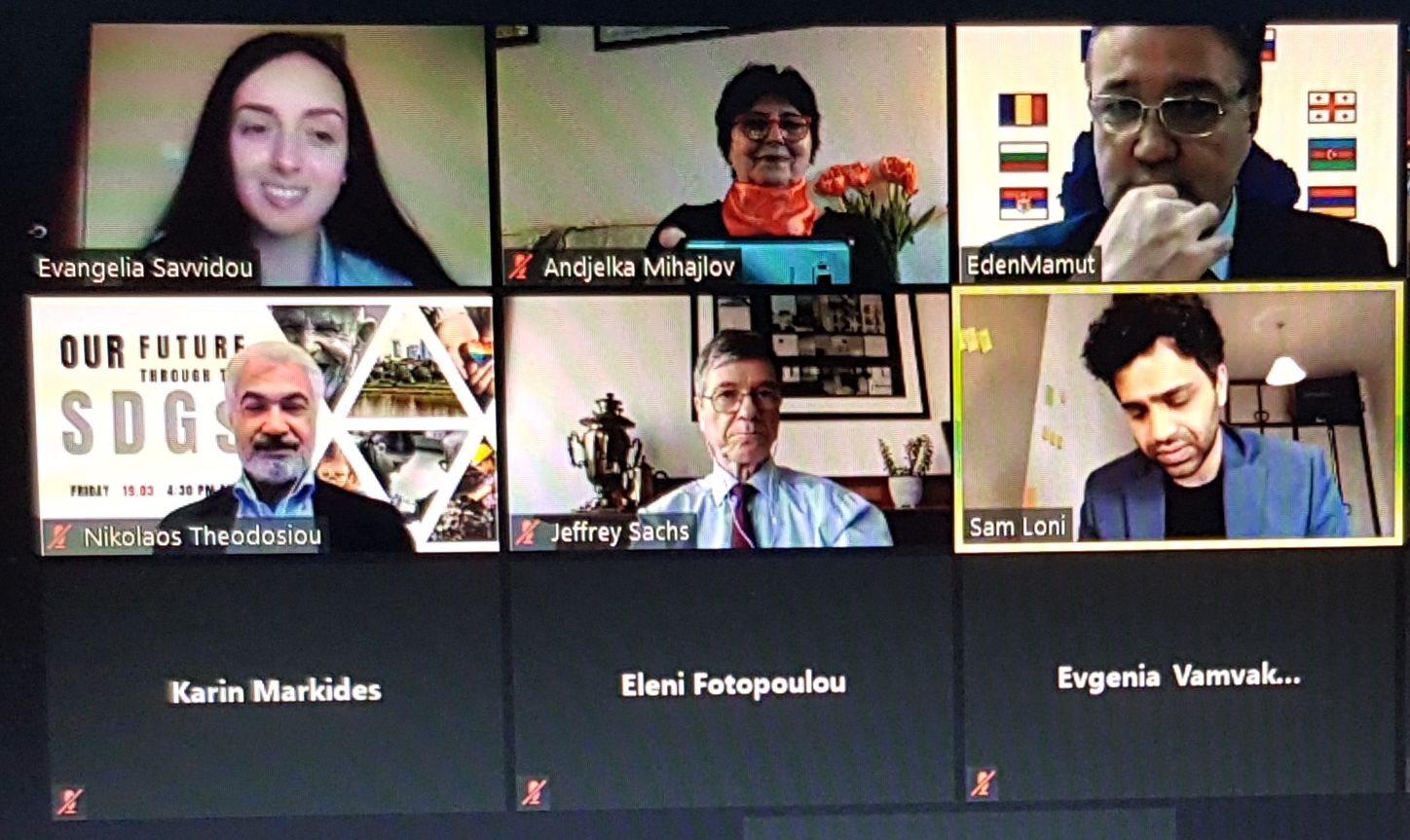
More at http://sdsn-blacksea.auth.gr/projects/our-future-through-the-sustainable-development-goals/
http://sdsn-blacksea.auth.gr/…/our-future-through-the…/
#SDSNYouthBlackSea #OurFuture #Youth #SDGs
EASD publication on circular economy acknowledged by European Circular Economy Stakeholder Platform
European Circular Economy Stakeholder Platform , a joint initiative by the European Commission and the European Economic and Social Committee, in “Knowledge Hub” – Knowledge, acknowledged EASD publication on circular economy, as study/report/presentation/position paper….. submitted by stakeholders.
As noted, publication “Circular economy in Serbia – process started” sets out the state of play of the circular economy concept in Serbia and identifies the main obstacles that may hamper the shift to the circular economy paradigm. It also includes circular economy initiatives in Serbia and an analysis of linkages between the circular economy concept and the Sustainable Development Goals. Addressing the circular economy only through waste management shows that the circular economy concept is still in its infancy in Serbia. According to the conclusions, the circular economy goes beyond.
Key words: waste management, SDG12 and the environmental sector.
#CEstakeholderEU
EASD quadrennial report at the 2020 regular session of the ECOSOC of the United Nations Committee on NGOs
We are pleased to inform you that the Economic and Social Council (ECOSOC) of the United Nations at its substantive session, held on 18 June 2020, decided to take note of Environmental Ambassadors for Sustainable Development’s recent quadrennial report.
Organizations in special consultative status, like EASD is since 2015, submit to the Council Committee on Non-Governmental Organizations through the Secretary-General every fourth year a brief report of their activities, specifically as regards the support they have given to the work of the United Nations (ECOSOC resolution 1996/31, part IX, paragraph 61(c)). Quadrennial report particularly highlighting EASD contribution to the work of the United Nations, including the Sustainable Development Goals and other internationally agreed goals.
Congratulation to EASD Team!
(Our) Berlin Declaration have the quotation in the European Commissions Report
In the Final report on Assessment of the feasibility of phasing-out dental amalgam, on page 32, used Berlin Declaration as the reference, more precisely:
*2017: Berlin Declaration: After a gathering at a two-day Pan-European Summit to plan the end of amalgam, environmental and consumer NGOs, dental associations, Members of the national parliaments and the European Parliament, academics, and industry issued the “Berlin Declaration to End Amalgam Use in Europe in 2020, available at: https://www.ig-umwelt-
Environmental Ambassadors for Sustainable Development expert participated in Berlin Declaration development! EASD lead Initiative in Serbia.
In 2020 the European Commission recommends the phase out of amalgam. In concluding that the end of amalgam is “technically and economically feasible,” the Commission explains in its report (mentioned above) to Parliament and Council.
· The alternatives are fully acceptable, and dentists fully trained to put them in, quoting: “Mercury free materials are nowadays of good quality, effective restoration methods are widely available and dental schools are increasingly teaching the necessary skills”.
· The risk from BPA (present in some but not all composite) is “negligible’;
· The price differential has shrunk so much such that neither patients nor dentists, will be adversely affected by the phase out;
· 95% of amalgam manufacturers also make alternatives hence they are fully prepared to switch;
Therefore the European Commission will propose a legislation in 2022 for a phase out on a date specific, earlier than 2030.
The report of the Commission focuses equally on the international challenge to end amalgam by promising to turn its attention in 2021 to (a) an amendment of the Minamata Convention and (b) international trade rules to stop amalgam trade.
____________________________
November 2020: Our letter to Commissioner (the European Commission and Commissioner for the Green Deal) Frans Timmermans was well-received
Letter, sent at October 26, 2020 :
Dear Commissioner Timmermans,
European civil society salutes you for your landmark decision to recommend the phase out of dental amalgam to the Parliament and the Council.
Dank u wel!
Your decision makes sense for five solid, incontrovertible reasons:
1. Environment: Dental amalgam is the single largest use of mercury in Europe – and unnecessarily so. The European Union’s science committee SCHER calls amalgam a “secondary poison” because its mercury methylates in fish that children then eat.
2. Technology: Over the past decade the alternative materials have surpassed amalgam in effectiveness – and unlike amalgam, they are minimally-invasive and tooth-friendly.
3. Economics: The prototype is here, because in 2018 amalgam was banned for children, pregnant women, and breastfeeding women, and simple changes in insurance and government programs made the transition seamlessly. The same can now be done for the general population. Moldova, the poorest nation in Europe, banned all amalgam use last year.
4. Preparedness: (1) Manufacturers are ready: virtually all of them make the alternatives, so no jobs will be lost. (2) Dentists are ready: all know how to place the alternatives to amalgam and probably half of them have stopped using amalgam altogether. (3) Consumers are ready: in the European Commission’s internet poll before the Mercury Regulation was enacted, 88% voted in favor of an amalgam ban. (4) Member States are ready: 89% of the Member States (24 of 27), encompassing fully 88% of the population, either have phased out amalgam, have announced a phase-out date, or have low to moderate amalgam use already.
5. Synergies with other EU goals: Whether the goal is specific, such as clean water, or general, such as the Green New Deal with the Chemicals Strategy for Sustainability , the route to a toxic-free Europe must include the end of dental amalgam, a primitive device that pre-dates the Franco-Prussian War and can lead to cracked teeth.
We wish to single out and thank your team at the Commission who laboriously and competently shepherded this issue to the end point of recommending the demise of amalgam for Europe: Aneta Willems, Christopher Allen, David Grimeaud, and Jenny-Johanna Green.
We wish to continue to work with the Commission as you craft legislation for Parliament and the Council to phase out amalgam, and we urge you to set a phase-out date of 2025 or sooner.
Good health to you.
Florian Schulze, European Center for Environmental Medicine (Europe), IG Umwelt-Zahnmedizin (Deutschland)
Elena Lymberidi-Settimo, European Environmental Bureau (Europe)
Dr. Claudia Castell-Exner, President of EurEau – European Federation of Water Services (Europe)
Génon K. Jensen – Health and Environment Alliance (Europe)
Laurette Casal & Antoine Lecuyer, Non Au Mercure (France)
Hanna Schudy, EKO-UNIA (Polska)
Sascha Gabizon, Women Engage for a Common Future (Nederland)
Trine Jørgensen, Foreningen mod Skadeligt Dentalmateriale (Danmark)
Andjelka Mihajlov, Environmental Ambassadors for Sustainable Development (Србија)
Ann-Marie Lidmark, Tandhälsoförbundet (Sverige)
Dr. Hanns Moshammer, ÄrztInnen für eine gesunde Umwelt (Aegu) (Österreich)
Dr. Elena Manvelyan, Armenian Women for Health and Healthy Environment (Hayastan)
Monika Frielinghaus, SHV für Umweltgeschädigte e.V. (Deutschland)
Dr. Stefan Dietsche, European Academy for Environmental Medicine (Deutschland)
Lutz Höhne, Deutsche Gesellschaft für Umwelt-ZahnMedizin e.V. (Deutschland)
Susana Fonseca, ZERO – Associação Sistema Terrestre Sustentável (Portugal)
Reinhard Lauer, Bundesverband der Beratungsstellen für Umweltgifte, insbesondere Amalgam, Schwermetalle und Holzschutzmittel e.V. (Deutschland)
Julia Tudare, Intoxication Métaux Nouvelle-Calédonie (Nouvelle-Calédonie)
Graeme Munro-Hall, World Alliance for Mercury-Free Dentistry (United Kingdom)
Dr. David Harvie-Austin, British Society for Mercury Free Dentistry (United Kingdom)
Leticia Baselga, Ecologistas en Acción (España)
Branislav Moňok, Friends of the Earth – SPZ (Slovenská republika)
Dr. Mihaela Cuțui, Timiș College of Dentists (România)
Dr. Claudia Bottino, Metallica_mente (Italia)
2020 Annual Meeting – UN @ 75: The Future of Partnership and Multilateralism, we participate
The 2020 ACUNS Annual Meeting (June 2020) not only provides an appropriate moment to critically reflect on 75 years of UN history, but also and perhaps more so provides an opportunity to constructively discuss the future of multilateralism and the role of partnerships in the future governance of our common global good. EASD is ACUNS institutional member, and we participate at Meeting.
EASD particular interest are thematic sessions:
- THE EUROPEAN UNION AND THE UNITED NATIONS IN GLOBAL GOVERNANCE
- The Future of the UN: Beyond Traditional Multilateralism
- The Role of Civil Society in an Internationalized World
- Women in Leadership in Global Governance
- Global (Human) Security Challenges Post-1990
- Sustainable Development Goals and Inclusiveness
- Multilateralism: Lessons Learned
ENV.net
ENV.net project consists of ENV.net 1/2 (2012-2016) and ENV.net 3 (2017-2020) projects. EC supported
ENV.net 1/2: ENV.net – Development of ENV.net in West Balkan and Turkey: giving citizens a voice to influence the environmental process reforms for closer EU integration, EuropeAid/132438/C/
ACT/Multi – 2012/306-642 and 2014/351-610; Partners for project implementation are: Puntosud , EASD , Co-PLAN , EEB – European Environmental Bureau, ATRC and TEMA . The project builds on the experience of an EU-funded project, namely the Environment Forum, implemented in the period 2009-2012, aiming at developing capacities of environmental NGOs to establish a constructive dialogue with national authorities. The present project strategy has been designed to achieve a greater commitment and capacity of a group of CSOs coming from Environment Forum experience and which have agreed on the creation of a new network, the ENV.net, to support the civil activism, give citizens a voice and influence the public reform processes in the approximation to the environment acquis. With the view to further enhance their capacities to work with CSOs and to share experience with other European countries, EEB has accepted to participate and to share its experience. Project objective – Greater commitment and capacity of the ENV.net to give citizens a voice and influence public sector reform processes in the environment sector through analysis, monitoring and advocacy. As one of the outcome National ENV.net networks (to complement Regional ENV.net network) were established; established ENV.net Network in Serbia have 54 organizations (multistakeholders).
ENV.net3: “ENV-net factoring the environmental portfolio for Western Balkans and Turkey in the EU Policy Agenda” – EuropeAid/154870/ACT/Multi ; EASD (Serbia) partners for project implementation are: 4X4X4 Balkan Bridges from North Macedonia, European Environmental Bureau from Belgium, Advocacy Training and Resource Center, from Kosovo*, Green Home, from Montenegro, Lir Evolution, from Bosnia and Herzegovina, TEMA – the Turkish Foundation for Combating Soil Erosion, for Reforestation and Protection of Natural Habitats, from Turkey and Foundation Punto,Sud, from Italy. The project contributes to the improvement of environmental policy-making and implementation in compliance with the EU standards. To this end, the network foresees to contribute to both improved and intensified inter-action among actors (including environmental CSOs, media and policy-makers) and an overall more enabling technical and financial environment where these actors operate. The action sets out to strengthen the profile of ENV.net as the leading network and bridging actor in environmental policy-influencing in the WB and Turkey region (vis-à-vis EU). Further, it foresees introducing and initiating a discussion on the Circular Economy concept in the region, as well as intensifying climate change actions. The action also foresees a number of value-adding, cross-cutting elements such as inter-partner learning/exchange, networking, and thematic organisational support to third parties (i.e. local grass-root organisations, media).
____________________________________
Paper published: Andjelka Mihajlov, Aleksandra Mladenovic & Filip Jovanovic, Contribution to Environmental Communication: comparative analysis of two qualitative methods as the performance to European Union accession, in “Adapt to Survive. The role of social media, sharing and communication to ameliorate this world “, Conference Proceedings Book Edited by Margarita Kefalaki, Communication Institute of Greece (COMinG),Athens, p.57-66 , 2021 ( ISSN: ISBN: 978-618-85622-3-3 ), Available at https://coming.gr/wp-content/uploads/2021/12/1_1_2021_Adapt-to-survive_Book_conf-proceedings_COMinG.pdf
Selected activities:
March 2021:
Information paper on Climate Change and Energy
Information paper on Climate Change and Floods
August 2021: Environmental Communication: Media Archive Reports as a Participant Science Tool
Promotion by media (Da li smo spremni za sve češće poplave?)
December 31, 2020: ENV.net3 project final steps – infographics with documents developed by EASD
____________________________________
Report on monitoring the progress of national environmental legislation (Chapter 27) in 2018, 2019, and half-year 2020, with projections through end-2020 / Izveštaj o monitoringu napredovanja nacionalnog zakonodavstva o životnoj sredini (Poglavlje 27) u 2018., 2019. i prvoj polovini 2020. godine, sa projekcijom do kraja 2020.godine (Extended abstract in English, Full text in Serbian)
Position Paper on COVID 19 and waste management
Circular Economy goes beyond Waste Management presented at EurAsia Waste Management Symposium 2020
Information paper on meaning of Cluster “Green agenda and sustainable connectivity” for Serbia
Reflection paper on air quality data for Serbia
2020 Spotlight Report on Circular Economy in Serbia
EASD publication on circular economy acknowledged by European Circular Economy Stakeholder Platform
Virtual tour on the experience from Italian practices in circular economy
November 2020: Joint civil society statement for Sofia Summit
EASD research presented at EurAsia Waste Management Symposium
October 2020, New Momentum for the Environmental Agenda in the Western Balkans and Turkey?
Establishment of the South East European Platform to Beat Pollution – SEEPP
Recap the moments from EnE19/ENV.net Conference
March 2019: UN Environment : 4th Assembly (and pre- and side-events) , ENV.net related event
November 2018: To report: The first Regional Conference on Circular Economy was success ; The first regional conference on circular economy, Belgrade, November 2018: Agenda
Call for sub-grants (6.novembar 2018: Otvoren poziv za dodelu sub-grantova u okviru ENV.net projekta)
YRE competition: apply before February 1, 2019.; Theme: Energy Efficiency
ENV.net Initiative: to update National Strategy on Sustainable Use of Natural Resources and Goods, by applying Circular Economy concept ; ENV.net Initiative and Knowledge based advocacy: to update National Strategy of Sustainable Use of Natural Resources
Circular economy knowledge based advocacy in Eco-schools network in Serbia
May 2018. Guest lectures made at two Universities in Serbia: “Circular economy is concept and process, and still not full circle” ; Participation at the Green Parliamentary Group meeting
Follow project at : facebook.com/envnetsite/ and www.env-net.org
February 2018 – ENV.net 3 Kick-off Meeting in Tirana
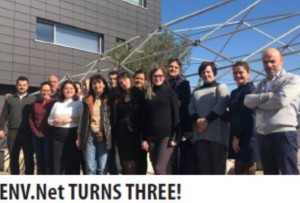 ________________________________________________
________________________________________________
In December 2017. we started with ENV.net 3 : ENV-net factoring the environmental portfolio for Western Balkans and Turkey in the EU Policy Agenda (reference number 2017/394-372)
ENV.net 3 – Serbia team include: Aleksandra Mladenovic –National Coordinator and Manager. In addition, Thematic experts/consultants, on demand, are Prof dr Andjelka Mihajlov and Filip Jovanovic, and Media communication expert, on demend, is Milica Momcilovic.
________________________________________________________________________________
Development of ENV.net in West Balkan and Turkey: giving citizens a voice to influence the environmental process reforms for closer EU integration – EuropeAid/132438/C/ACT/Multi – 2012/306-642 and 2014/351-610 (2012-2016)
The project builds on the experience of an EU-funded project, namely the Environment Forum , implemented in the period 2009-2012, aiming at developing capacities of environmental NGOs to establish a constructive dialogue with national authorities. The present project strategy has been designed to achieve a greater commitment and capacity of a group of CSOs coming from Environment Forum experience and which have agreed on the creation of a new network, the ENV.net, to support the civil activism, give citizens a voice and influence the public reform processes in the approximation to the environment acquis. With the view to further enhance their capacities to work with CSOs and to share experience with other European countries, EEB has accepted to participate and to share its experience. Project objective – Greater commitment and capacity of the ENV.net to give citizens a voice and influence public sector reform processes in the environment sector through analysis, monitoring and advocacy.
Partners for project implementation are: Puntosud , EASD , Co-PLAN , EEB – European Environmental Bureau , ATRC and TEMA . EASD Activity circles represent the scope of our activities.
Project launched site for presentation of activities in all participating countries, as well as facebook page and ENV.net Newsletters.
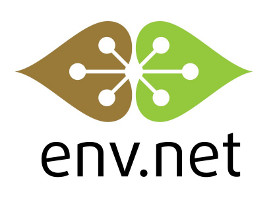 ENV.net 1/2– Serbia team include: Dr Nataša Žugić Drakulić –National Coordinator and Filip Jovanović – project manager , chosen in transparent process by „ Environmental Ambassadors for Sustainable Development“, partner organisation in this project. In addition, National consultant for European integration is Prof dr Andjelka Mihajlov , dr Hristina Stevanović Čarapina is leading expert .
ENV.net 1/2– Serbia team include: Dr Nataša Žugić Drakulić –National Coordinator and Filip Jovanović – project manager , chosen in transparent process by „ Environmental Ambassadors for Sustainable Development“, partner organisation in this project. In addition, National consultant for European integration is Prof dr Andjelka Mihajlov , dr Hristina Stevanović Čarapina is leading expert .
__________________________________
ENV.net Serbia network is functioning : Some of activities could be followed only in Serbian, like calls to participate, and other actions targeted to citizens in Serbia.
**************************************
Highlights: ENV.net publications
- A Guideline of EU Accession Monitoring Tools for CSOs in candidate and potential candidate countries: Chapter 27, (Authors and contributors: Andjelka Mihajlov, Natasa Zugic-Drakulic, Filip Jovanovic, Federico Bastia, Simona Pogliani, Mara Silina, Teida Shehi and Dusko Hristov), Published by Environmental Ambassadors for Sustainable Development with the financial assistance of the EU – ENV.net project document, Belgrade January 2015
- How to influence environmental policy through effective advocacy (Authors: Margherita Tolotto and Mara Silina), ENV.net Advocacy Toolkit, European Environmental Bureau, Brussels, January 2015
- Climate change and challenges of the enlargement (Authors: Anja Kolmuss, Dragana Mileusnic, Zanna Vanrenterghem and Richard Filcak), ENV.net Advocacy Toolkit, European Environmental Bureau, Brussels,September 2016
June 2016: Agenda, WED Messages from Serbia: 12th Regional Conference “Environment to Europe” , REPORT FROM EnE16-ENV.net, BELGRADE, SERBIA
April 2016 – ENV.net Course: CSO Participation in Accession Process , Chapter 27: CSOs participation
March 2016 – New internet portal: Greenweb
January 2016 – Save the date for EnE16-ENV.net Conference ; We participate: Regional Conference: „Sustainability of the FPAs” , Brussels . Water-food-energy-ecosystems nexus assessment in the Sava River Basin – Lessons learned and further steps
October – December 2015 – Ministry support to ENV.net , Event
October – Partnership for Climate Change issue : Serbia’s climate talks – on the way to Paris
June 11 – European Commission Vice-President Mr Maroš Šefčovič had meeting with CSOs in Belgrade. EASD participate!
June 7 – Bicycling-ENV.net promotion in town Gornji Milanovac , Green day in Gornji Milanovac
June 5 – Regional Conference ”Environment to Europe” EnE15 – ENV.net EU Environmental Horizontal Legislation: Methods, Standards and Tools , Invitation , AGENDA , Proc. of papers
May 26, 2015 – Promotional activity
April 21, 2015 – Participation in Public Hearing on Climate Change related challenges in Republic of Serbia
April – THE ELEVENTH REGIONAL CONFERENCE ENVIRONMENT TO EUROPE – ENE15 – ENV.NET acknowledged as the European Sustainable Development Week event
March 22 – Celebrating the World Water Day in Serbia: field visit to Ada Ciganlija
February 2, 2015: Invitation for EnE15-ENV.net Conference launched
January 29, 2015: A Guideline of EU Accession Monitoring Tools for CSOs in candidate and potential candidate countries (ENV.net region): Chapter 27 , document finalized
January , 2015: Promotion of Publication
December 31: Thematic Publication “Environment to Europe”, 2014 ( Tematski zbornik radova “Životna sredina ka Evropi”)
December 12: ENV.net Serbia Seminar: Environmental Education in Schools
November 24-25, ENV.net on the margins of ECF Annual Meeting in Brussels with European Commision
November 4-5 , Regional training on the process of designation of potential Natura 2000 sites
October 30 – Conference “EU accession in the field of environmental protection and the role of local authorities”
October 28 – Ministry of Agriculture and Environmental Protection is co-funded ENV.net project , contract signed
October 22-23, Belgrade: ENV.net training: “EU project design process and Implementation of environmental policy”, Invitation , Agenda , Training
October 2014 – ENV.net brochure published and presented
October 14 – ENV.net related: Participation on Conference “Eco-standards and Education”
October 8 – “Little progress has been made in the areas of environment and climate change”
September 29 – ENV.net Round-table Dialogue for Green Future (ENV.net okrugli sto sa niškim srednjoškolcima “Dijalogom ka zelenijoj budućnosti“) (sub-grant)
September 23-25, Brussels: ENV.net preparatory partnership meeting and Framework Partnership Agreement (FPA) Closing Event for Phase I
September 19-24 , We are following Explanatory Screening for the Chapter 27
August 29 – ENV.net (sub-granting) publication published PUBLICATION : “Species of plants and animals of special conservation concern in EU” , in Serbian
July 27 – Partnership with media – Radio Beograd 2
June 19 – Eco-package initiative as the example environmental education for the future EU citizens
June 5 – CONFERENCE , ENV.net multi-stakeholder Conference on Chapter 27: about 200 participants
June 4 – Meeting with media , Moments from the Conference for Media
May 29, 2014 – ENV.net Serbia Conference organisation on the good track –Agenda for EnE14/ENV.net Conference “Environment to Europe”, June 5, 2014 in SCC – opening at 10:00
May 22-24, 2014 – 4th Partners Meeting in Milan
May 13, 2014 – European Solar Days – participation in promotion of EU environmental values
May 10, 2014 – ENV.net Let us clean up Europe! event: Ada Ciganlija Beograd ; ENV.net Serbia with children, parents and teachers “cleaning up Serbia” , Event in pictures
May 22-24, 2014 – 4th ENV.net Partners Meeting in Milan
May 7-8, 2014 – Some of ENV.net Partners meet in the corridors of ECRAN ECF Meeting
April 25, 2014 – UNEP acknowledged EnE14-ENV.net 2014 Conference as the World Environmental Day Event
April 5, 2014 – Education for future citizens of EU: guest lecturing at the Law Faculty
April 4, 2014 – EU Delegation to Serbia: Consultative Meeting with CSOs on progress towards EU in 2014
Aprl 4, 2014 – We participated to the meeting related to EU-Serbia Civil Society Joint Consultative Committee – JCC
April 2, 2014 – ECRAN NGOs Environment and Climate Change Forum – Evaluation Outcome – Congratulation to ENV.net partners!!!!
April 1, 2014 – Protego and Protecta sign subcontracting contracts
Marc 20-9, 2014 – EASD written contribution to the 2014 Progress Report
March 25, 2014 – Participation on UNECE consultation related to the 3rd EPR for Serbia
March 23, 2014 – ENV.net sub-grants winners announced , ENV.net
March 20, 2014 – We participate on Panel at Faculty of Organisation Sciences – University of Belgrade : Knowledge about Environment
March 9, 2014 – Technical (formal requests) evaluation of sub-grants application finished: 45 projects eligible for further evaluation
March 6, 2014 – Promotion of global activity EARTH HOUR (Marh 29, 20:30-21:30) and call for participation
March 4-6, 2014 – We participate in Zagreb on Workshop on Water-Food-Energy-Ecosystems Nexus Assessment in the Sava River Basin
From February 2014 – EU negotiation process: we are following explanatory screenings
February 26, 2014 – In accordance with procedure, QUESTIONS by potential applicants with our ANSWERS are posted on web site on February 26, at 07:00 , taking in account questions received by February 25 at 23:59
February 20-21, 2014 – EASD-ENV.net Serbia participated in defining the first strategic framework for CSOs development
February 18,2014- Knowledge based advocacy: Environment should be within priorities in the negotiations with EU
February 13, 2014 – Environment in youth policy in Serbia
February 12, 2014 – Meeting with ENVAP2 Project representatives
February 7, 2014 – Participation on Training related the Sector Planning Documents – SPDs
February 1, 2014 – Call of proposals for ENV.net sub-granting in Serbia “EU: we watch and learn to be ready!”
January 30, 2014 – Participation on public hearing by the European Economic and Social Committee (EESC) Study Group
January 30,2014 – Thematic meeting of the SECO mechanism on IPA II programming
January 30, 2014 – Participate in the Mapping of CSOs and other stakeholders in in the process of EU accession negotiations
January 19, 2014 – EASD / ENV.net Team reading of European Parliament Resolution, January 2014
January 07, 2014 – Starting preparation for ENV.net 2014 Round-table / Conference
January 2, 2014 – Attention to ENVIRONMENT in EUROPA DAIRY
_______________________________________________________________
December 23, 2013 – Workshop on environmental values for kindergarten children from Sombor (Minutes) , Participation on meetings in Nature Protection Institute and Agency for Environmental Protection
Decembar 20, 2013 – In media : Promotion of knowledge based information
December 20, 2013 – Environmental Education for future EU citizens , Minutes
December 17, 2013 – ENV.net region news: European Affairs ministers give green light to Serbia’s EU negotiations
December 16, 2013: Workshop for strategic planning of further work SECO mechanism
December 3, 2013 – ENV.net presented to the master students of Faculty of Security Studies
December 2, 2013 – Eye on EU integration process: Parliament of Serbia , Eye on SEE regional cooperation
November 28, 2013 – Meeting FPA project grantees with DG Enlargement representative
November 25, 2013 – Partnership with Media : Partnership agreement with Journalist’ Association of Serbia
Environmental Education of future EU citizens: Activity on November 19,2013
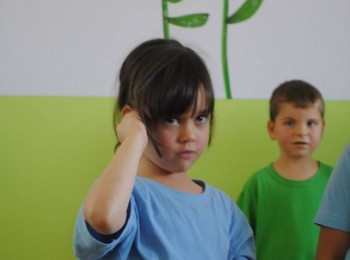 |
Acknowledging the outreach of ENV.net Survey and ENV.net 2013 Roudtable recomendations, EASD – ENV.net Serbia recognized importance of children/youth education for active EU citizenship , through promotion of EU environmental values. We would like to share moments from kindergarten “Pčelice”, from village Šetonje, as promotion event for environmental values in education. With children and teachers, as well as EASD Team, there were Prof dr Ivica Radovic and mr Ljubiša Antonijević, assistant ministers for education and science. |
Partnership with municipality – On November 18., 2013, ENV.net project presented on the Round table in Municipality Vračar (within City of Belgrade).
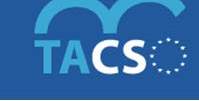 Cooperation with TACSO Serbia – On November 15. 2013, in Belgrade, TACSO Advisory Committee (LAG) organized a consultative meeting with representatives of civil society organizations and networks and Serbian civil society expert community. At the meeting a draft of a document on the assessment needs of civil society in Serbia was discussed.
Cooperation with TACSO Serbia – On November 15. 2013, in Belgrade, TACSO Advisory Committee (LAG) organized a consultative meeting with representatives of civil society organizations and networks and Serbian civil society expert community. At the meeting a draft of a document on the assessment needs of civil society in Serbia was discussed.
 EASD prepared Opinion and contribution to the Draft Strategy Paper for the Republic of Serbia 2014-2020. Through SECO mechanism opinion is sent to Governmental Office for European Integration. Opinion is based on Serbia 2013 Progress Report and Strategy – Reading by ENV.net Serbia Team .
EASD prepared Opinion and contribution to the Draft Strategy Paper for the Republic of Serbia 2014-2020. Through SECO mechanism opinion is sent to Governmental Office for European Integration. Opinion is based on Serbia 2013 Progress Report and Strategy – Reading by ENV.net Serbia Team .
Organisation capacity building process: EASD acknowledged becoming IPEN network Participating Organization
Eye on environmental laws changes: monitoring compliance with EU directives
November 2013. – The third ENV.net partnership meeting in Milan
28. October – Meeting with European Parliamentarians
ENV.net Serbia Team prepared document: Reading of 2013 Progress Report for Serbia and Strategy by ENV.net Serbia Team ( Serbia 2013 Progress Report and Strategy – Reading by ENV.net Serbia Team ).
____________________________________________________
22. and 23 October – Education on sustainable management of lead/chemicals
October 18 – EC Delegation in Serbia, present to relevant CSOs, on October 18, 2013 , Serbia Progress Report 2013, in which the Commission services present their assessment of what Serbia as the candidate country has achieved over the last year.
October 2013 : Participated on different events organized to raise awareness to EU approximation environmental challenges.
Promotion of ENV.net facebook page!
October 2, 2013 – ENV.net team participated at the First SEE Regional Science Promotion Conference (SCIPROM), opened in Belgrade, with the aim to bring together science promotion professionals, practitioners and enthusiasts to share experience and network in order to strengthen the link between science and society in our Region. In the current competitive global environment it is an imperative to enhance economic and social capacities by improving the educational structure of society, inspiring innovation and technological advancement and creating a milieu for appreciation of the value and benefits of knowledge. In the opening address, Minister for Education, Science and Technology development of Serbia underlined, among others the importance of knowledge based actions, as well as the importance of drinking water for development. Conference bring international experts and representatives of international organizations, research and educational institutions, science camps, science communicators, NGOs, private sector and media on board.
This conference justify the path of ENV.net Serbia implementation and development, linking European Integration, Knowledge based activities and sectors : Education, Science and Environment/Natural Resources.
____________________________
Waste management and water management are considered as two important segments of environmental acquis and studies in this area represent an important aspect of ENV.net project. Environmental accession status of Serbia ( waste , water and EIA thematic issues) was presented by EASD team at International Conferences in Vienna (Austria) and Zadar (Croatia), as well as on chemicals at SAICM Regional Meeting (Skopje, Macedonia FYR).
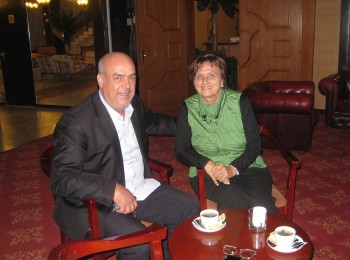 In addition, possible ENV.net partnerships are discussed with other participants and interested CSOs.
In addition, possible ENV.net partnerships are discussed with other participants and interested CSOs.
In Skopje, EASD representative met Macedonian 4x4x4 BB representative on September 26, 2013, to discuss possible enlargement of ENV.net project to Macedonia.
________________________________________
Promotion of ENV.net site in place Join us!
Added value for ENV.net Serbia is EASD activities within the development of Post-Rio+20 Agenda.
Office for Cooperation with Civil Society organized on September 6, 2013 Conference devoted to negotiating Chapter 27 (Environment). Presentation (in Serbian) from the Conference includes: Poglavlje 27 pregovori, Iskustvo R Slovenije, Natura 2000 Ministarstvo, Uloga civilnog drustva u monitoringu, Natura 2000 NGO )
September 2013: ENV.net project presented in the Ministry of Education, Science and Development of Serbia (Meeting of the National Committee for Environmental Education Programs)
August 2013. – Snapshot analysis : While waiting for EC 2013 Progress Report
___________________________________________________________________
Women2030 (preparation of Shadow report to the National Voluntary Review 2019)
The Women 2030 Programme is being implemented in 50 countries across different regions of the world. It is constituted by a coalition of four women and gender network organisations cooperating to realize the Sustainable Development Goals (SDGs) in a gender-equitable and climate-just manner. The coalition has a 5-year framework partnership agreement with the European Commission (contract CSO-LA/2016/374-340).
On March 18, 2016, a coalition of four global and regional women and gender networks signed a 5-year partnership agreement with the European Commission to implement the Sustainable Development Goals (SDGs) of the global Agenda-2030. This coalition, known as #Women2030, supports the implementation of the Agenda 2030.
IN SERBIA, Women 2030 partner is EASD, since 2018. Under this project, EASD prepared “shadow report” to the Voluntary National Review that Serbia reported in 2019. The “shadow report” was presented during the HLPF held in New York on July, 2019.
Overview of the community-based data collected within the Women2030 Gender Assessment in Serbia
ENVIRONMENT TO EUROPE – EnE
This project/process present different phases towards European values, as well as globally values promoted through Multilateral Environmental Agreements. Started to raise awareness of the importance of the UNECE Ministerial “Environment for Europe” Belgrade 2007 Conference, and further continuously is mobilizing interesting parties in Serbia and Region to catalyze environmental and sustainable development.
Within “Environment to Europe” Process, EASD actively participate and organize different supporting activities in different related thematic areas, like sustainable consumption and production, efficient resource use, chemicals, eco-consumers protection, participation at global, EC, regional and with papers at different conferences, etc. Regional cohesion projects supported Environment to Europe process.
__________________________________________________
EEB 2022 ANNUAL CONFERENCE – “Boosting the Deal for a Greener Europe in Turbulent Times”
Study visit to Grenoble – the Green Capital of Europe
EnE22, June 2022 – UNEP@50 and World Environment Day
December 2021 – Climate Pact for Serbia: Snapshot targeted rehearsal of country’s obligations in climate action….
Virtual tour on the experience from Italian practices in circular economy
Recap the moments from EnE19/ENV.net Conference
WEBINAR – Regional Forum of Sustainable Development (RFSD) for the UNECE Region : we participate
EASD full member in European Environmental Bureau – honor and challenge
The ESDN Conference 2018 – we participate ; We participate – ESDN Conference 2018, “Stakeholder-Policy Cooperation in the Age of the SDGs: What new approaches are required to be successful?”, Vienna (Austria), 1-2 October, 2018
Join us for June 5th: Conference Agenda is available
6th UN regional meeting on SAICM, Poland, February 2018: we participate
February 2018: Call for participation for EnE18: Nature protection – Nature-Responsive Development
February 2018: ENV.net 3 Kick-off Meeting in Tirana
November 2017: EASD participate: Summit to Plan the End of Amalgam in Europe 2017– November 20-21, Berlin
September 2017: “Make Mercury History” – EASD participated at Minamata COP1 in Geneva
July 2017: Civil Society Forum in Trieste, 11-12 July 2017 – we (EASD) participate ; Good signal: Serbia gets (again) separate Ministry of environmental protection
June 2017: Climate Change Education for Sustainable Development
April 2017: Call: The Thirteenth Regional Conference ”Environment to Europe – EnE17″, June 5th 2017, Belgrade
February 2017: “EnE17 – The 13th Regional Conference Environment to Europe” announcement: Climate Change Education
June 2016: Agenda , EnE16-ENV.net Zbornik radova/Proceedings of papers ; WED Messages from Serbia: 12th Regional Conference “Environment to Europe” , REPORT FROM EnE16-ENV.net, BELGRADE, SERBIA
January 2016 – Save the date and participate: June 6, 2016 – Environment to Europe Conference
June 5, 2015 – 2015 Conference, Information, Proc. of papers
We participate at European Green Week
December 2014 – Thematic Publication “Environment to Europe” ( Tematski zbornik radova “Životna sredina ka Evropi”)
June 5, 2014 – ENV.net multi-stakeholder Conference on Chapter 27: about 200 participants , 2014 Conference
Agenda for EnE14/ENV.net Conference “Environment to Europe”, June 5, 2014 in SCC – opening at 10:00
Invitation for EnE14-ENV.net Conference, June 5 – 2014 in Belgrade
EnE14 / ENV.net Conference will be held on June 5, 2014 in Belgrade (it will 10th regional conference!). Thematic focus: Chapter 27. Reserve the date! More information soon. Follow the updated information related to event.
__________________________________________________
EnE13 – Environment to Europe Conference on June 10, 2013 is focused on local environment. The main messages from this participatory ENV.net event are: environmental sector activities should be knowledge based, and education for environment and sustainable development should be priority. Capacities and continuity is very important for inclusion environment in other sectoral policies. Conference is institutionally supported by Ministry of Energy, Development and Environmental Protection and Ministry of Natural Resources, Mining and Spatial Planning, as well as National Commission for UNESCO. This Conference is UNEP WED event.
| 2013 | EnE13 | ENV.net Roundtable Focus: Local Environment | Agenda, Zbornik radova EnE13 – Zivotna sredina ka Evropi – Papers Proceedings; Minutes; More than 120 participants at EnE13 conference/ENV.net Roundtable: 10 June, 2013 in Belgrade |
Snapshots from the previous EnE “Environment to Europe” Conferences:
| Thematic focus | Published materials | ||
| 2005 | EnE05 | Thematic focus : The importance of Environmental Sector in EU Integration process | Detailed Agenda published.CD Proceedings of Papers published. Book “Sustainable Development and Environment towards Europe in 95+ steps”, by A.Mihajlov, published in Serbian |
| 2006 | EnE06 | European/developed countries values in environmental and related issues; lessons learned. At the same time, the Civil Society Forum EfE07 Meeting towards UN Pan-European Ministerial Conference Belgrade 2007 “Environment for Europe” held. | Detailed Agenda published.CD Proceedings of Papers published. Book “Sustainable Sustainable Development and Environment Towards Europe in 95+ Steps”, by A.Mihajlov, published in English |
| 2007 | EnE07 | Dedicated to contribute to upcoming UNECE “Environment for Europe” (2007, Belgrade) Pan-European Ministerial Conference ; NGO Declaration on Environmental Cohesion of Western Balkan agreed | Detailed Agenda published.CD Proceedings of Papers published. |
| 2008 | EnE08 | Youth and Vulnerable Groups in Environmental EU Accession | Detailed Agenda published. EnE08 Zbornik radova 4. regionalne Konferencije „Zivotna sredina ka Evropi“-sadrzaj published. |
| 2009 | EnE09 | Climate Change and Sustainable Tourism Conference | Detailed Agenda published (agenda EnE09) ; CD Proceedings of Papers published. |
| 2010 | EnE10 | Green Education and Green Economy | Detailed Agenda published ( Agenda EnE10 Konferencije ); CD Proceedings of Papers published. |
| 2011 | EnE11 | Rural and Mountain Sustainable Development | Detailed Agenda published (agenda_ene11) CD Proceedings of Papers published. Publication with selected paper published. |
| 2012 | EnE12 | Learning event for Rio=20 preparation – Green Economy and Governance for Sustainable Development | Detailed Agenda published ( Agenda EnE12 )
CD Proceedings of Papers published. UNDP/UNEP Green Economy Study published http://sustainabledevelopment.un.org/content/documents/984serbia.pdf |
EASD is engaged with its preparatory process and exchange views with Major Groups towards UNEA5
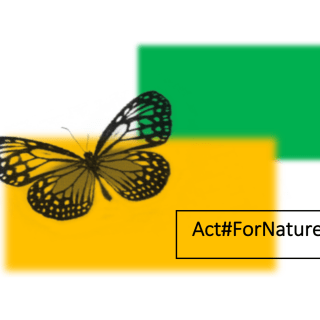 Two EASD representatives and experts participated:
Two EASD representatives and experts participated:
- on 3 June 2020, at webinar on ‘Capacity Building for UNEA-5’ for Major Groups and Stakeholders, conducted by the Stakeholder Forum for a Sustainable Future. There four key areas were covered in the webinar: The UNEA theme and related sub-themes and important deadlines, The structure of UNEP and UNEA, The Oslo Consultation Opportunities for stakeholders to engage.
- on June 7, 2020, at Major Groups and Stakeholders Consultation , facilitated by the Norwegian Forum for Development and Environment, this meeting is bringing together representatives of Major Groups and Stakeholders to discuss the theme of UNEA 5 and related sub-themes, prepare their views and positions, including for presenting them to member states.
- on June 9, 2020, at Connecting People and Nature: Transforming the global food systems ; explore opportunities for transforming agriculture and food systems, employing nature-friendly practices and taking into account food systems, food and nutrition security, and livelihoods. This dialogue will build momentum for a collaborative approach between public and private actors at the fifth meeting of the United Nations Environment Assembly (UNEA-5) and, ultimately, will feed into the UN Food Systems Summit–a critical opportunity to set a course to radically transform our food systems.
___________
The 5th UN Environment Assembly (UNEA-5) will be held in Nairobi, Kenya, in February 2021 with the theme ‘Strengthening Actions for Nature to Achieve the Sustainable Development Goals’. In order to help you prepare for UNEA-5, UNEP, the UNEA Presidency, and partners from Major Groups and Stakeholders have prepared a series of exciting events that will assist us to learn more about UNEA-5, engage with its preparatory process and exchange views with Major Groups and Stakeholders from all over the world. EASD actively participate in preparatory process.
EASD join the process of preparation for High Level Political Forum 2020
The High-level Political Forum (HLPF), United Nations central platform for follow-up and review of the 2030 Agenda for Sustainable Development and the Sustainable Development Goals, provides for the full and effective participation of all States Members of the United Nations and States members of specialized agencies, with contribution of Major Groups and other stakeholders (MGoS).
EASD participate on informal consultations, joining Women Major Group. Women’s Major Group prepared 2020 High Level Political Forum Position Paper “Accelerated action and transformative pathways: realizing the decade of action and delivery for sustainable development”, as the strong advocacy tool, through and beyond HLPF2020.
The 2020 HLPF will most likely be virtual. The MGoS Official Session is listed in the 2020 HLPF Programme on Tuesday, 7 July 2020 from 5 – 6pm EDT (New York time). The title of the session is: Transformative pathways to realize the 2030 Agenda: a whole of society approach taking into account the impact of COVID19 (Stakeholder perspective).
In 2019, EASD actively participated at HLPF Meeting in New York.
Feminist response to Covid19
EASD is organization working across global movements centered on human rights, sustainable development, and
economic and social justice; partner feminist organisations come together in a moment of collective organizing to outline key principles for a just and resilient recovery from the ongoing global pandemic, as well as to track responses and uplift collective action of feminists around the world.
The COVID19 pandemic is upending economies, changing mobility patterns, disrupting social networks, altering informal and formal workplaces and flows, and redefining the concept of essential work and who performs it. EASD already address the issues at EnE20 Conference, and by E-campaign.
KEY PRINCIPLES FOR FEMINIST RESPONSE TO COVID19 are cross-cutting to all these principles is the promotion, protection and fulfillment of human rights and gender equality:
- COVID19 responses must centre the well-being of all people in an intersection manner
- COVID19 responses must ensure the health and safety of all, including ensuring sexual and reproductive health and rights
- COVID19 responses must promote a comprehensive paradigm shift, relying on adequate and equitable financing
- COVID19 responses must be based on and strengthen democratic values
- COVID19 responses must promote a just and equitable transition for people and planet
- COVID19 responses must be guided by cooperation, multilateralism and global justice
June 5,2020 – EnE20 Conference “Citizen science: Focus on Agenda 2030 and Sustainable Development Goals”
Professional association “Environmental Ambassadors for Sustainable Development ” and Serbian Chamber of Commerce , on June 5th 2020, organize the 16th Environment to Europe – EnE20 Conference. Traditionally, it is an official event that marks the UN World Environment Day (WED) in the Republic of Serbia and region.
In accordance with the current circumstances around Covid19, the EnE20 conference “Citizen Science: focus on Agenda 2030 and Sustainable Development Goals” is realized online, presenting the results so far achieved in the development of citizen science concept in Serbia. Bearing in mind that the concept of “citizen science” in Serbia is still developing, but supported through various joint actions and initiatives of scientists and formal / informal civic activists and organizations, the focus is to youth participation, especially through educational institutions involved in international Eco-schools program in Serbia.
This year, the co-organizers of EnE20 are the UN in Serbia , the Global Listening Center , the Center for the Promotion of Science , NALED , the French Institute in Serbia and PE Ada Ciganlija .
Plenary lectures of experts from the Serbian Chamber of Commerce, the Global Listening Center, the Center for the Promotion of Science, NALED and the Environmental Ambassadors for Sustainable Development, can be found at the link HERE. Invited speakers include dr Tanja Adnadjević, dr Marjana Brkić, mr Dušan Stokić, Slobodan Krstović, Sanja Knežević Mitrović, Đurdjija Petrović, and Prof dr Andjelka Mihajlov.
As part of the celebration of World Environment Day and as a special part of the EnE20 conference, a national debate is held for 20 students aged 11 to 18, who were nominated in the essay part of the competition organized by the international organization The Trust for Sustainable Living . The aim of the debate is to find solutions for a sustainable future by referring to SDG 17, My vision: Partnerships for a sustainable future. The emphasis of the speakers will be on the issues related to the environment, climate change and sustainable use of resources. By listening the young people and their visions, we can harmonize further economic and social development with the possibilities and potentials of the environment and nature.
The debate is taking place on Ada Ciganlija, a beach that has been awarded for 9 years by Blue Flag certificate, including the 2020 season, as a symbol of commitment to environmental protection and care for the health and safety of visitors during the summer bathing season. By meeting the criteria for obtaining the Blue Flag for Ada Ciganlija beach, the local community and the managers of the beach contribute to efforts to combat against climate change and raise citizen awareness on sustainable use of resources and the need to protect the environment.
Agenda and presentations, as well as detailed agenda of National Youth Debate
Minutes from Debate:
EU info center on debate and conference
Radio Television Serbia Portal about the Conference
The EnE20 conference is part of a campaign related to climate change, within the project: “ENV.net factoring the environmental portfolio for WB and Turkey in the EU Policy Agenda” (reference number 2017/394-372)
All information regarding the EnE20 conference can be obtained via Email: eneconference@feeserbia.com.
Serbia and Agenda 2030 – Shadow Report to Voluntary National Report presented by EASD President in UN New York
Participation at High-level Political Forum on Sustainable Development (HLPF) – From July 9th to 18th, at the premises of UN Headquarters in New York, High Level Political Forum (HLPF) was held, with participation of thousands representatives of national and local governments, major groups and other stakeholders. Environmental Ambassadors for Sustainable Development (EASD) had opportunity to present the Shadow Report to the Serbian Voluntary National Review, prepared by the Government of the Republic of Serbia, as specific overview regarding implementation of Agenda 2030 in Serbia.
This Shadow Report has been prepared under the project Women2030 (Women and the SDGs), leaded by international organization Women Engage for a Common Future (WECF). During preparation this Shadow Report, EASD organized consultations with some of the representatives of the network Women in Sustainable Energy South-East Europe (WISE SEE), national/local decision makers and representatives of civil societies. The main findings presented in his Report president of EASD, together with other representatives of Major groups, prepared in form of statement towards Serbian delegation at HLPF in New York.
In 2012, the United Nations established High-level Political Forum on Sustainable Development (HLPF), as the main platform on sustainable development with the central role to follow-up and to review the 2030 Agenda for Sustainable Development the Sustainable Development Goals (SDGs) at the global level. The Forum replaced the Commission on Sustainable Development, which had met annually since 1993. The first meeting was held on 24 September 2013.
The HLPF is established based on document of the United Nations Conference on Sustainable Development (Rio+20), “The Future We Want”. General Assembly resolution 67/290 provides format and organizational aspects of the Forum, while the HLPF General Assembly resolution 70/299 provides further guidance on the follow-up and review of the 2030 Agenda and the SDGs.
The Forum meets annually, under the auspices of the Economic and Social Council (ECOSOC), includes ministerial segment. Every four years Forum meets at the level of Heads of State and Government under the auspices of the General Assembly.
The Forum adopts intergovernmentally negotiated political declarations, using the 2030 Agenda for Sustainable Development mechanisms for follow-up and review of progress at the national and sub-national levels, which are country-led and country-driven. These national reviews are expected to be voluntary and to serve as a basis for the regular reviews by the HLPF. The forum provides a platform for partnerships among governments, Major Groups and other relevant Stakeholders (MGoS), both from developed and developing countries.
As a general conclusion of major groups and other stakeholder after the HLPF, it was announced that process of preparation of Voluntary National Reviews is not enough participative and different stakeholders apart that were not included in national processes, even did not have opportunity to read VNRs before HLPF.
Draft Shadow Report to VNR Serbia
Aleksandra Mladenovic’s Intervention at HLPF 2019: http://webtv.un.org
Eco-Paket (Eco-Package) in Eco-Schools
Eco-package is a project implemented in Serbia since 2013/2014 school year, exclusively run in the framework of the International Eco-schools Programme.
Until 2019 the number of Eco-Schools participating in the project increased continuously. This project supported Eco-schools network in their activities performed to be linked to the education for sustainable development through realization of UN Sustainable Development Goals, primarily Goal 4 (Quality education), Goal11 (Sustainable cities and communities) and Goal 17 (Partnerships for the Goals).
The project consisted of three activities:
• creative art work competition: based on different theme, every year the students are collecting used beverage cartons (UBC)
• collection of used beverage cartons (UBC) and
• educational workshops for school children including the demonstration how UBC can be turned into paper (these workshops are being conducted by EASD since 2015/2016 school year).
The main goal was to raise awareness among pre-school children, school children and students of Eco-schools, their families and wider community about the need for sustainable use of resources on the example of correct methods of separation, disposal and recycling of used beverage cartons
Specific goals were:
– Educate pre-school children, school children and students about correct methods of separation and disposal of used beverage cartons.
– Encourage wider community to participate in the process of collection and recycling of used beverage cartons in order to raise their environmental awareness.
– Introduce sustainable forest management principle through FSC model, including sustainable production and consumption of used cartons.
– Present and promote companies and businesses that have incorporated the principles of sustainable development and social responsibility towards the environment and natural resources into their operation.
Main target groups were children in kinder gardens (pre-school institutions), pupils in primary and secondary schools and university students, as well as teaching and non-teaching school staff
Other target groups were parents/families/neighbours, local communities (including local companies, institutions, organizations) and media.
Outreach include Eco-schools Serbia network management, workshops organization, preparation of educational material, knowledge based advocacy, raising awareness among educational institutions and local communities on circular economy issue, establishing good cooperation with local communities where Eco-schools exist
From 2019/20 project is not active at national level
________________________________________________________________________________
More about Eco-Schools Program in Serbia.
Also, detailed instructions are posted in Serbian, as well as most news and announcements.
In addition, there is separated dedicated web sites (in Serbian) for this Eko-paket (Eco-Package) project, supported by Tetra Pak in Serbia.
________________________________________________
October 2018: Circular economy knowledge based advocacy in Eco-schools network in Serbia
October 2017: Eko-paket – Eco-Schools annual conference for the school year 2017/2018
May 2017: Eko-paket 2017 outcome
September 2016: Education for Sustainability
September 2016: FEE General Assembly 2016 and International Conference on Education for Sustainable Development, Ahmedabad, India
June 2016: WED Messages from Serbia: 12th Regional Conference “Environment to Europe”
May 2016: EASD Knowledge Partner with CEE for ESD for transforming education for children and youth
November 2015: Eco-Schools 2015 NOM in Northern Ireland
October 2015 – SDGs as the relevant part of the context within which FEE operates
January 2015 – Eco-schools Serbia in the International Eco-schools news
December 2014, status: ECO-SCHOOLS FAMILY IN SERBIA IS GROWING, CATALYZED BY ECO-PACKAGE ACTIVITY, On December 12, 2014 in Belgrade, two different activities, merged in one great and successful event, happened: Green Flags Award ceremony and Annual meeting of Eco-Schools Coordinators. Over 50 participants were present from all levels of education institutions. The main topics discussed include different ideas and methods on how environmental education in schools could be enhanced and better represented in school curriculum. Positive experiences are shared, in particular related motivation through ECO-PACKAGE activity, supported in Serbia by Tetra-Pak Production Company (Tetra Pak Production d.o.o Beograd in 2013/14 and 2013/14 supports Eco-Schools Program in Serbia, as a socially responsible company). From 3 Eco-schools in 2012/13, 15 in 2013/14, in Serbia there are in the moment 24 schools in different stages of Eco-School Program implementation 2014/15 (2 higher education institutions level, 1 secondary school level, 18 elementary schools and 3 pre-schools). Behind this growing success is NO Team in Serbia (from organization Environmental Ambassadors for Sustainable Development): National FEE Mentor for FEE Programs Prof.dr. Andjelka Mihajlov, National Eco-School Coordinator (until October 2014 Milica Petrovic, from October to December 2014 Dragana Grujicic, and in 2015 expecting new dedicated person on the board), National FEE Council (with representatives of supporting ministries, other relevant institutions and experts), Prof. dr. Natasa Zugic-Drakulic – Executive Director, assistance of Milena Tabasevic and Marina Marjanovic, as well as Coordinators and dedicated teachers, professors and principals in Eco-Schools (participants of 2014 Seminar): Andrijanić Zoran, Angeleski Alma, Babović Dragana , Božilović Dragica, Bursać Slađana,Davidović Stevan,Despotović Slavica, Đurović Ljiljana, Gligorovski Tatjana, Grahovac Prole Milijana, Ivanović Vesna, Janković Danijela, Jeličić Biljana, Joksimović Ana, Jovanović Dragana, Kocić Vesna, Luković Verica, Luković Brankica, Maksić Marina, Mandić Miroslav, Miloradović Dragana, Milosavljević Zorica, Momčilović Verica, Nikitović Dragana, Nikolić Perčević Đulica, Pantović Zoran, Perić Snežana, Sekulić Dragojle, Simendić Siniša, Stoiljković Slavica, Strugar Aleksandra, Vasiljević Milka, Večei Funda Valerija, Vidojević Mirjana, Vranić Darko, Grujičić Marina, Malinić Uglik Sanja, Planić Vasilie, Marković Jasmina, Radić Marija, Stanojlović Dragana and Ceranić Đuro. Moments from the Event are available at: http://ambassadors-env.com/gallery/eko-skole-12-12-2014/ and http://ambassadors-env.com/gallery/eko-skole12-12-2014-deo-2/
December 2014 – Eco-schools National Operators Meeting 2014 ; National Meeting of Eco-Schools Coordinators
May 2014 – With children, parents and teachers “cleaning up Serbia”
January 2014. : There are 18 schools in the Program, 3 of them already awarded with Green Flag
Meeting with Eco-Schools Coordinators, December 2013
Tetra Pak Production d.o.o Beograd in 2013/14 start to support Eco-Schools Program in Serbia. Tetra Pak, as a social responsible company takes part in this Program in order to raise awareness of children and local communities on the importance of responsible behaviour towards environment.
The first GREEN FLAG ceremonies : September 19 and 12, 2013 , November 19 2013
National FEE Committee Meeting, September 6, 2013 : 3 schools awarded
_________________________________________________
3 schools applied and started process in 2012-13 .
June 2013: International Mentor visited school “Drinka Pavlović” in Belgrade.
_________________________________________________
Program activities include summer schools, summer camps, etc.
Related activities: Education for Sustainable Development
Establishment of the South East European Platform to Beat Pollution – SEEPP
Sub-Regional Consultation Meeting on the Establishment of the South East European Platform to Beat Pollution – SEEPP was held on June 24-25, 2019, at the premises of Vienna International Center. The meeting was organised by UN Environment – Vienna Programme Office in the framework of the project “Regional Cooperation in South Eastern Europe to Beat Pollution”, funded by the Directorate for Sustainable Development, Environmental Damage, European Union and International Affairs of the Italian Ministry of Environment, Land and Sea. This meeting is continuation of the process started in December 2019, during the Ministerial conference held in Belgrade, and side event, organized in margins of UNEA4, in March 2019, at the premises of UN Headquarter in Nairobi.
The countries of South East Europe and specifically countries from the Western Balkans, should stronger address crucial reforms and complete political, economic and social transformation, in order to fulfill requirements on their respective European paths. This is strong connected with complying with the EU Environmental acquis, what means opening of negotiations on Chapter 27 on Environment and Climate Change, which has not realized yet for some countries. At the global level, the 2030 Agenda for Sustainable Development, including its 17 Sustainable Development Goals (SDGs) is going to shape national development plans over the next more than 10 years. Progress towards achieving the Sustainable Development Goals targets can be obtained by tackling pollution through existing agreements and synergies with different international initiatives.
Taking into account need for urgent action to beat pollution at all levels, supported by all sectors and involving all relevant stakeholders, South East European Platform to Beat Pollution – SEEPP should be established, with participation not only respective SEE countries, but also with all other actors having interest in this region.
During the Sub-Regional Consultation Meeting, civil society role in the future Platform was discussed among representatives of governments, CSOs and UN bodies. Possible roles of CSOs might be following:
Civil society contribution to the thematic clusters
Preparation of an assessment of possible civil society partners
Platform membership (including Taskforces when relevant)
Using CSOs Networks to communicate the work of the platform and to reach out to citizens
Regarding the last mentioned, Env.net network was presented as good and stable regional network, that can have high impact in future Platform. Environmental Ambassadors for Sustainable Development, together with Env.net partners from EEB and Co-plan, presented current state of the progress during seven years of existing of the Env.net. The main discussion, which is still opened, is regarding the self-designation of civil society organisations and a role within the Taskforce of the Platform. In the next period, it is expected that this and other crucial issues will be clarified, with active participation and contribution of CSOs representatives from the SEE region.
Save the date: June 4, 2019 – EnE19 Conference/Round table AIR QUALITY IN SERBIA, YESTERDAY, TODAY, AND TOMORROW – CLEAN AIR – HEALTHY FUTURE
EnE19: Round table “AIR QUALITY IN SERBIA, YESTERDAY, TODAY, AND TOMORROW – CLEAN AIR – HEALTHY FUTURE “, will be held on June 4, 2019 in Belgrade in the premises of the Serbian Chamber of Commerce, Belgrade, Resavska 13-15, from 10h to 14h.
On the World Environment Day in the European sustainable development week, traditionally, this event is organized by “Environmental Ambassadors for Sustainable Development” and Serbian Chamber of Commerce – “Environment towards Europe – EnE19”.
This year, the focus will be on “AIR QUALITY IN SERBIA, YESTERDAY, TODAY, AND TOMORROW – CLEAN AIR – HEALTHY FUTURE “. Round table will be held on June 4, 2019 in Belgrade in the premises of the Serbian Chamber of Commerce, Belgrade, Resavska 13-15, from 10h to 14h. Conference is UNEP WED event, supporting EU Integration process through project ’’Development of the ENV.net in West Balkans and Turkey: giving citizens a voice to influence the environmental process reforms for closer EU integration’’.
Round table date is – June 4, 2019, (in Chamber of Commerce and Industry of Serbia 13-15 Resavska Street 11000 Belgrade, at 10 a.m. to 14 p.m.). The openings are usually held at 10 a.m. (on June 4), Opening session is usually from 10:00 to 11:00/11:30.
The conferences “Regional Conference Environment to Europe” we held earlier had a great success and they gained credibility at the national and international level.
China will host the global World Environment Day celebrations on 5 June 2019 with a theme of air pollution.
World Environment Day is a UN Environment-led global event, which takes place on June 5 every year and is celebrated by thousands of communities worldwide.
Since it began in 1972, it has grown to become the single largest celebration of our environment each year.
Air Pollution facts:
- 92 per cent of people worldwide do not breathe clean air
- Air pollution costs the global economy $5 trillion every year in welfare costs
- Ground-level ozone pollution is expected to reduce staple crop yields by 26 per cent by 2030
Ambient air pollution accounts for an estimated 4.2 million deaths per year due to stroke, heart disease, lung cancer and chronic respiratory diseases. Around 91% of the world’s population lives in places where air quality levels exceed WHO limits. While ambient air pollution affects developed and developing countries alike, low- and middle-income countries experience the highest burden. Policies and investments supporting cleaner transport, energy-efficient housing, power generation, industry and better municipal waste management can effectively reduce key sources of ambient air pollution.
Round Table “Environment to Europe” – EnE19 is an official UN event marking the European Sustainable Development Week (ESDW) in the Republic of Serbia. The ESDW initiative is spread across European countries that stimulates and makes visible activities, projects and events that promote Sustainable Development Goals (SDGs). It is held every year from May 30 to June 5, with the aim of raising awareness of Agenda 2030 in Europe and the importance of local stakeholders in achieving 17 goals of a sustainable development and sustainability in general.
Join us for June 5th: Conference Agenda is available
Pictures from the event:
Otvaranje / Opening
Panel o zastiti prirode / Panel on Nature Protection
UNEP nagrade / UNEP@WED
YRE awwards/ Nagrade Mladih ekoreportera & https://www.facebook.com/mladiekoreporteri/
Prezentacija radova / Presentations
The Fourteenth Regional Conference – EnE18
Environment to Europe
Belgrade, Serbia, June 5, 2018
Nature protection – Nature-Responsive Development
Conference Agenda, draft, as on 22/05/2018
Conference “Environment to Europe” – EnE18 is an official event that marks the UN World Environment Day (WED) in the Republic of Serbia and region. Since its beginning in 1974, World Environment Day has developed into a global platform for raising awareness and taking action on urgent issues from marine pollution and global warming to sustainable consumption and wildlife crime. “Beat Plastic Pollution”, the theme for World Environment Day 2018, is a call to action for all of us to come together to combat one of the great environmental challenges of our time. Chosen by this year’s host, India, the theme of World Environment Day 2018 (If you can’t reuse it, refuse it) invites us all to consider how we can make changes in our everyday lives to reduce the heavy burden of plastic pollution on our natural places, our wildlife – and our own health. In recent years, millions of people have taken part in thousands of registered activities worldwide.
Conference “Environment to Europe” – EnE18 is an official event that marks the European Sustainable Development Week (ESDW) in the Republic of Serbia. The ESDW is a European-wide initiative to stimulate and make visible activities, projects and events that promote sustainable development and the Sustainable Development Goals (SDGs). It takes place every year from 30 May until 5 June. The ESDW aims to raise awareness for the 2030 Agenda in Europe and calls upon local stakeholders to actively engage with sustainable development, in general, and the SDGs, in particular.
The Fourteenth Regional Conference EnE18 is thematically focused on Nature protection – Nature-Responsive Development (2018). Since 2005, when we established the Conference, we have around 2.500 participants from 15 countries and presented about 350 research and scientific papers. This year is also fourteen years of partnership between “Environmental Ambassadors for Sustainable Development“ with the Chamber of Commerce and Industry of Serbia“.
Conference Agenda
as on 22/05/2018; possible changes of Agenda when confirmation received
5. jun June 5th
| Velika sala u PKS, II sprat, Terazije 23, Beograd | Main Hall, 2nd floor – Serbian Chamber of Commerce, Terazije 23, Belgrade |
9:00 – 10:00 Registracija učesnika / Registration
10:00 – 10:50 Uvodna obraćanja / Opening remarks
Moderator: dr Uroš Rakić, on behalf of organisators
- H.E. Ratko Vlajkov, Ambassador, Embassy of the Republic of Bulgaria in the Republic of Serbia – The Bulgarian presidency of the Council of the EU / Ambasador, Ambasada Republike Bugarske u Republici Srbiji
- H.E. Lazar Mirkić, Ambassador, Embassy of Bosnia and Herzegovina in the Republic of Serbia / Ambasador, Ambasada Bosne i Hercegovine u Republici Srbiji
- Robert Nygård, The First Secretary Responsible for Environmental Issues, Swedish Embassy in the Republic of Serbia / Prvi sekretar odgovoran za pitanja životne sredine, Ambasada Švedske u Republici Srbiji
- Delegation of EU in Serbia, representative / Delegacija EU u Srbiji, predstavnik/ (potvrđeno/confirmed, representative tbd)
- Minister for Environment / Ministar za zaštitu životne sredine (invited/pozvan)
- Stanojla Mandić, Deputy Commissioner for Information of Public Importance and Personal Data Protection of the Republic of Serbia / Zamenica poverenika za informacije od javnog značaja i zaštitu podataka o ličnosti Republike Srbije
- Dr Deni Porej, Director of WWF Adria, WWF Mediterranean Programme Office / Direktor WWF Adria, WWF Regionalna kancelarija
- Aleksandra Šiljić Tomić, Project Coordination Specialist, UN Environment Republic of Serbia / Koordinator projekta, Kancelarija UN za životnu sredinu, Republika Srbija
- dr Nenad Sekulić, Head of Department for Biodiversity and Ecological Network, Institute for Nature Conservation of Serbia / Načelnik odeljenja za biodiverzitet i ekološke mreže, Zavod za zaštitu prirode Srbije
- Goran Krnčević, Assistant Director of the Sector for Legal, Financial and Administrative Affairs, Institute for Nature Conservation of Vojvodina Province / Pomoćnik direktora za pravne, finansijske i opšte poslove, Pokrajinski zavod za zaštitu prirode
- Ljubica Naumović, Environment Executive, Tetra Pak Production / referent za zaštitu životne sredine, Tetra Pak Production
- Dušan Stokić, Co-organizer of the EnE18 Conference, Head of the Department for Environment, Technical Regulation, Quality and Social Responsibility, the Chamber of Commerce and Industry of Serbia / suorganizator EnE18 Konferencije, Rukovodilac Službe za životnu sredinu, tehničke propise, kvalitet i društvenu odgovornost, Privredna komora Srbije
- prof. dr Dunja Prokić, the EnE18 Conference Chair person, Environmental Ambassadors for Sustainable Development / predsedavajuća EnE18 Konferencije, Ambasadorka održivog razvoja i životne sredine
10:50 – 11:00 Aleksandra Mladenović, Environmental Ambassadors for Sustainable Development President/ Predsednica Ambasadora održivog razvoja i životne sredine, Plenary, Panel Theme and Panelists / Predstavljanje plenarnog izlaganja, panela i panelista
11:00 – 11:20 Plenary lecture / Plenarno predavanje
Begona Matilla Soloaga, Human Dynamics, Team leader, TA for strengthening the National Nature Protection System for implementation of Natura 2000 requirements / Human Dynamics, tim lider, NATURA 2000 Turska. Focus : NATURA 2000 in Turkey – project outputs / NATURA 2000 u Turskoj – rezultati projekta.
11:20 – 13:30 Panel on Nature Protection and Nature – Responsive Development / Panel na temu Zaštita prirode i razvoj odgovoran prema prirodi
Moderator: Milica Momčilović, journalist, Vice President of World Federation of Science Journalists (WFSJ) / novinar, potpredsednica Svetske federacije naučnih novinara
Panelists (Plenary Session) / Učesnici Panela (Plenarna sesija) :
dr Deni Porej, Director of WWF Adria, WWF Mediterranean Programme Office / Direktor WWF Adria, WWF Regionalna kancelarija. Focus : WWF and Nature Protection, Nature – Responsive Development / WWF i zaštita prirode, razvoj odgovoran prema prirodi.
prof. dr Predrag Simonović, Faculty of Biology, University of Belgrade / Biološki fakultet, Univerzitet u Beogradu . Focus: An invasive species of fish and links between fisheries management and aquaculture in Serbia in the process of EU accession / Invazivne vrste riba i veza između ribolovnog upravljanja i akvakulture u Srbiji u procesu pristupanja EU
mr. Danko Jović, Institute for Nature Conservation of Serbia / Zavoda za zaštitu prirode Srbije. Focus: State in the Republic of Serbia in respect of nature and oblidations of Serbia in the process of accession to the EU in this area / Stanje u Republici Srbiji u vezi zaštite prirode i obavezama Srbije u procesu pristupanja EU u ovoj oblasti.
Klara Sabadoš, Institute for Nature Conservation of Vojvodina Province / Pokrajinski zavod za zaštitu prirode. Focus: The situation regarding nature protection and the NATURA 2000 network in Serbia / Situacija oko zaštite prirode i mreže NATURA 2000 u Srbiji.
Nikola Stanojević, Bird Protection and Study Society of Serbia / Društvo za zaštitu i proučavanje ptica: Protection of birds and obligations of the Republic of Serbia in the process of EU accession in this area / Zaštita ptica i obaveze Republike Srbije u procesu pristupanja EU u ovoj oblasti.
13:30 – 13:40 Technical Break / Tehnička pauza
13:40 -14:00 Awards for the winners of the competition „Beat plastic pollution! If you can’t reuse it, refuse it!“ organized among elementary school classes by UN Environment and partners: Environmental Ambassadors for Sustainable Development and Forestry and Environmental Action for celebration of the World Environment Day 2018 in Serbia / Dodela nagrada timovima iz osnovnih škola u Srbiji, pobednicima na konkursu „U koštac sa plastikom!“ tj. „Pobedi zagađenje plastikom! Ako ne možeš da je ponovo upotrebiš, ne koristi je!“ koji je Agencija Ujedinjenih nacija za životnu sredinu organizovala zajedno sa partnerima: Ambasadori održivog razvoja i zaštite životne sredine i Inicijativa za šumarstvo i životnu sredinu – fea povodom obeležavanja Svetskog dana zaštite životne sredine 2018. u Srbiji.
Obraćanje: Aleksandra Šiljić Tomić, specijalista za koordinaciju projekata Agencije Ujedinjenih nacija za životnu sredinu (UN Environment)
Awarded / Nagrađeni radovi:
1. mesto – rad „Žutoplovac“, OŠ „Sveti Georgije“, Uzdin; Nagradu prima mentor Tatjana Romanov, profesor razredne nastave
2. mesto – rad „Eko brodić – Drugarstvo“, OŠ „Rade Dodić“, Milutovac, izdvojeno odeljenje Poljna; Nagradu prima mentor Suzana Jovanović –Stanisavljević
3. mesto – rad „Brod prijateljstva“, OŠ „Petefi brigada“, Kula; Nagradu prima mentor Marijana Kolarić
Photo exhibition – slideshow of vessels (ships, sailboats, etc.) of all elementary school classes participated in the competition is presented in the front of the Main Hall.
14:00 – 14:20 Awards for the best Young Reporters for the Environment (YRE) in 2018: “Energy Efficiency of the Eyes of Young Reporters for the Environment” / Dodela nagrada najboljim Mladim Eko-reporetima u 2018. godini: “Energetska efikasnost očima Mladih Eko-reportera”
Obraćanje: Dijana Šarac, koordinator Programa Mladi Eko-reporteri
Awarded/ Nagrađeni radovi:
Uzrasna kategorija od 11 do 14 godina
– U kategoriji članaka:
- mesto David Bradić iz OŠ „Rade Dodić“, Milutovac, naziv članka: Sunce i ti
- mesto Lena Veličić, Dunja Milijanović iz OŠ „Sveti Sava“, Čačak, naziv članka: Štednja energije
- mesto Milica Đurić, Teodora Nikša, Milica Popović, Živojin Mišić, Marko Kuleško iz OŠ „Marija Trandafilović“, Veternik, naziv članka: Udaljenost Kejptauna je relativna stvar
– U kategoriji fotografija:
- mesto Milan Pavlović iz OŠ Stojan Novaković, Blace, naziv fotografije: Energetska efikasnost saradnjom svih nas
- mesto Jovana Dimitrijević iz OŠ Sveti Sava, Pirot, naziv fotografije: Moj grad vodi računa o energetskoj efikasnosti
- mesto Ilija Radojković iz OŠ Ratko Mitrović, Čačak, naziv fotografije: Sunce na našem krovu
– U kategoriji videa:
- mesto Đina Ranđelović, Iva Ignjatović iz OŠ „Sveti Sava“ Pirot, naziv videa: Unutrašnji bazen u Pirotu
- mesto Nikola Dragić, Ognjen Kostić, Aleksa Vacić, Dimitrije Stanković iz OŠ „Sveti Sava“, Pirot, naziv videa: Vodenica
- mesto Strahinja Marseni, Anja Lazović, Vladimir Konstantinovića, Andreja Đurkovića, Teodora Radivojević iz OŠ Drinka Pavlović, Beograd, naziv videa: Energetska efikasnost
Uzrasna kategorija od 15 do 18 godina
– U kategoriji članaka:
- mesto Jefimija Najdić iz Gimnazija Vranje, naziv članaka: Dozvolite plućima naše planete da dišu
- mesto Marija Dibrani iz MTŠ „14 oktobar“, Kraljevo, naziv članka: Zelena energija i zdrav život
- mesto Stefan Zeremski, Bojan Zakonović, Vasilije Radović iz ETŠ „Rade Končar“, Beograd. Naziv članka: Sekcija za energetsku efikasnost
– U kategoriji fotografija:
- mesto Olga Đurović iz Gimnazije „Takovski ustanak“, Gornji Milanovac, naziv fotografije: Krov
- mesto Vladana Stanković iz Prehrambeno-hemijske škole, Niš, naziv fotografije: Nova rasveta u Doljevcu
– U kategoriji videa:
- mesto Anja Aranđelović, Milica Jovanović, Gordan Mišić iz Tehničke škole, Paraćin, naziv videa: Menjamo navike da ne bude panike
- mesto Natalija Stanković iz Savremene gimnazije, Beograd, naziv videa: Energetska efikasnost
- mesto 14 učenika iz Medicinske škole, Vranje, naziv videa: Odakle dolazi električna energija
– Uzrasna kategorija od 19 do 21 godine
U kategoriji fotografija:
- mesto Tijana Krnjaić sa Fakulteta Političkih nauka, naziv fotografije: Toplotna pumpa
– U kategoriji videa:
1.mesto Anđela Stošić sa Fakulteta Političkih nauka, naziv videa: Solarni paneli
14:20-15:00 Break / Pauza
15:00-18:00 Presentations / Usmena izlaganja radova
Moderatori: prof. dr Hristina Stevanović Čarapina, prof. dr Nataša Žugić Drakulić, prof. dr Dunja Prokić, dr Uroš Rakić
Plenary lecture / Uvodno predavanje
Uticaj Sporazuma iz Pariza o promeni klime na razvoj ekološkog acquis-a i prenošenje pravnih standarda zaštite biodiverziteta i očuvanja šuma u pravni sistem Srbije, MIRJANA DRENOVAK IVANOVIĆ, PRAVNI FAKULTET, UNIVERZITET U BEOGRADU
Oral presentations / Usmena izlaganja
GEOGRAPHIC MONITORING OF FOREST BIODIVERSITY IN BOSNIA AND HERZEGOVINA, ADI OPERTA, Department of Geography, Faculty of Science, University of Sarajevo, Bosnia and Herzegovina, Mujo Hasanović, Irma Mahmutović-Dizdarević, Department of Biology, Faculty of Science, University of Sarajevo, Bosnia and Herzegovina
KREIRANJE GIS BAZE O STANJU REČNOG TOKA U FUNKCIJI DIZAJNA ADEKVATNIH REŠENJA OČUVANJA PRIRODE, SLAĐANA ĐORĐEVIĆ, POLJOPRIVREDNI FAKULTET, UNIVERZITET U BEOGRADU, MILOŠ NINKOVIĆ, GEOGRAFSKI FAKULTET, UNIVERZITET U BEOGRADU, DUŠICA PEJIĆ, FAKULTET BEZBEDNOSTI, UNIVERZITET U BEOGRADU, BORIS KATIĆ, OPŠTINA MALI ZVORNIK, SLOBODAN MILOŠEVIĆ, FAKULTET ZA PRIMENJENU EKOLOGIJU FUTURA, UNIVERZITET SINGIDUNUM
CLADOCERANS SEASONAL DYNAMICS AT SNR ”CARSKA BARA”, Martina Mezei, Aleksandra Petrović, Vojislava Bursić, Tijana Stojanović, Jasna Grabić, Branka Ljevnaić-Mašić, FACULTY OF AGRICULTURE, UNIVERSITY OF NOVI SAD, SERBIA
PREGLED VRSTA PRIORITETNIH ZA NATURU 2000 U FAUNI ZASAVICE, MIHAJLO STANKOVIĆ, pOKRET GORANA SREMSKA MITROVICA
PRILOG FAUNI KIČMENJAKA N.P. KOZARA – MEĐUNARODNO ZNAČAJNE VRSTE, Mihajlo Stanković, Pokret gorana Sremska Mitrovica, Dragan Romčević, NACIONALNI PARK KOZARA
ZAŠTITA PRIRODE U GRADU BEOGRADU, MILAN MARTINOVIĆ, GEOGRAFSKI FAKULTET, UNIVERZITET U BEOGRADU
INFLUENCE OF DROUGHT ON WATER QUALITY AT SPECIAL NATURE RESERVE “CARSKA BARA”, Radoš Zemunac, Jasna Grabić, Vojislava Bursić, Aleksandra Petrović, Martina Mezei, Faculty of Agriculture, University of Novi Sad, Ildiko Grnya, Special Nature Reserve “Carska bara”, Branka Ljevnaić-Mašić, Faculty of Agriculture, University of Novi Sad
ŠUME HRASTA LUŽNJAKA (Quercus Robur Lat.) – INDIKATOR KLIMATSKIH PROMENA NA PODRUČJU ŠUMADIJE, SEVERIN ŠIKANJA, FAKULTET ZA PRIMENJENU EKOLOGIJU – FUTURA, UNIVERZITET SINGIDUNUM
MERE ZAŠTITE U SPOMENIKU PRIRODE ”PARK BUKOVIČKE BANJE”, STEFAN dABIŽLJEVIĆ, ALEKSANDAR ĐORĐEVIĆ, MILOŠ TOMOVIĆ, VISOKA ŠKOLA STRUKOVNIH STUDIJA ARANĐELOVAC
ZAŠTITA PRIRODE U TEHNOLOŠKIM GRADOVIMA, MILAN MARTINOVIĆ, GEOGRAFSKI FAKULTET, UNIVERZITET U BEOGRADU
INVESTIGATION OF MACRO- AND MICROELEMENTS IN SOIL, GRAPEVINE AND AIR IN ORGANIC VINEYARD: BIOMONITORING, ECOLOGICAL IMPLICATIONS AND HEALTH RISK ASSESSMENT, TIJANA Milićević, Mira Aničić Urošević, INSTITUTE OF PHYSICS BELGRADE, NATIONAL INSTITUTE OF THE REPUBLIC OF SERBIA, UNIVERSITY OF BELGRADE, Dubravka Relić, fACULTY OF CHEMISTRY, UNIVERSITY OF BELGRADE, Gordana Vuković, INSTITUTE OF PHYSICS BELGRADE, NATIONAL INSTITUTE OF THE REPUBLIC OF SERBIA, UNIVERSITY OF BELGRADE, Sandra Škrivanj, AlekSANDAR POPOVIĆ, UNIVERSITY OF BELGRADE, FACULTY OF CHEMISTRY
PRIMENA LCA MODELA ZA DONOŠENJE ODLUKA U OBLASTI ZAŠTITE ŽIVOTNE SREDINE, jASNA STEPANOV, DUNJA PROKIĆ, FAKULTET ZAŠTITE ŽIVOTNE SREDINE, UNIVERZITET EDUKONS, SREMSKA KAMENICA
AIR POLLUTION TAKEN BY HEALTH PROFESSIONALS – CALL FOR PRACTICAL SOLUTIONS AND TANGIBLE CITY LEVEL POLICY CHANGES TO CUT POLLUTION LEVELS, VLATKA MATKOVIĆ PULJIĆ, Srđan kukolj, HEALTH & ENVIRONMENT ALLIANCE (HEAL), BRUSSELS, Marija jevtić, UNIVERSITY OF NOVI SAD, FACULTY OF MEDICINE, INSTITUTE OF PUBLIC HEALTH OF VOJVODINA, UNIVERSITÉ LIBRE DE BRUXELLES (ULB), SCHOOL OF PUBLIC HEALTH, BRUXELLES, CATHERINE BOULAND, UNIVERSITÉ LIBRE DE BRUXELLES (ULB), SCHOOL OF PUBLIC HEALTH, BRUXELLES, ALEXANDER SIMIDCHIEV, DEPARTMENT OF PULMONOLOGY, UNIVERSITY HOSPITAL LOZENETS, SOFIA
OSIGURANJE KAO FINANSIJSKI INSTRUMENT ODRŽIVOG RAZVOJA, TANJA NOVAKOVIĆ, FAKULTET TEHNIČKIH NAUKA, UNIVERZITET U NOVOM SADU, Marija jevtić, Medicinski fakultet, UNIVERZITET U NOVOM SADU, Institut za javno zdravlje Vojvodine, tatjana tamaš, MEDICINSKI FAKULTET, UNIVERZITET U NOVOM SADU, Institut za onkologiju vojvodine, Đorđe Ćosić , Ljiljana Popović, Mirjana Laban, FAKULTET TEHNIČKIH NAUKA, UNIVERZITET U NOVOM SADU
ELEMENTI MALOLETNIČKOG KRIMINALITETA U KRIVIČNIM DELIMA PROTIV ŽIVOTNE SREDINE U REPUBLICI SRBIJI, Aleksandar Luković, KORIDORI SRBIJE, Brankica Luković, Ljilana Plećević, Vahid Ibrulj, Visoka škola strukovnih studija-Aranđelovac
ZAŠTITA VAZDUHA OD ZAGAĐENJA I ”EURO 3” STANDARD MOTORNIH VOZILA, bRANISLAVA MARKOVIĆ, pRAVNI FAKULTET, UNIVERZITET U BEOGRADU
SRBIJA BEZ FOSILNIH GORIVA, DEJAN DOLJAK, STEVAN GLIGOROVIĆ, MILICA LAZOVIĆ,ĐURĐIJA MARKOVIĆ, ANA MILEUSNIĆ, MIRKO MILIĆEVIĆ, NEMANJA NIKOLIĆ, SINIŠA OBRENIĆ, DANIJELA PAVIĆEVIĆ, ĐORĐE SAMARDŽIJA, JEDAN STEPEN SRBIJA
UTICAJ TURIZMA NA VODNE RESURSE, SNEŽANA ŠTETIĆ, VISOKA TURISTIČKA ŠKOLA STRUKOVNIH STUDIJA BEOGRAD, IGOR TRIŠIĆ, Fakultet za hotelijerstvo i turizam, Univerzitet u Kragujevcu, Fakultet za hotelijerstvo i turizam u Vrnjačkoj BanjI
Značaj planova za sigurno vodosnabdevanje i Bonske povelje, mILKICA Kovačević
KREMIRANJE I ZAŠTITA ŽIVOTNE SREDINE, OSVRT NA SRBIJU I ”OGANJ”, SLOBODAN STOJANOVIĆ, BRANISLAV MATIJAS, MAJA NIKOLIĆ, UDRUŽENJE KREMATISTA ”OGANJ”
Poređenje ekološke svesti učenika osnovnih škola u Nemačkoj i Bosni i Hercegovini, TEA POŽAR, Institute of Geography, University of Bamberg, dIJANA ĐURIĆ, Građevinski fakultet Subotica, Univerzitet u Novom Sadu, LOLA MARKOVIĆ, GEOGRAFSKI FAKULTET, UNIVERZITET U BEOGRADU
Radovi u formi apstrakta
OČUVANJE STANIŠTA VELIKE DROPLJE, MIROSLAVA KRNIĆ, LJILJANA MILEKIĆ, gRADSKA UPRAVA, GRAD KIKINDA
Biodiversity of epiphytic Lichens and Mosses from Pčinja District and Bioindication of heavy Metal Pollution by using Evernia prunastri and Hypnum cupressiforme, SNEŽANA MILOŠEVIĆ, OPŠTINSKA UPRAVA, KLER, OPŠTINA BUJANOVAC, SLAVIŠA STAMENKOVIĆ, PRIRODNO MATEMATIČKI FAKULTET
18:00 Zatvaranje konferencije / Conference closing
Obraćanje: Aleksandra Mladenović, predsednica Ambasadora održivog razvoja i životne sredine
I ove godine Ambasadori održivog razvoja i životne sredine (AOR) nastavljaju sa promovisanjem aktivnosti koje imaju minimalan negativan uticaj na životnu sredinu, te je EnE18 Konferencija prepoznata kao ekološki prijateljska i izbegnuto je bespotrebno štampanje materijala i publikovanje Zbornika radova u štampanom izdanju. Takođe, AOR preporučuju dolazak učesnika na Konferenciju sredstvima javnog prevoza.
Četrnaesta regionalna konferencija EnE18
The Fourteenth Regional Conference EnE18
Životna sredina ka Evropi
Environment to Europe
ORGANIZACIONI I NAUČNO – RECENZENTSKI ODBOR:
ORGANISATION AND SCIENTIFIC – ADVISORY COMMITTEE:
dr Christos Vlachokostas, Aristotle University Thessaloniki, Greece
Prof. dr Anđelka Mihajlov, University of Novi Sad, Serbia
MSc Ljupco Avramovski, Skopje, FYR Macedonia
Prof dr Predrag Simonović, University of Belgrade, Serbia
Prof. dr Nataša Žugić Drakulić
Filip Jovanović MSc
dr Uroš Rakić
Prof. dr Hristina Stevanović Čarapina
MSc Aleksandra Mladenović
mr Dušan Stokić, ko-predsedavajući Konferencije, Conference co-Chair
prof. dr Dunja Prokić, glavna koordinatorka Konferencije, Main Conference Coordinator
Jezik Konferencije
Engleski i srpski (i/ili jezici bivših jugoslovenskih republika); simultano prevođenje je obezbeđeno zaključno sa 13:30h.
Conference language
English and Serbian (and/or languages of former Yugoslav Republics); simultaneous translation will be provided up to 13:30.
Zbornik radova
On-line Zbornik radova objavljenih u celini predstavlja radove koji su recenzirani, razvrstani i dostavljeni u predviđenom roku; autori radova su odgovorni za sadržaj radova i prevod na engleski jezik. Zbornik radova se može preuzeti sa: http://ambassadors-env.com/ene18-zbornik-radova-book-of-proceedings/
Book of Proceedings
Book of Proceedings, with all accepted papers, is available online. Authors are responsible for content and English translation of their papers. Available at: http://ambassadors-env.com/ene18-zbornik-radova-book-of-proceedings/
Recenzentski odbor je, na bazi tematske usmerenosti i načina prezentovanja, razvrstavao radove za Zbornik po kategorijama: radovi u celini i apstrakti radova. Papers are grouped in two categories: full papers and abstracts.
Kontakt: “Ambasadori održvog razvoja i životne sredine”, www.ambassadors-env.com; Email: eneconference@feeserbia.com, cc: office@ambassadors-env.com
Contact: „Environmental Ambassadors for Sustainable Development“, www.ambassadors-env.com; Email: eneconference@feeserbia.com, cc: office@ambassadors-env.com
We participate: Consultations of the Committee with NGOs in consultative status with ECOSOC regarding the evolving relationship between the NGOs and the United Nations
Environmental Ambassadors for Sustainable Development, as organisation in Consultative Status with ECOSOC, participated (May 2018) in Consultations of the Committee with NGOs in consultative status with ECOSOC .
The Committee on Non-Governmental Organizations (NGOs), is holding consultations with organizations in consultative status with ECOSOC to discuss questions of interest to the Committee or to the organizations relating to the relationship between the NGOs and the United Nations in line with paragraph 61 (a) of ECOSOC resolution 1996/31. The ground-breaking consultations will take the form of written submissions and an interactive hearing which will be held in New York on 22 June 2018 . As part of the consultation process all NGOs in consultative status with ECOSOC are invited to submit their contributions and views on four key questions ahead of the hearing.
EASD also registered for the meeting of the high-level political forum on sustainable development (HLPF) in 2018 convened under the auspices of the Economic and Social Council, will be held from Monday, 9 July, to Wednesday, 18 July 2017; including the three-day ministerial meeting of the forum (participation is pending related to possible support) . The theme will be “Transformation towards sustainable and resilient societies”. The set of goals to be reviewed in depth will be the following, including Goal 17.
EASD activities related SDGs
EASD team , from January 1,2018 will follow activities through SDGs lenses:
SD GOAL 1 – No Poverty SD GOAL 2 – Zero Hunger SD GOAL 3 – Good Health and Well-Being SD GOAL 4- Quality Education SD GOAL 5 – Gender Equality SD GOAL 6 – Clean Water and Sanitation SD GOAL 7 – Affordable and Clean Energy SD GOAL 8 – Decent Work and Economic Growth SD GOAL 9 – Industry, Innovation and Infrastructure SD GOAL 10 – Reduced Inequalities SD GOAL 11- Sustainable Cities and Communities SD GOAL 12 – Sustainable Consumption and Production SD GOAL 13 – Climate Action SD GOAL 14 – Life below Water SD GOAL 15 – Life on Land SD GOAL 16 – Peace, Justice and Strong Institutions SD GOAL 17 – Partnerships for the GoalsIn addition, we are following our activities as UN Environment TOPICS:
AIR CHEMICALS AND WASTE CLIMATE CHANGE EDUCATION AND TRAINING ENVIRONMENTAL GOVERNANCE FORESTS GREEN ECONOMY RESOURSE EFFICIENCY SUSTAINABLE DEVELOPMENT GOALS WATER SCIENCE, INNOVATION ENVIRONMENT UNDER REVIEW ( ENVIRONMENTAL ASSESSMENT, INFORMATION MANAGEMENT).The goal of this activities categorisation is EASD strategic planning of activities in future. It is also lesson learned after EASD representative participation at UNEA3 in Nairobi.
Initiative: End mercury use in dentistry by 2022, civil society challenge European Union
Berlin, Brussels, Munich, Washington, supported from Belgrade, 4 December 2017
A call to phase out mercury use in dentistry by 2022 in the European Union has been made by health and environmental NGOs.
Mercury is currently used in dental amalgam in fillings and is easily replaceable. Mercury is a dangerous neurotoxin which can damage the nervous, renal and cardiovascular systems.
Given that dental amalgam is 50 per cent mercury, the Minamata Convention on Mercury requires each participating nation to reduce its use.
In 2017, the European Union adopted an amalgam ban for children under the age of 15 and for pregnant and breastfeeding women from July 2018. The new rule requires also each Member State to set out a national plan to phasing down amalgam use and requires the European Commission to make a recommendation in 2020 on whether to phase out amalgam entirely.
The call to set a date to end all use in dentistry in the European Union was made as part of the Berlin Declaration to End Amalgam Use in Europe by 2022 at a two day civil society summit on 21-22 November, in Berlin.
Stefan Eck, German MEP, who shepherded the partial amalgam ban through the European Parliament, praised the Berlin Declaration:
“It was important to participate in this summit in Berlin. I will try my best to work with civil societies to accomplish the goal of an amalgam-free dentistry in Europe.”
Charlie Brown of World Alliance for Mercury-Free Dentistry, who organized the summit, said:
“The Berlin Declaration parallels similar civil society goals for Africa and Asia: the Abuja Declaration (2014) and the Dhaka Declaration (2015) respectively.”
Elena Lymberidi-Settimo of the European Environmental Bureau (EEB), which hosted the first European conference to end amalgam a decade ago, said:
“The Berlin Declaration highlights a ten-year campaign by the EEB to bring mercury-free dentistry to this entire continent. It’s now time Member States roll up their sleeves and pave the way.”
Florian Schulze of IG Umwelt Zahn Medizin, which hosted the Summit and launched a national campaign, said:
“Germany can end amalgam sooner, in 2019. Amalgam use is now very low, and dentists are ready for the switch. All we must do is make changes in the insurance system that are fair to dentists and fair to consumers.”
Philippe Vandendaele of Health Care Without Harm-Europe, said:
“We co-led the campaign to end mercury in the other two medical devices, thermometers and sphygmomanometers, and now Europe needs to tackle the job on the third one, dental amalgam.”
Dr Silvia Pleschka of Women Engage for a Common Future, said:
“The protection enshrined for children, pregnant women and breastfeeding women needs to be extended across the board, in the EU and beyond.”
Notes to the editor:
Berlin Declaration, https://mercuryfreedentistry.files.wordpress.com/2017/11/berlin-declaration-to-end-amalgam-use-in-europe-by-2022.pdf
EU Mercury regulation 2017, http://data.consilium.europa.eu/doc/document/PE-4-2017-REV-1/en/pdf
EEB-WAMFD-Memo on Technical advantages of mercury free dentistry, May 2016
Abuja Declaration, https://mercuryfreedentistry.files.wordpress.com/2015/04/abuja-declaration-for-mercury-free-dentistry-for-africa.pdf
Dhaka Declaration, http://cephed.org.np/pdf/31421052006.pdf
National German Campaign launched: #OpenYourMouthAgainstAmalgam http://ig-umwelt-zahnmedizin.de/mund-auf-gegen-amalgam/
For more information contact:
Elena Lymberidi-Settimo, Project Manager ‘Zero Mercury Campaign’, European Environmental Bureau, 0032 (0)2 289 1301, elena.lymberidi@eeb.org
Ian Carey, Communications Manager, European Environmental Bureau, 0032 (0)2 289 1309, ian.carey@eeb.org
Philippe Vandendaele, Chemicals Policy Advisor, Health Care Without Harm (HCWH) Europe, 0032 (0) 2503 0481, philippe.vandendaele@hcwh.org
Aidan Long, Press & Communications Officer, HCWH Europe, 0032 (0) 2503 0481 / 0032 (0)465 100 940, aidan.long@hcwh.org
Johanna Hausmann, Project Management Chemicals and Health, Women Engage for a Common Future, tel +49 173 8010040, Johanna.hausmann@wecf.org,
Florian Schulze, Project Manager, IG Umwelt Zahn Medizin, 0049(0)1781812729 or 0049(0)3055232755, florian.schulze@ig-umwelt-zahnmedizin.de
Charlie Brown, World Alliance for Mercury-Free Dentistry, Attorney and President, Washington, USA, [1] 202 544 6333,
Andjelka Mihajlov, Environmental Ambassadors for Sustainable Development, Honorable President, Serbia; office@ambassadors-env.com
EASD participate at 2017 Blue Flag National Operator Meeting
The Blue Flag NOM 2017 was held in Netanya, Israel on October 23-24, 2017 , organised by EcoOcean, NO from host country. Meeting was chaired by Lourdes Diaz Colón, member of the FEE Board of Directors, with political responsibility for the Blue Flag programme. Great official opening ceremony was on the beach, with children of Netanya holding flags of countries participated.
Attention was at programme activities and developments, as well as sustainable boating tourism operators criteria development and new Blue Flag evaluation requests, presented by Johann Durand.
How to market the Blue Flag programme was presented by Nissim Douek, PR specialist.
Compliance with EU Wastewater Directive and crosscutting issue between this and EU Bathing water Directive is presented and discussed.
Also, Blue Flag Mediterranean week – how to reproduce it as a way for Blue Flag to contribute to the Sustainable Development Goals, presented by Orly Babitsky, initiated discussion related planning other regional Blue Flag weeks in 2018 around the theme “caring for the Oceans/Seas that unites us”. Presentation about FEE and the Sustainable Development Goals was delivered by Lesley Jones. Blue Flag 30th anniversary celebration and Best practises session was very interesting, in particular Malcolm Powell’s a birthday celebration story: The European Blue Flag transitioning to the International Blue Flag in 2001.
National Operators forum: networking and discussions amongst National Operators is always the value of NOMs.
Blue Flag Sponsors (Semaphore and AccessRec ) also participated.
As ECOSOC Accredited NGOs we submit statement for the event “16th Session of the Committee of Experts on Public Administration (CEPA)”
EASD is organisation accredited in ECOSOC.
Having that mandate, we submit statement for the event “16th Session of the Committee of Experts on Public Administration (CEPA) – ECOSOC Accredited NGOs” .
The Committee of Experts on Public Administration held its sixteenth session at the United Nations in New York from 24 to 28 April 2017. Its theme was “Ensuring effective implementation of the Sustainable Development Goals: leadership, action and means”. A key message of the session was that government and public institutions have the leading role to implement the SDGs and pursue policies to leave no one behind.
The United Nations Committee of Experts on Public Administration, established by the Economic and Social Council (ECOSOC) in its resolution 2001/45, is comprised of 24 members who meet annually at UN Headquarters in New York. The Committee is responsible for supporting the work of ECOSOC concerning the promotion and development of public administration and governance among Member States, in connection with the UN Millennium Development Goals. Before the Committee of Experts on Public Administration was renamed it was called the Group of Experts in Public Administration and Finance.
2017 International Year of Sustainable Tourism for Development
The United Nations 70th General Assembly has designated 2017 as the International Year of Sustainable Tourism for Development (A/RES/70/193).
This is a unique opportunity to raise awareness of the contribution of sustainable tourism to development among public and private sector decision-makers and the public, while mobilizing all stakeholders to work together in making tourism a catalyst for positive change.
In the context of the universal 2030 Agenda for Sustainable Development and the Sustainable Development Goals (SDGs), the International Year aims to support a change in policies, business practices and consumer behavior towards a more sustainable tourism sector than can contribute to the SDGs.
Blue Flag International and EASD as the Blue Flag Serbia are proud to partner with UNWTO during the whole year of 2017 and participate to the international year of sustainable tourism for development
EASD and ECOSOC signals: Achieving sustainable development through infrastructure
Infrastructure is a pre-requisite for advances across the 2030 Agenda for Sustainable Development, including for reducing poverty, promoting economic growth, addressing inequality and ensuring environmental sustainability. Infrastructure is addressed directly through SDG 9, which commits the international community to build resilient infrastructure, promote inclusive and sustainable industrialization and foster innovation. Moreover, “investments in sustainable infrastructure are recognized as a major cross-cutting driver that can contribute to achieving all the SDGs”, as stated by Under-Secretary-General for UN DESA, Wu Hongbo, at the 2015 Global Forum on Development. Resilient infrastructure is essential for ensuring sustainable development for all. “If we are to achieve our goals, and leave no one behind, we must address large infrastructure gaps in developing countries,” said Secretary-General Ban Ki-moon at the inaugural Global Infrastructure Forum in April 2016.
“Developing countries, particularly the most vulnerable, need international support to bridge existing infrastructure gaps,” emphasized Secretary-General Ban Ki-moon during the Global Infrastructure Forum. Infrastructure gaps pose major challenges to the implementation of the SDGs. The financing gap for infrastructure in developing countries, for example, is estimated to be 1 to 1.5 trillion dollars annually. Through the Addis Ababa Action Agenda (AAAA), the international community has committed to support resilient, sustainable infrastructure and to provide a comprehensive framework for mobilising the means to finance it.
Infrastructure that enables countries to adapt to and mitigate climate change is needed to support the Paris Climate Change Agreement. New and resilient infrastructure is also needed to support sustainable urbanization, as the number of people living in cities in emerging economies is expected to double by 2030. Resilient infrastructure is needed, moreover, to cope with the increasing incidence and magnitude of natural disasters.
In recent years there have been several new global, regional and national initiatives aimed at increasing investment in infrastructure. In Africa, for example, infrastructure is a priority element for realizing the vision of Africa’s Agenda 2063. At the global level, the international community committed to support the realisation of resilient, sustainable infrastructure through the AAAA, and created a new Global Infrastructure Forum—which held its inaugural meeting in April—to facilitate access to financing and technical expertise.
The global discussion on infrastructure will continue on 21 July 2016 at UN Headquarters as part of ECOSOC’s 2016 thematic discussion on “Infrastructure for sustainable development for all”. The thematic discussion, part of ECOSOC’s High-level Segment, will engage a broad range of voices in a global dialogue on infrastructure for sustainable development that is inclusive and leaves no one behind. It will offer policy recommendations and inform the Inter-agency Task Force report on Financing for Development, as well as the 2017 Global Infrastructure Forum. For more information: UN Economic and Social Council (ECOSOC)
EASD already is addressing the issue of environmental infrastructure as the condition for sustainable development ( 1 , 2 , 3….), as well as by research and promotion ( A, B, C , …)
Towards UNEA-2: background paper for multistakeholder dialogue
The background paper for the multi stakeholder dialogue that will take place during UNEA-2 on Friday 27 May, is prepared and available.
Other information and all relevant UNEA-2 documents are also available . EASD representatives are registered for participation at UNEA-2 (still subject of financial support).
The Second Session of the United Nations Environment Assembly will take place on 23-27 May 2016, at the UNEP Headquarters in Nairobi, Kenya under the overarching theme “Delivering on the Environmental Dimensions of the 2030 Agenda for Sustainable Development”. The assembly will be preceded by the Science and Policy Forum taking place on 19-20 May 2016. The two day event will bring together science and policy stakeholders with the aim of addressing challenges and opportunities as well as recommending concrete measures for collective action in the context of the 2030 Agenda for Sustainable Development. The 16th Global Major Groups and Stakeholder Forum (GMGSF16) will take place on 21-22 May 2016. This meeting facilitates the preparations of Major Groups & Stakeholders for UNEA-2 and is open to representatives of accredited and non- accredited organisations. In parallel to UNEA-2 proceedings, a three day Sustainable Innovation Expo (SIE2016) will be held from 23 to 25 May 2016. More information is available at . Furthermore, Greenroom side events which are primarily for and by Major Groups & Stakeholders, and official side events will take place from 23 to 27 May 2016. They will provide an opportunity for dialogue and exchange on a variety of themes.
Agenda 2030 and SDGs in the focus of EASD work
Multi-stakeholder partnerships at the national, local, regional and international levels, that are solution-oriented and inclusive of all groups, including women, indigenous peoples and minorities, will be crucial to realizing these joint aspirations and will be a key element of the 2030 Agenda and SDG implementation.
The successful adoption of the 2030 Agenda for Sustainable Development Goals was the result of more than two years of intensive consultation and engagement of all stakeholders.
The UNEP Regional Office for Europe, in partnership with the European Economic and Social Committee and the European Environmental Bureau, organized a multi-stakeholders meeting on the implementation of the 2030 Sustainable Development Agenda, combined with the yearly UNEP Regional Consultation Meeting for Major Groups and Stakeholders on 12-13 November 2015 in Brussels, Belgium. EASD participated ( report).
Sustainable Development Indicators data and development for SEE region is underway through Platform Indicators Development. For Serbia, EASD team is focused on Environmental Sustainability, Science and Technology , Health and Hygiene and Energy and Environment . EASD promote The World Environmental Education Day, having the great event in school “Vuk Karadžić”, Surčin.
The 2nd meeting of the UN Environment Assembly (UNEA) will take place from 23-27 May, 2016 in Nairobi, Kenya. The meeting will be held under the overarching theme: “Delivering on the Environmental Dimension of the Post-2015 Development Agenda.” There will also be a Global Major Groups and Stakeholders Forum (GMGSF) held prior to UNEA-2 on 21 and 22 May 2016. Environmental Ambassadors (EASD) is organisation accredited in UNEP/UNEA.
In the preparatory phase, EASD participated in the process of UNEP Redefinition of its Youth Strategy, familiarise with the interactive version of the Bali Guideline Implementation Guide , reviewing new sustainable development agenda (results from open consultation on ‘grey‘ and “green” indicators are now available ).
The 2030 Agenda for Sustainable Development requested the UN Secretary General, in consultation with Member States, to prepare a report in preparation for the 2016 meeting of the High-level Political Forum, which outlines critical milestones towards coherent, efficient and inclusive follow-up and review at the global level, for consideration of the General Assembly. In order to informally contribute to the reflection, Major Groups and other Stakeholders have been invited to provide their views and inputs on these issues by completing an online questionnaire by 15 November 2015. The inputs and responses received is available on the Sustainable Development Knowledge Platform (our organisation is the member of SDKP). In addition, we keep eye on Open-ended Meeting of the Committee of Permanent Representatives to UNEP (OECPR) and Preparatory meeting for the 2nd Session of UNEA, 14-19 February 2016 – we registered our representative to participate.
EASD participated in the UNEP’s survey on the involvement of Major Groups and Stakeholders in the generation, utilization and dissemination of environmental information developed by UNEP. Below some of the key findings are highlighted:
· 63% of the organizations contributed to the generation of environmental information by UNEP to a moderate, large or very large extent
· Of contributions made, the greatest percentage, 56%, was to UNEP publications.
· 88% have accessed environmental information generated by UNEP; publications were the most common form of information accessed, with assessments and findings, and emerging issues coming a joint second.
· The most common way in which organizations accessed UNEP information was via the UNEP website, with the second most common mechanism being via email.
· 87%, have made use of information generated by UNEP either to a moderate, large, or very large extent. Organizations primarily used UNEP generated information for educational purposes, as a guide to their own work, or for analysis.
· 86% have contributed to the further dissemination of environmental information generated by UNEP, principally during meeting discussions or through posting on social media.
· 65% experienced no difficulties in contributing to, accessing, using or disseminating environmental information generated by UNEP, but for those who did the main issue was with language constraints.
· The most effective mode for organizations to be involved in the generation, access, receipt and dissemination of environmental information generated by UNEP was email; this was followed by the UNEP website and through social media.
· 85% successfully received the type of information they needed from UNEP either to a moderate, large or very large extent.
· Suggestions on how UNEP could improve included:
o greater interaction from UNEP on social media
o improvements to websites to make them more user-friendly
o sending of hard copies of important reports and documents to resource centers
o the use of shorter bulletin messages to facilitate understanding of the public
o greater dissemination
o more translations
o timely information sharing to allow sufficient time for review and comments
o the use of Google hangouts, online workshops
o more active engagement with mass-media (e.g. TV)
We “keep eye” on the multi-stakeholder dialogue will be held on Friday 27 May 2016 from 12:30 hrs to 14.00 hrs, TO BE HELD DURING THE HIGH-LEVEL SEGMENT OF UNEA-2. It will be open to all interested delegations and will be organized as a moderated, interactive dialogue session. The proposed theme for the dialogue is: “Restoring and sustaining healthy ecosystems for people and planet: partnerships to jointly deliver on the environmental dimension of Agenda 2030”.
In February 2016, EASD promote stronger position of Environmental NGOs in the draft UNEP Stakeholders Engagement Policy (SEP) . More in local language
United Nations Environmental Conference on Sustainable Development Goals
In September 2015. United Nations adopted the 2030 Agenda for Sustainable Development, which established a set of Sustainable Development Goals (SDGs) to be achieved by 2030.
A two-day conference on the implementation of the SDGs in Europe and the UNECE region was held on 12-13 November, 2015. in Brussels. The conference was organised by the United Nations Environment Programme (UNEP), the European Economic and Social Committee (EESC), and the European Environmental Bureau (EEB). The conference was attended by high-level speakers from the UN and European institutions as well as representatives from civil society organisations and other stakeholders, including a representative from the Environmental Ambassadors for Sustainable Development.
At the conference were discussed major challenges on how to put SDGs into practice set by the new agenda globally as well as for Europe; United Nations Environment Assembly (UNEA); and Opportunities for Engagement of Major Groups and Stakeholders (MGS), etc.
At the 2015 UNEP Regional Consultation for Europe (RCM) with Major Groups and Stakeholders (MGS) from the UNECE region discussion was held on how to prepare the positions for the preparation of the second session of the United Nation Environment Assembly (UNEA-2) to be held in May 2016 in Nairobi.
EASD representative at Conference was Nataša Žugić Drakulić.
SDGs as the relevant part of the context within which FEE operates
After a long series of intergovernmental negotiations on various themes,which saw a broad participation from major groups and civil society stakeholders under the guidance of the United Nations State Members, the Goals have been adopted on September 25th at the New York United Nations Summit by 193 Member States. In the same occasion, the UN launched their post-2015 development agenda, in which the Goals are integrated. UN Member States, the civil society and private sector contributors will use this new, universal set of goals, targets and indicators to guide development global efforts over the next 15 years in a concerted international action within the broadest, most ambitious development agenda ever agreed at the global level. The 17 Goals and 169 Targets are meant to be action-oriented, concise and easy to communicate, aspirational, global in nature and universally applicable to all countries, while taking into account the different national realities, capacities and levels of development and respecting national policies and priorities.
The Foundation for Environmental Education with its global network thus needs to frame and highlight its role as a stakeholder and trendsetter in the Sustainable Development process, particularly for environmental, educational and eco-tourism matters. The SDGs will define a relevant part of the context within which FEE operates, thus we are driven to reflect our work in the Goals.
FEE through its mission of fostering awareness, knowledge, participation, commitment, skills, actions and creativity on the environment and on sustainable development, shares the core values behind the set of SDGs. The programmes based on Education for Sustainable Development, such as YRE, Eco-Schools and LEAF show a strong link with the educational Goal (SDG 4) and the Goal on global partnership for sustainable development (SDG 17). FEE’s tourism eco-labels, Green Key and Blue Flag, on the other hand, have a focus on making human settlements inclusive, safe, resilient and sustainable (SDG 11) and on implementing tools for monitoring sustainable development impacts for tourism (SDG 12.b).
Thus, FEE as an umbrella organisation aims at reaching objectives as indicated in the SDGs:
– “Ensure healthy lives and promote well-being for all at all ages” (SDG 3).
– “Ensure inclusive and equitable quality education and promote life-long learning opportunities for all” (SDG 4).
– “Ensure availability and sustainable management of water..” (SDG 6),
– “Ensure access to affordable, reliable, sustainable, and modern energy for all” (SDG 7),
– “Conserve and sustainably use the oceans, seas and marine resources for sustainable development” (SDG14), as well as to
– “Protect, restore and promote sustainable use of terrestrial ecosystems..” (SDG 15).
– “Promote sustained, inclusive and sustainable economic growth..” (SDG 8), particularly to “..Implement policies to promote sustainable tourism which creates jobs, promotes local culture and products” (SDG 8.9).
– “Make cities and human settlements inclusive, safe, resilient and sustainable” (SDG 11).
– “Ensure sustainable consumption and production patterns” (SDG 12).
– “Take urgent action to combat climate change and its impacts” (SDG 13).
– “..Promote sustainable use of terrestrial ecosystems..” (SDG 15).
– “Promote peaceful and inclusive societies for sustainable development..” (SDG 16), particularly to build transparent institutions and promote non-discriminatory policies for sustainable development (SDGs 16.6, 16.b) with a positive, proactive, democratic modus operandi and a strong synergic support to civil society and third sector.
– “Strengthen the means of implementation and revitalize the global partnership for sustainable development” (SDG 17) through a geographically spread, multi-stakeholder approach.
Programmes’ overview:
a) YRE: Young Reporters for the Environment is a network of international youth engaged in environmental journalism and Education for Sustainable Development, where the students investigate an environmental problem and report it to the local community, while, at the international level, they may cooperate with young reporters from other countries for sharing information or data, with the aim of proposing a solution and disseminating it.
The most evident link between the Young Reporters for the Environment programme and the SDGs is found in the Goal 4:
“Ensure inclusive and equitable quality educationand promote lifelong learning opportunities for all” and its subparagraphs“..increase … the number of youth and adults who have relevant skills, including technical and vocational skills, for employment, decent jobs and entrepreneurship” (SDG 4.4) with the aim of learning to think critically, “ensure all learners acquire knowledge and skillsneeded to promote sustainable development, including among others through education for sustainable development and sustainable lifestyles, human rights, gender equality, promotion of a culture of peace and non-violence, global citizenship, and appreciation of cultural diversity and of cultures contribution to sustainable development” (SDG 4.7) for being able to connectwith concrete issues.
The environmental educational programme thus also wish for taking “action to combat climate change and its impacts” (SDG13), specifically for what concerns to “improveeducation, awareness raising and human and institutional capacity on climate change mitigation, adaptation, impact reduction, and early warning” (SDG 13.3) through active solution-oriented learning. The programme canalso help to“promote mechanisms for raising capacities for effective climate change related planning and management, in LDCs, including focusing on women, youth, local and marginalized communities” (SDG 13.b).
YRE is a network of young people educating for sustainable developmentand environmental issues in general, thus it also supportsthe aim of many other SDGs, such as:
“Promotesustainable agriculture” (SDG 2).
“Promote well-beingfor all at all ages” (SDG 3).
“Achieve gender equality and empowerall womenand girls” (SDG 5).
“Ensure availability and sustainable management of waterand sanitation for all”, supporting and strengthening the participation of local communities (SDG6)
“Ensure access to affordable, reliable, sustainable, and modern energyfor all”(SDG7)
“Promotesustained, inclusive and sustainable economic growth, full and productive employment and decent work for all”, developing measures that support creativity and innovation (SDG8)
“Build resilient infrastructure, promoteinclusive and sustainableindustrializationand fosterinnovation”enhancing scientific research (SDG9)
“Make cities and human settlements inclusive, safe, resilient and sustainable … Reduce the adverse per capita environmental impact of cities, including by paying special attention to air quality, municipal and other waste management”(SDG 11)
“Ensure sustainable consumption and production patterns”, raising awareness on sustainable development and lifestyles which are in harmony with nature (SDG12)
“Conserve and sustainably use the oceans seas and marine resources for sustainable development”, aiming to preventmarine pollution and protectmarine and coastal ecosystems (SDG14)
“Protect, restore and promote sustainable use of terrestrial ecosystems, sustainably manage forests, combat desertification, and halt and reverse land degradation and halt biodiversity loss”, promoting the implementation of sustainable management of the forests (SDG15)
YRE helps to “Promotepeaceful and inclusive societies for sustainabledevelopment..”(SDG16)
YRE can encourage to “..Revitalize the global partnership for sustainable development” (SDG17)
The journalistic piece can influence the local communities to take action on various environmental matters
b) ECO-SCHOOLS: A global student-led change process in Education for Sustainable Development which involves also teachers’ training, integration in the school curriculum, environmental reviews, action plans, monitoring and evaluation, informing and involving the local community, setting an eco-code focusing on the various environmental themes (water, energy, waste, global citizenship..).
The programme is fully in line with the Goals:
“Ensure inclusive and equitable quality education and promote lifelong learning opportunities for all” increasing the number of youth and adults with relevant skills and ensuring that all learners acquire knowledge for promoting sustainable development, developinga culture of peace and global citizenship while upgrading education facilities to child, disability and gender sensitive ones as to provide a safe, inclusive and effective learning environment for all(SDG 4)
“Make cities and human settlements inclusive, safe, resilient and sustainable”, strengthening efforts to safeguard the world’s cultural and natural heritagewith a focus on schools’ waste management, resource efficiency and climate change mitigation (e.g. Litter Less Campaign) (SDG 11)
“Strengthen the means of implementation and revitalize the global partnership for sustainable development” (SDG 17).
The implementation of the Eco-Schools programme also works towards the achievement of the aim of more SDGs, such as:
“Ensure healthy lives and promote well-beingfor all at all ages” (SDG 3)
“Ensure availability and sustainable management of water and sanitation for all”, improving water quality and water-use efficiency with pollution reduction, minimizing the release ofhazardous chemicals, halving the proportion of untreated wastewater,increasing recycling or safe reuse and ensuring sustainable withdrawals together with the strengthening of the participation of local communitiesfor such purposes (SDG 6)
“Ensure access to affordable, reliable, sustainable, and modern energy for all” increasing the share of renewable energy and energy efficiency, with the result of creating also savings (SDG 7)
“Promote sustained, inclusive and sustainable economic growth, full and productive employment and decent work for all”with the improvement of resource efficiency in consumption and production as to endeavour to decouple economic growthfrom environmental degradation (SDG 8)
“Build resilient infrastructure, promote inclusive and sustainable industrialization and foster innovation” (SDG 9)
“Ensure sustainable consumption and production patterns”, using the natural resources efficiently, reducing the waste generation (including the food waste) and managing sustainably the chemical products (SDG 12)
“Take urgent action to combat climate change and its impacts”specially improving education, awareness raising and capacity on climate change mitigation, adaptation, impact reduction and early warning (SDG 13)
“Protect, restore and promote sustainable use of terrestrialecosystems..” (SDG 15)
“Promotepeacefuland inclusivesocietiesfor sustainable development… and build effective, accountable and inclusive institutions at all levels” highlighting the theme ofsocial justice(SDG 16).
c) LEAF: Learning About Forests wants to encourage environmental education through awareness raising among students, teachers and the wider school community, to increase knowledge about the key role forests play for sustainable life on our planet, reflecting their cultural, ecological, economic and social functions, with themes as biodiversity, climate, products or services, codes and myths.
The key Goals linked to the Learning About Forests programme are:
“Ensure inclusive and equitable quality education and promote lifelong learning opportunities for all”, increasing the number of youths and adults who have relevant skills and ensuring that all learners (referring to the whole school community) acquire knowledge and skills needed to promote sustainable development, including through education for sustainable development and lifestyles in harmony with nature (SDG 4)
“Ensure availability and sustainable management of water..”, protecting water-related ecosystems and supporting the participation of local communitiesfor improving water management(SDG 6)
“Protect, restore and promote sustainable use of terrestrial ecosystems, sustainable manage forests, combat desertification, and halt and reverse land degradation and halt biodiversity loss”, ensuring a sustainable use of terrestrial and inland freshwater ecosystems and their services, including their biodiversity, in particular forests, wetlands mountains and drylands, preventing the extinction of threatened species(SDG 15)
The principles behind LEAF are compatible with the aim of more SDGs:
“End hunger, achieve food security and improved nutrition, and promotesustainable agriculture”, implementing agricultural practices, such as the tree-planting events, which help maintain ecosystems and progressively improve land and soil quality (SDG 2)
“Ensure healthy lives and promote well-being for all at all ages” (SDG3)
“Ensure access to affordable, reliable, sustainableand modern energyfor all” (SDG7)
“Promote sustained, inclusive and sustainable economic growth, full and productive employment..”, endeavouring to decouple economic growth from environmental degradation and devising policies that encourage sustainable tourism which promotes local culture and products, such as jobs related to the forest, while learning to respect the forest community as well as its myths, laws and codes (SDG8)
“Make cities and human settlements inclusive, safe, resilient and sustainable”, strengthening efforts to protect and safeguard the world’s cultural and natural heritage while supporting positive links between the urban and the rural areas as to widen the access to inclusive green and publicspaces (SDG11)
“Ensure sustainable consumption patterns” through relevant information and awareness for achieving sustainable management and efficient use of natural resources (SDG12)
“Take urgent action to combat climate change and its impacts” improving education and awareness raising on climatechange and the role of forests (SDG13)
“Strengthen the means of implementation and revitalize the global partnership for sustainable development” (SDG17).
d) BLUE FLAG: The world’s biggest voluntary eco-label for beaches, marinas and eco-tourism boats works towards sustainable development through compliance with criteria dealing with environmental education and information, environmental management, water quality, safety and other services.
The principles and rules of the programme comply with the content of many Goals:
“Ensure availability and sustainable management of water and sanitation for all”, improving water quality with pollution reduction and minimization of hazardous chemicals release, increasing recycling, safe reuse and water-use efficiency through the usage of sustainable withdrawals as to protect water-related ecosystems also with the support and participation of local communities (SDG 6)
“Promote sustained, inclusive and sustainable economic growth, full and productive employment and decent work for all”improving the resource efficiencyin consumption while devising and implementing policies to promote sustainable tourism which creates job, promotes local culture and products.Blue Flag focuses as well on the protection of labour rights together with the promotion of a safe and secure working environment and the prohibition of child labour (SDG 8)
“Build resilient infrastructure..”upgrading it as to be sustainable and equipped with clean technologies (SDG 9)
“by 2030 empower and promote the social, economic and political inclusion of all irrespective of age, sex, disability, race, ethnicity, origin, religion or economic or other status”with the aim of reducing inequalities and discriminatory practices for wages as social protection policies (SDG 10.2)
“Make cities and human settlements inclusive, safe, resilient and sustainable”enhancing capacities for participatory and sustainable human settlements as to strengthen the efforts for safeguarding the world’s cultural and natural heritage while providing universal access to the public spaces particularly for women and children, older persons and persons with disabilities(SDG 11)
“Ensure sustainable consumption and production patterns”for the efficient use of natural resources, through a sound management and reduction of chemicals and wastes and the promotion of sustainable public procurement practices (SDG 12)
“Conserve and sustainably use the oceans, seas and marine resources for sustainable development”preventing and reducing marine pollutionalso from land-based activities, addressing the impacts of ocean acidification and conserving coastal and marine areas. Blue Flags also contributes in increasing the economic benefits to SIDS and LDCs with the sustainable use of marine resources through tourism (SDG 14)
“Protect, restore and promote sustainable use of terrestrial ecosystems… halt and reverse land degradation and halt biodiversity loss” for halting the loss of biodiversity and preventing the extinction of threatened species, also through the integration of ecosystem values into local planning policies (SDG 15).
The implementation of the Blue Flag programme also work towards the aim of several more SDGs:
• “Ensure healthy lives and promote well-being for all at all ages” (SDG3)
• “Ensure inclusive and equitable quality education and promote lifelong learning opportunities for all”as education has a central role in the programme and reaches out for all the persons involved in it as well as for theusers (SDG4)
• “Achieve gender equality and empower all women and girls”(SDG5)
• “Ensure access to affordable, reliable, sustainable,and modern energy for all” to help increasing the share of renewable energy and energy efficiency(SDG7)
• “Take urgent action to combat climate change and its impacts”(SDG 13)
• “Promote peaceful and inclusive societies for sustainable development..”enforcing non-discriminatory policies for sustainable development (SDG16)
• Strengthen the means of implementation and revitalize the global partnership for sustainable development”through a multi-stakeholder partnership, which involves also public partnersand local authorities,where knowledge and expertise are shared (SDG17)
e) GREEN KEY: This eco-label for tourism facilities (hotels, campsites, small accommodations, tourist attractions and restaurants) is a voluntary award that aims at contributing to prevent climate change and reach sustainable tourism by awarding and promoting best practice, with the goal of changing the environmental practices at the awarded establishments but also the behaviour of tourism actors, including guests, staff, suppliers, authorities, local communities so to involve them in increasingly safeguarding their own environment. The focus is on themes such as environmental management, water, waste and energy saving, involvement and awareness of guests and staff, management of food and beverage and open spaces.
For what concerns the part of the programme related to environmental management, the Goals mainly involved are:
“Ensure … sustainable management of water..” improving its quality, having the proportion of untreated wastewater, increasing recycling, safe reuse and sustainable withdrawals of freshwater (SDG 6)
“Build resilient infrastructure, promote inclusive and sustainable industrialization and foster innovation”setting rules for developing or upgrading quality infrastructures to support economic development and human well-being for an increased resource use efficiency and greateradoption of clean technologies (SDG 9)
“Make … human settlements inclusive, safe, resilient and sustainable”paying attention to air quality, indoor environment and waste management as to tackle climate change(SDG 11)
“Ensure sustainable consumption and production patterns”with rules for achieving sustainable management of natural resources,respecting eco-criteria for food and beverages, reducing waste generationand achieving environmentallysound management of chemicals (SDG 12).
This way the programme “develops and implements tools to monitor sustainable development impacts for sustainable tourism which creates jobs, promotes local culture and products” (12.b).
As an eco-tourism programme focused on the environmental awareness of staff and guests, the Goals principally involved are:
“Ensure healthy lives and promote well-being..” where the programme has to encourage the users to take part in green activities (SDG 3)
“..ensure all learners acquire knowledge and skills needed to promote sustainable development, including among others through education for sustainable development and sustainable lifestyles, human rights..” as part of the “educational Goal” (number 4), whereby the learners are the recipients of the environmental information expected in the implementation of the programme (SDG 4.7)
“Promote sustained, inclusive and sustainable economic growth, full and productive employment and decent work for all”, as the Green Key programme sets Corporate Social Responsibility and safety rules for the workers(SDG 8)
“Take urgent action tocombat climate change and its impacts”through a reduced environmental impact but also through the improvement of education and awareness raising for both the facilities’ staff and users (SDG 13)
“..revitalize the global partnership for sustainable development” (SDG 17).
Post Rio+20 busy July 2015
29 June 2015, UN Headquarters, New York, HLPF Stakeholder Consultation: This event present the results of an international stakeholder consultation on the mandate and means of stakeholder engagement in the HLPF.The High-Level Political Forum on Sustainable Development (HLPF) is proposed as the institutional “home” for follow-up and review of the post-2015 development agenda; and therefore presents a critical entry-point to ensure delivery of the post-2015 agenda and sustainable development more broadly.
26 June – 8 July 2015, UN Headquarters, New York, High-Level Political Forum on Sustainable Development (The 2015 meeting of the High-Level Political Forum on Sustainable Development (HLPF) under the auspices of the UN Economic and Social Council (ECOSOC)): The theme of the meeting is “Strengthening integration, implementation and review – the HLPF after 2015.” The first part of the meeting consist of moderated dialogues on a variety of issues, including how to move from vision to transformative action, the role of the private sector in implementation, how the HLPF can support national action, involvement of scientific communities in implementation, regional support for national implementation, small island developing states (SIDS) and investment in sustainable development. The second part of the meeting comprise a ministerial segment, which is expected to include dialogues on developing a transformative integrated agenda, emerging issues for the future, communicating and implementing a universal agenda, shaping the HLPF for the next 15 years, reviewing and monitoring progress, realizing the sustainable development goals (SDGs), and transitioning from the Millennium Development Goals (MDGs) to the SDGs.
EASD is pleased to share with you document: Towards an Integrated and Inclusive Follow-up and Review of Natural Resources. Two recommendations aim to ensure that the effective follow-up and review of natural resources in the post-2015 development agenda is aligned with the principles of integration, participation and inclusion: 1) Thematic reviews of natural resources as a crosscutting issue, from tenure to their use, should be carried out under the HLPF; 2) National multi-stakeholder and rights-holder initiatives for follow-up and review, within the context of a renewed global partnership for development, should be established or strengthened.
20-22 July 2015, Economic and Social Council Meeting: Will consider and take action on the Committee’s recommendation at its Coordination and Management Meeting. The Committee on Non-Governmental Organizations at its 2015 Resumed Session, held from 26 May to 3 June 2015, decided to recommend Special consultative status with the Economic and Social Council to our organization EASD – Environmental Ambassadors for Sustainable Development.
Indicators and a Monitoring Framework for Sustainable Development Goals
The Sustainable Development Solutions Network (SDSN) has recently published its final report on Indicators and a Monitoring Framework for the Sustainable Development Goals: Launching a data revolution for the SDGs. This report is the result of over 18 months of consultations led by the SDSN with the contributions of nearly 500 organizations and thousands of individuals – draft versions of the report have so far been downloaded over 80000 times.The report outlines a tiered monitoring framework at the national, global, regional, and thematic levels, and presents a concise set of 100 Global Monitoring Indicators. This limited number of indicators can comprehensively track all 169 OWG targets while balancing countries’ capacities and domestic monitoring commitments. This report is a contribution to the ongoing post-2015 processes, including the Inter-Agency and Expert Group on the SDGs (IEAG-SDGs).
Environmental Ambassadors for Sustainable Development is the Member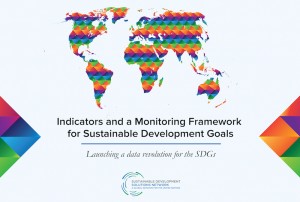 of the Sustainable Development Solutions Network – SDSN .
of the Sustainable Development Solutions Network – SDSN .
We follow Informal interactive hearings with representatives of NGOs, CSOs, major groups and the private sector on the post-2015 development agenda, in NY.
One more publication , as the outreach in Rio+20 process is 2015 Food Security Report, with key findings : – For the world as a whole, the MDG 1 indicators for prevalence of undernourishment and underweight children under 5 years of age have largely moved in parallel, providing a consistent message regarding achievement of the hunger target; – Underweight in children is expected to decline less rapidly than undernourishment, given that better hygiene conditions, access to clean water and more varied diets usually require more investment and more time to materialize than enhanced availability of calories: – Despite showing rapid reduction, Southern Asia is the region with the highest historical prevalence of underweight children among the developing regions; – In sub-Saharan Africa, there has been limited progress in reducing both undernourishment and child underweight; – Economic growth is necessary for sustaining progress in efforts to reduce poverty, hunger and malnutrition. But it is not sufficient; – Inclusive growth – growth that provides opportunities for those with meagre assets, skills and opportunities – improves the incomes and livelihoods of the poor, and is effective in the fight against hunger and malnutrition; – Improving the productivity of resources held by family farmers and smallholders is, in most cases, an essential element of inclusive growth and has broad implications for the livelihoods of the rural poor and for the rural economy in general; – In many situations, international trade openness has an important potential for improving food security and nutrition by increasing food availability and for promoting investment and growth; – Social protection directly contributes to the reduction of hunger and malnutrition by promoting income security and access to better nutrition, healthcare and education; – Prevalence of food insecurity and malnutrition is significantly higher in protracted crisis contexts resulting from conflict and natural disasters. For more information
European Western Balkans Interview: Andjelka Mihajlov, Environmental Ambassador for Sustainable Development
European Western Balkans Interview: Andjelka Mihajlov, Environmental Ambassador for Sustainable Development
Prof dr. Anđelka Mihajlov, Environmental Ambassador for Sustainable Development, is a Full Professor at Faculty of Technical Sciences, the University of Novi Sad and Coordinator for environment and green economy at the Public Policy Institute. UN and EU expert, scientist and consultant. She has more than 300 published scientific papers. In last 20 years, her frameworks of the professional orientation are the environment and sustainable development.
European Western Balkans: What are in your opinion, the biggest ecological problems in Serbia?
Andjelka Mihajlov: The decades in which values and prosperity were/is created based on the principles of traditional economic models not managed to change ever-growing excessive consumption of natural resources and to fight marginalization of environmental issues. This is diagnosis for all over the Western Balkan region. My opinion is, that despite some good and very good snapshots and flagship cases relevant for environment sector, the highest environmental problem in Serbia, as well as in all countries in region, is “position” of sector in agenda of development: not among priorities and priority concerns.
EWB: Serbia expects one of the most difficult chapters in the negotiations with the EU, Chapter 27 relating the environment. In what extent is Serbia preparing for the opening of this chapter?
Serbia is having now 14 years of commitment to EU membership. In environmental sector it was, and it is a great challenge, especially having in mind “grey and brown environmental heritage”. In the frame of these more than ten years of actions, I could tell that improvement is respectable. However, a lot of issues remain unsolved.
In 2012 Serbia became a candidate for EU membership, and on 21st of January 2014 officially opened accession negotiations. Environmental negotiation process in Serbia started with Explanatory screening in September 2014, and followed with bilateral screening in November 2014. Screening report is expected by EC sometimes in 2015. Progress towards EU in the sector Environment (and Climate Change) vary from limited progress (2005), to moderate advanced (2006), little progress (2007, 2008, 2013,2014), some progress (2012), progressed well (2011), the establishment of ambitious legislative program (2002-2004), and to good progress (2009,2010).
And coming back to the question, Serbia is prepared and preparing to open negotiation in Chapter 27, with strong message from my side: it is crucially important to include people/experts with appropriate knowledge, skills and experience, as well as to effective coordinate actions with other sectors.
EWB: What will pose as a major challenge in this chapter?
AM: One of the main challenge is to harmonize socio-economic development with EU’s Resources-Efficient and Low-Carbon Policies and to implement in national legislation, already transposited EU environmental acquis at large extend.
I would like to underline a few national strategic documents: Strategy towards EU accession (2005), National Environmental Program (2010), with Action Plan (2014/15) and the 2011 National Environmental Approximation Strategy. The last one sets three goals: full and high quality transposition of the EU environmental acquis; maintenance of effective and affordable environmental infrastructure and services; and institutional arrangements for efficient approximation.
EWB: How much are events such as IV International Miteco Forum important in this process?
AM: I should acknowledge the intention of the Miteco Forum to bring professionals and experts to the floor, together with governmental official, international organization representatives and all interested in subject. I am very happy that I had opportunity to share reflection from 2014 European Resources Forum, just finished in Berlin, where I participated. I talked on Panel, promoting sustainable use of natural resources in hand with climate change actions. The part of my presentation was short introduction of the Seventh Environmental Action Program to the Miteco Forum audience.
And one more value of Miteco Forum – this is starting to be growing “family gathering” of professionals interested in environmental and waste issues. My pleasure is to see among them, my colleagues, followers, former and current students and civil society fellows.

EWB: What do you think is a good model for solving the problems of industrial and hazardous waste in companies that are in the process of restructuring?
AM: It is known, that personally I “entered” environmental sector through “hazardous waste door”. For years I was technical expert on Basel convention issues.
I do support main principles of preventive measures and environmentally friendly measures for and future generations’ well-being.
I do not support “one model fit all” in solving historical and existing pollution, mainly related to the industrial and the hazardous waste, in companies changing ownerships.
Environmental Due Diligence and environmental liability tools, combined with technical feasible solutions, could serve as the guideline frame. For now, when country do not have licensed hazardous waste facility, technical feasible solution is the export of hazardous waste (as it is practice in Serbia). It has to be understand, that when changing the ownership of company it should go hand-in-hand with proposed solutions and decision who is paying.
EWB: What are benefits of Serbia joining the European Union when it comes to the field of environmental protection?
AM: With EU accession and membership, Serbian citizens should have great benefits to share the same, high environmental values.
Empowering the environment sector, including promoting knowledge based actions and straightening expert capacities, as well investment in infrastructure that supports all aspects of sustainable development (sustainable/green growth) with socially sensible job creation, are challenges we are facing. We should “position” environment sector much higher in the agenda of development!
Andjelka Mihajlov was a member of the Serbian Government as the Minister for Protection of Natural Resources and Environment from June 2002 to March 2004, commencing significant reforms in the environmental sector in the country, with significant results in international and regional cooperation. In 2006, UN Environment Program identified her as the woman “environmental leader of the Western Balkans”. Prof. Mihajlov headed the expert team which prepared the Study on Green Economy for Serbia which was the basic platform for participation of the Serbian delegation at Rio+20 UN Conference in Brazil. In the period from 2005 to 2010, she was the member of the Environmental and Social Advisory Council to the European Bank for Reconstruction and Development in London. She is a member of the National Committee for UNESCO and the Committee for Environment and Sustainable Development of the Serbian Chamber of Commerce. She is national mentor for Foundation for Environmental Education with the seat in Copenhagen
ECF TRAINING MODULE 1 TECHNICAL ASPECTS OF THE EU ACCESSION PROCES
TRAINING MODULE 1
TECHNICAL ASPECTS OF THE EU ACCESSION PROCES: IMPROVING THE KNOWLEDGE BASE ON SCOPE AND OPPORTUNITIES FOR CIVIL SOCIETY INVOLVEMENT
Date: Nov 20-21, 2014
Place: Premier Best Western Hotel Conference Center, Podgorica, Montenegro
Draft Agenda Outline
Day 1: 20 Nov, 2014
| Start | Finish | Topic | Facilitator/Speaker | Sub topic/Content |
| 08:30 | 09:00 | Registration and coffee | ||
| 9.00 | 09.10 |
Opening |
Richard Filcak, ECRAN ECF Expert |
Welcome/agendaECRAN and civil society involvement
Introduction of the participants and keynote speakers |
| 09.10 | 09.30 | Address by the Ministry of Sustainable Development and Tourism |
Ivana Vojinovic, Assistant Minister, Ministry of Sustainable Development and Tourism |
Reflections on the progress of Montenegro in the EU enlargement process and role and involvement of the civil society |
| 9.30 | 10.00 | The EU enlargement and the civil society |
Alberto Cammarata, Head of Political Section in the EU Delegation to Montenegro |
The EU enlargement process and involvement of the civil society: goals and experience |
| 10.00 | 11.00 |
West Balkan, Turkey and the enlargement process |
Mihail Dimovski, ECRAN Team Leader |
ECRAN experience from progress monitoring and project activities: Situation, challenges and opportunities for public participation |
| 11.00 | 11.30 | Coffee Break | ||
| 11.30 | 12.30 | NGOs opportunities to contribute to country EU accession process |
Andjelka Mihajlov, ECRAN ECF expert
|
Accession to the EU and Negotiation with the EU (Chapter 27): 1. Accession steps, 2. Progress Monitoring, and 3. Negotiation |
| 12.30 | 13.30 | Lunch | ||
| 13.30 | 14.15 | Civil society and the enlargement – new member state experience | Fedor Cerne, ex member of negotiation team for Slovenia | The EU accessions and civil society involvement: Slovenian experience |
| 14.15 | 15.00 | EU accesion and Croatia: NGO perspective | Zeljka Leljak Gracin, Green Action Croatia | NGO perspective on the most recent EU enlargement: Lessons learned |
| 15.00 | 15.30 | Coffee Break | ||
| 15.30 | 16.30 | Negotiations and public involvement – Country experience Montenegro | Olivera Kujundzic, Ministry of Sustainable Development and Tourism, MontenegroNatasa Kovacevic – Green Home Montenegro | Experience from the enlargement process in Montenegro: existing models for cooperation with CSOs, challenges and future perspectives |
| 16.30 | 17.00 | Closing of the day | Richard Filcak, ECRAN Expert | Wrap up of the day, key issues for the 2nd day, AOB |
Day 2: 21 Nov, 2014
| Start | Finish | Topic | Facilitator/Speaker | Sub topic/Content |
| 9:00 | 9:30 |
Opening |
Richard Filcak, ECRAN ECF Expert |
Summary of topics discussed day 1, goals of the day 2 |
| 9:30 | 10:30 | Strategic Planning and public involvement | Nadya Boneva, ECRAN Expert | The main needs of the approximation process, role of strategic planning in organising approximation process, experience from old and new Member States and Candidate Countries, the most important planning documents for the approximation process. |
| 10.30 | 11.00 | Coffee Break | ||
| 11.00 | 13.00 | Advocacy and the EU enlargement – short introFocusing the future (Group Work) | Richard Filcak and Lidija Zivcic, FOCUS Slovenia | Starting from SWOT, groups of NGOs identify key issues and challenges, outline strategic plans for the upcoming period and present their strategies reflecting inputs from the training |
| 13.00 | 14.00 | Lunch | ||
| 14.00 | 15.00 | Civil society and the enlargement process– Panel Discussion with short intro inputs from ECRAN and NGO experts presented | Moderator to be confirmed | Experiences, lessons learned and key messages for the NGO involvement |
| 15.00 | 15.30 | Wrap up, open issues for the future and evaluation | Richard Filcak, ECRAN Expert | Revisiting key issues, discussion on drivers, barriers and challenges and future of the EU accession process |
| 15.30 | Departure | |||
ERF 2014 – European Resources Forum, Berlin November 2014
EASD representative Prof Anđelka Mihajlov, participate on the 2nd ERF 2014. Thematic issues include: Europe’s responsibility for a sustainable use of natural resources, Targets for a sustainable resource use, Natural resources – to whom do they belong?, Resources for the “Energiewende”, UNEP’s International Resource Panel (IRP) on Decoupling & Circular Economy, Sustainable development goals and post 2015 process , Sustainable resource use and the role of the financial system, Resource efficiency in business – experiences from EU member states, How can Europe reach a sustainable use of natural resources?.
In Opening Plenary session participants were: Barbara Hendricks, Federal Minister for the Environment, Nature Conservation, Building and Nuclear Safety, Germany, Maciej H. Grabowski, Minister of the Environment, Poland, Chris Kuijpers, Directorate General, Ministry for the Environment, The Netherlands, Karl Falkenberg, General Director, European Commission, DG Environment, Maria Krautzberger, President, Federal Environment Agency, Germany, Ernst Ulrich von Weizsäcker, Co-Chair, UNEP International Resource Panel; Co-President, Club of Rome; Germany, Marina Fischer-Kowalski, Head, Institute of Social Ecology, Alpen Adria University; member of UNEP International Resource Panel; Austria, Arjen Hoekstra, Professor in Water Management, creator of the water footprint concept, University of Twente, The Netherlands,and Harry Lehmann, General Director, Division Environmental Planning and Sustainability Strategies, Federal Environment Agency, Germany.
The final 17 SUSTAINABLE DEVELOPMENT GOALS
In the Outcome Document from the Open Working Group on Sustainable Development Goals, session held on 19 July 2014, there are 17 SDGs:
19 focus areas recommended for further consideration at upcoming intergovernmental negotiations on SDGs
19 focus areas recommended for further consideration at upcoming intergovernmental negotiations on Sustainable Development Goals – SDGs (which will start on March 3, 2014).
19 focus areas are:
- Poverty eradication
- Food security and nutrition
- Health and population dynamics
- Education
- Gender equality and women’s empowerment
- Water and sanitation
- Energy
- Economic Growth
- Industrialization
- Infrastructure
- Employment and decent work for all
- Promoting equality
- Sustainable cities and human settlements
- Sustainable Consumption and Production
- Climate
- Marine resources, oceans and seas
- Ecosystems and biodiversity
- Means of implementation
- Peaceful and non-violent societies, capable institutions
Environmental Ambassadors for Sustainable Development accredited to attend the High-level event on the Millennium Development Goals and Post-2015 Development Agenda, 25 September 2013 at United Nations Headquarters, NY
Environmental Ambassadors for Sustainable Development, accreditation to attend the High-level event on the Millennium Development Goals and Post-2015 Development Agenda, to be held on 25 September 2013 at United Nations Headquarters, NY, approved by the Office of the President of the General Assembly/ Office for ECOSOC Support and Coordination, Department of Economic and Social Affairs, United Nations.
The programme of the event, as well as an official information note, can be found on the official web page of the event: http://www.un.org/
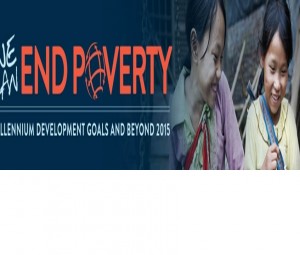
EDUCATION and ENVIRONMENT, among priorities for citizens: National consultation “The Serbia We Want”
On May 13, 2013, in Palace Serbia in Belgrade, the final discussion of preliminary results within National Consultation u process of National Consultation “The Serbia we Want” took place.
Discussion was moderated by prof. dr Slobodan Cvejić, followed by statements of prof. dr Mladen Lazić, prof. dr Mihail Arandarenko, prof. dr Anđelka Mihajlov, doc. dr Danilo Vuković and dr Svetlana Stanarević.
Concluded remarks contributed to UN process related to recommendation for Sustainable Developmet Goals – SDGs after 2015, to follow MDGs. UNDP launched an unprecedented global conversation through which people can help shape the future development agenda after 2015 when the Millennium Development Goals (MDGs) expire.

